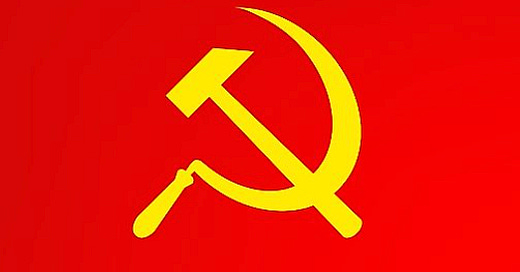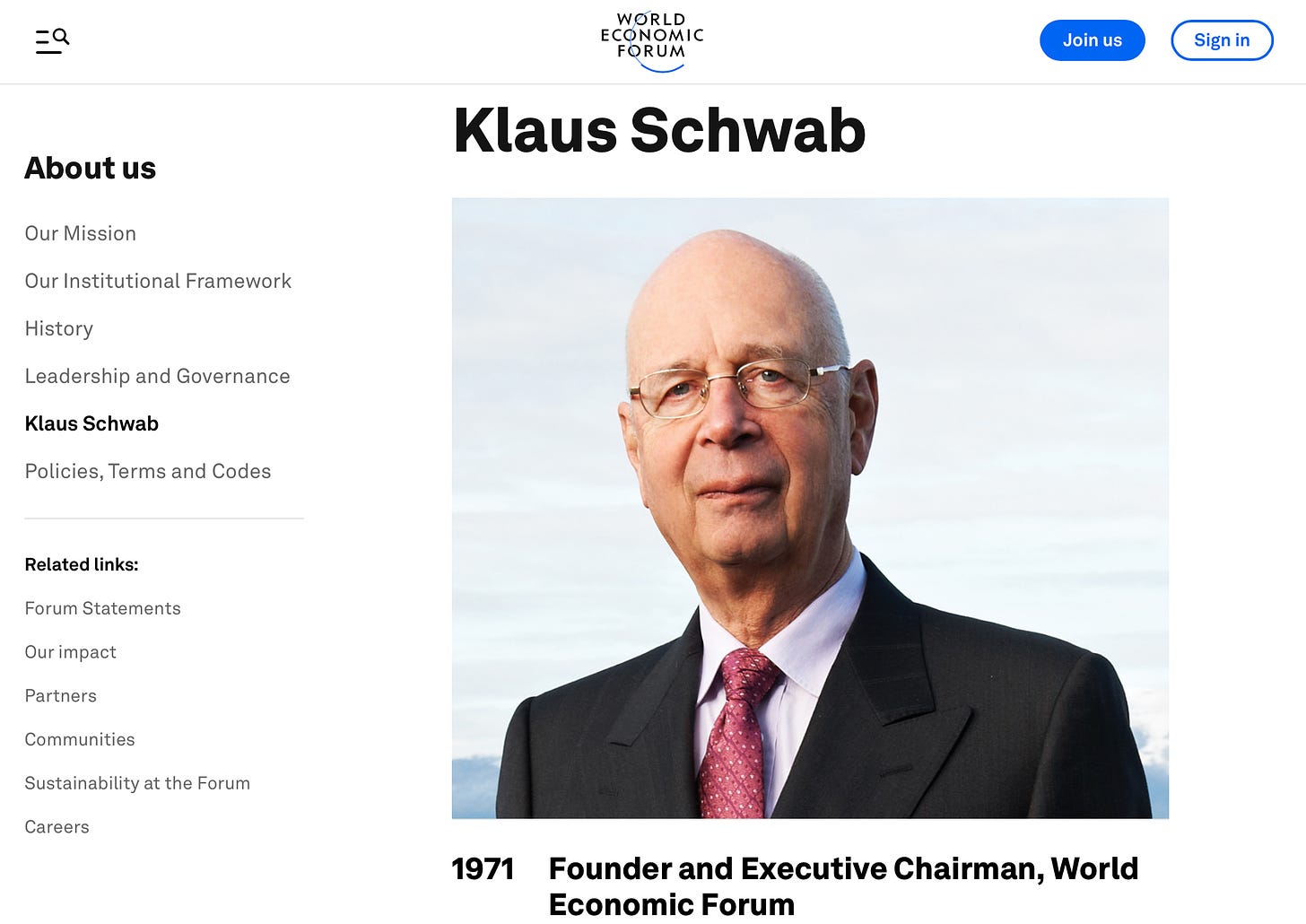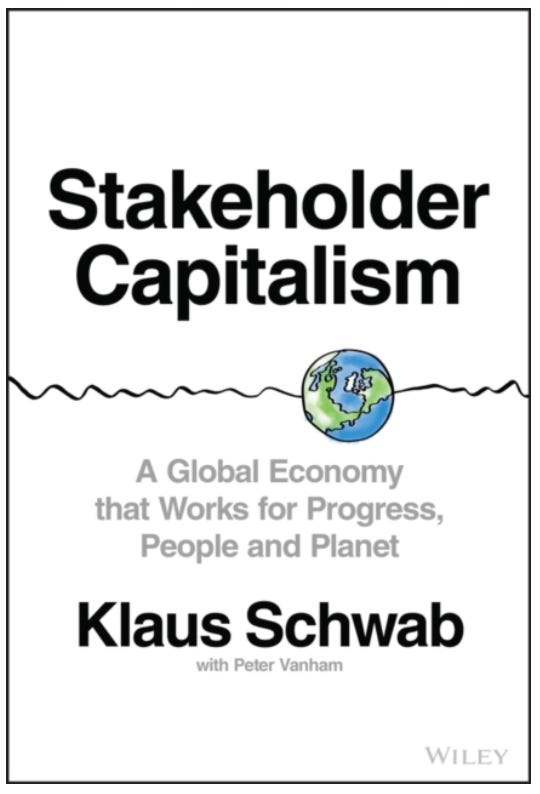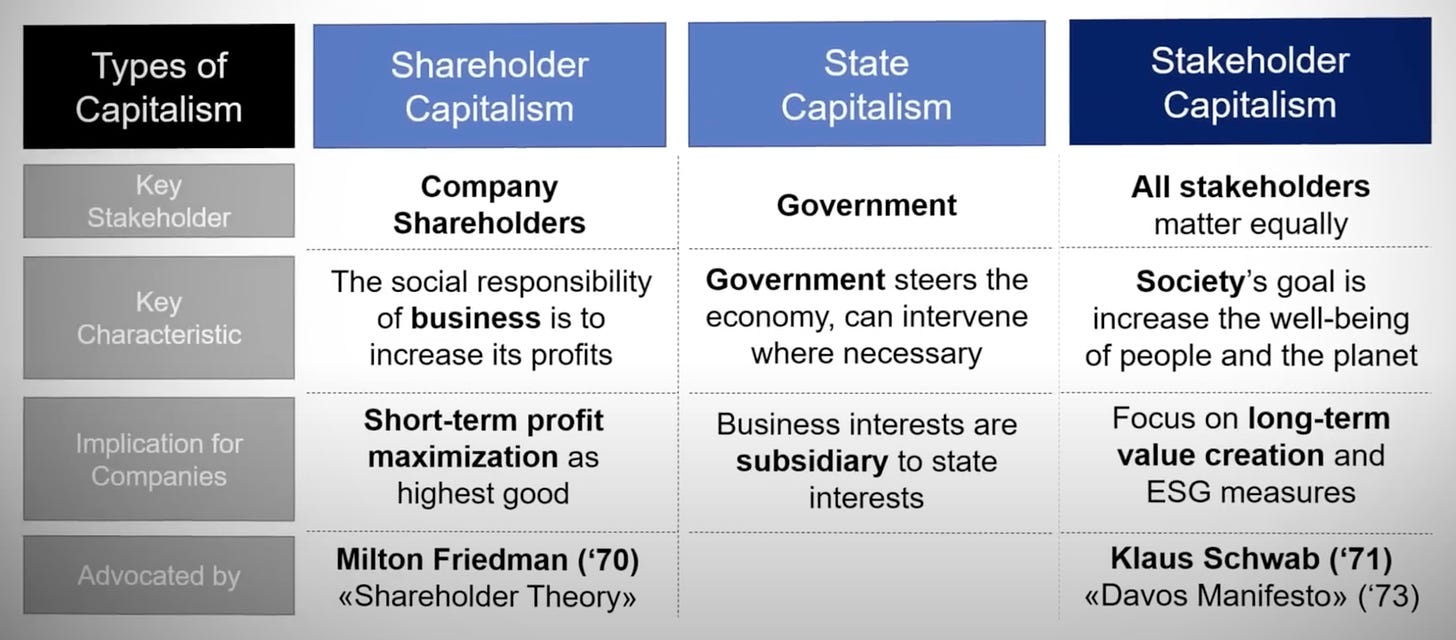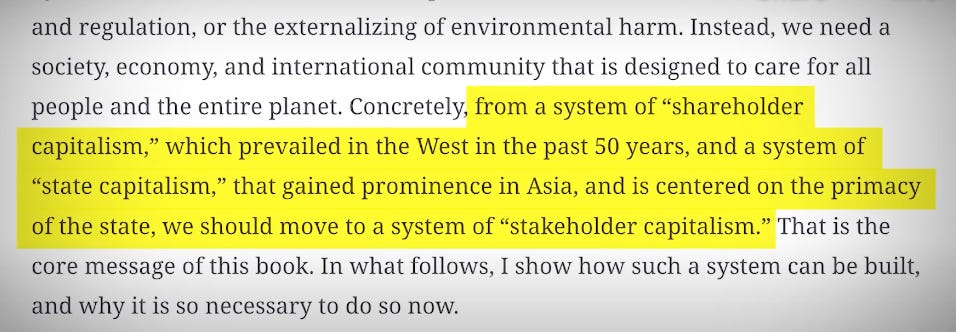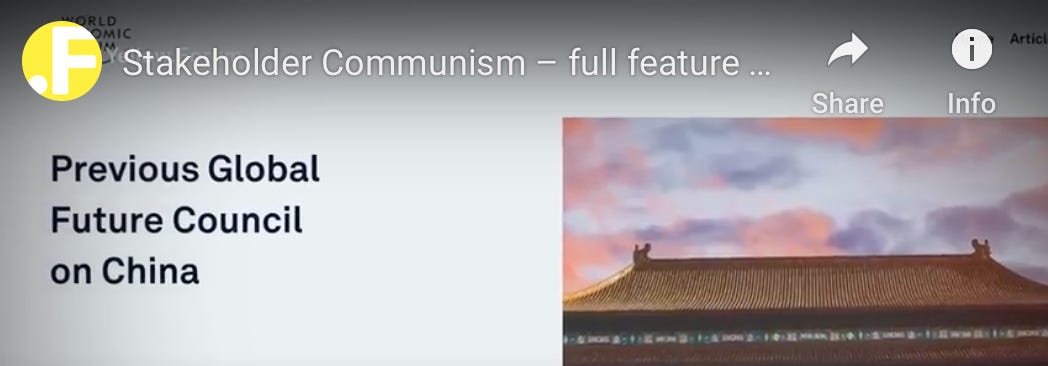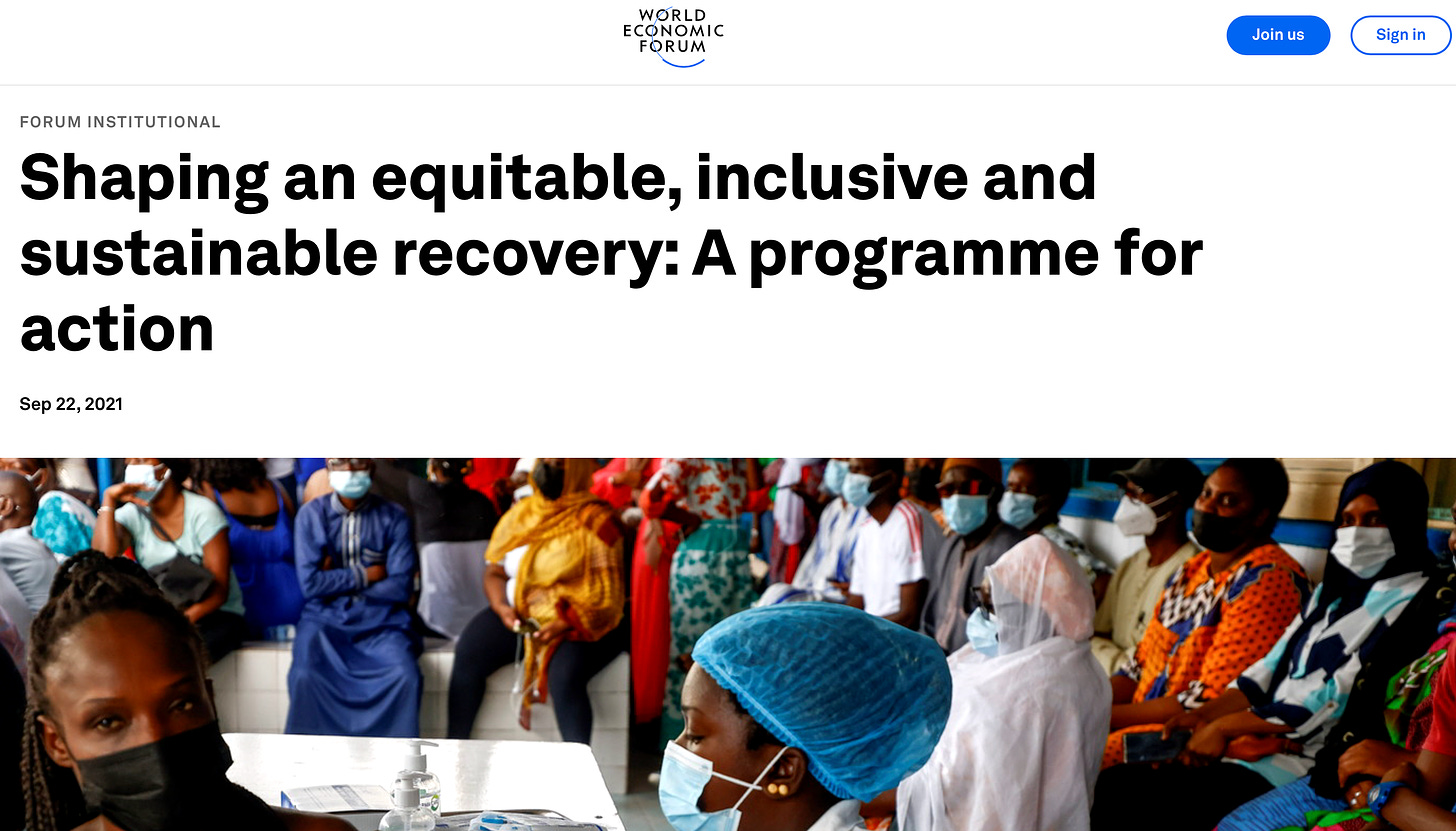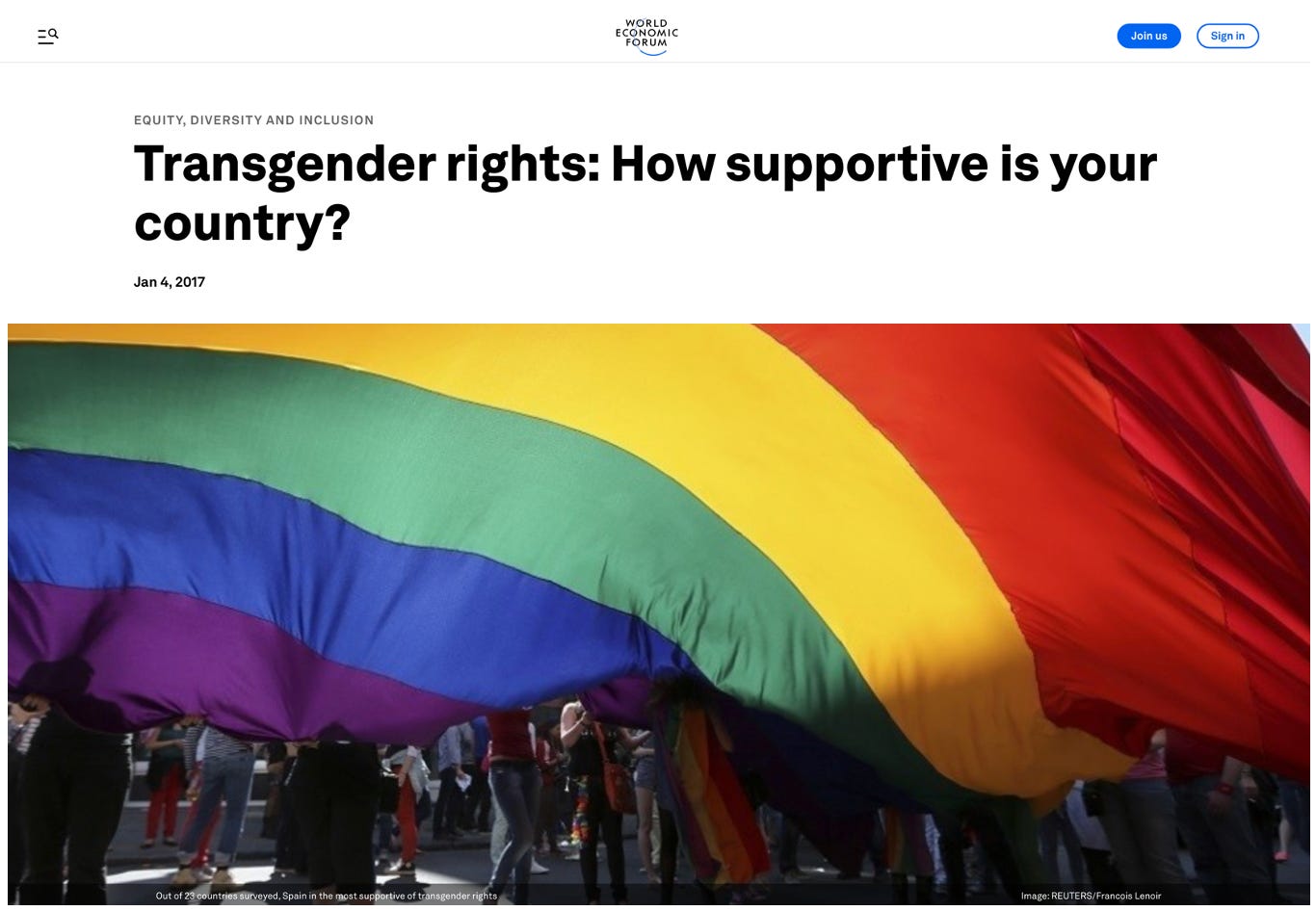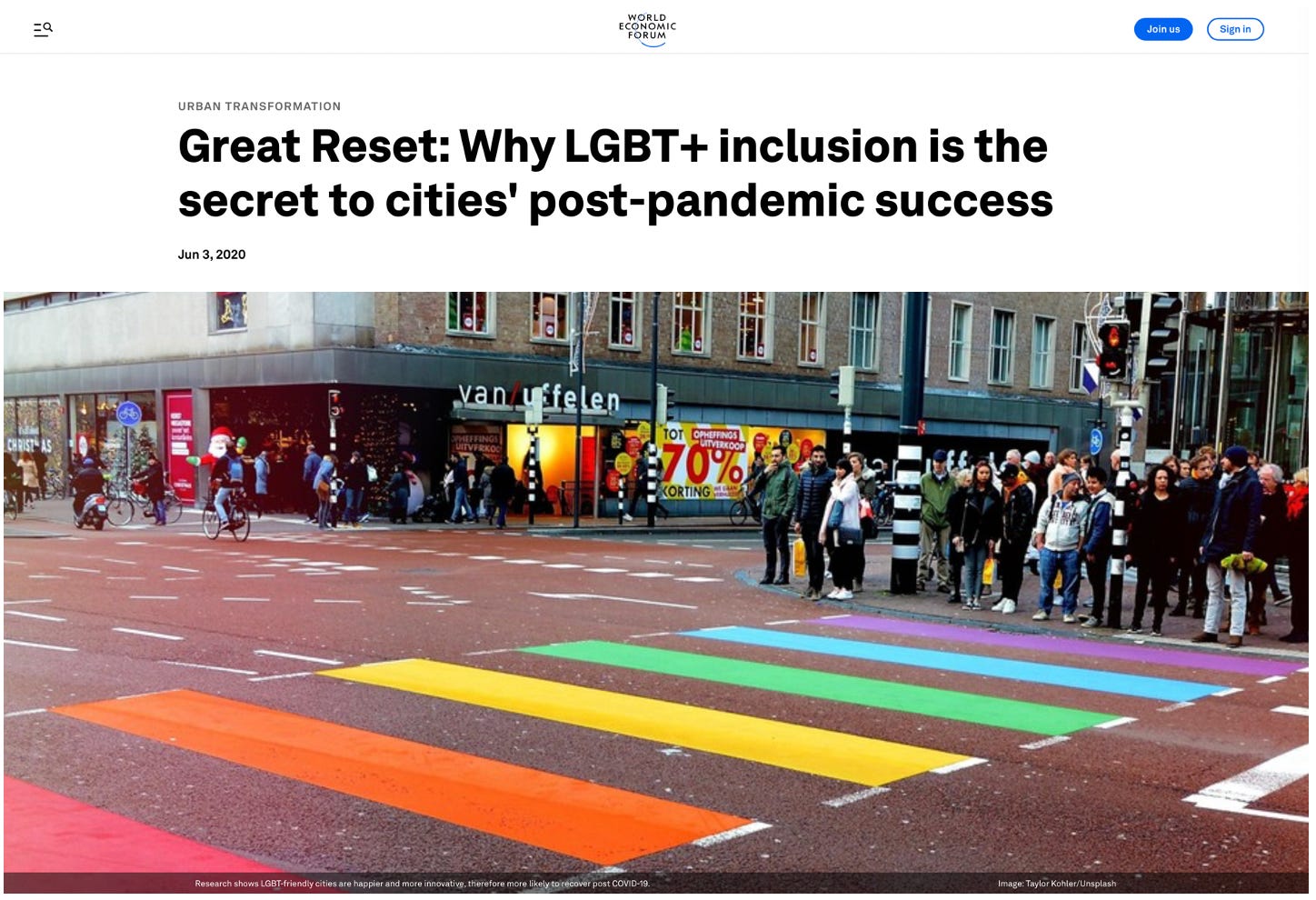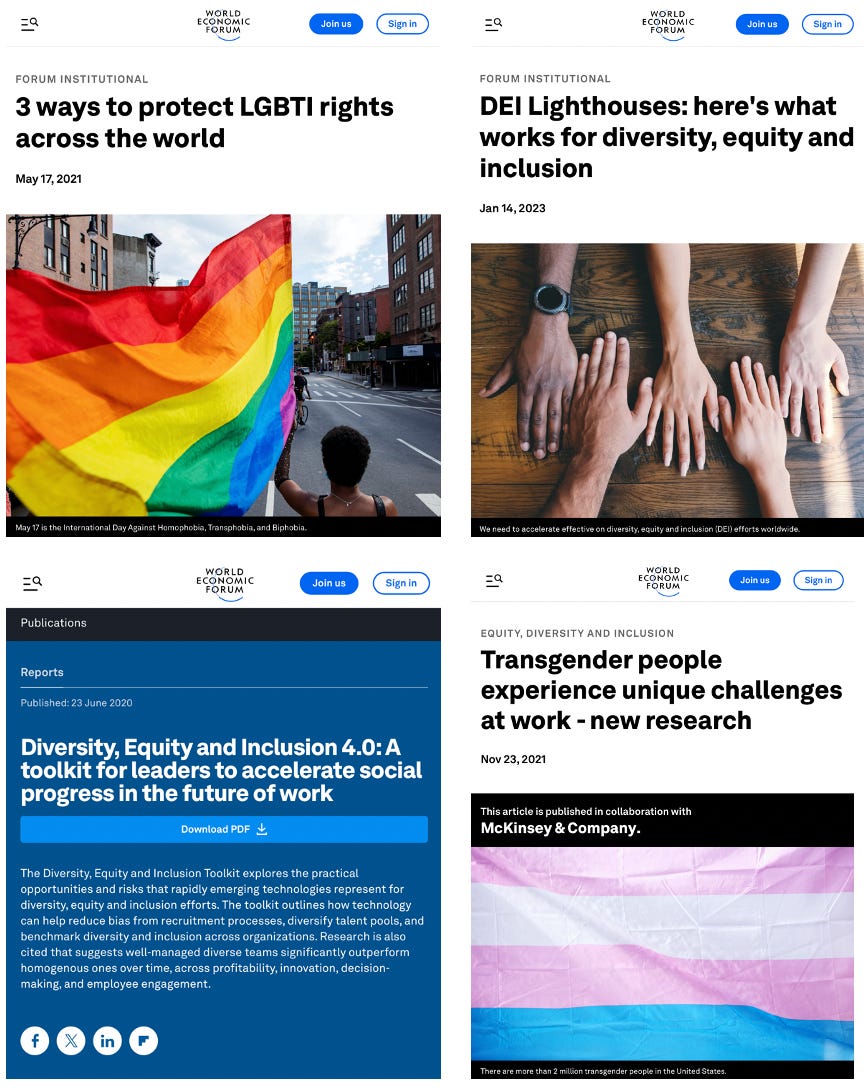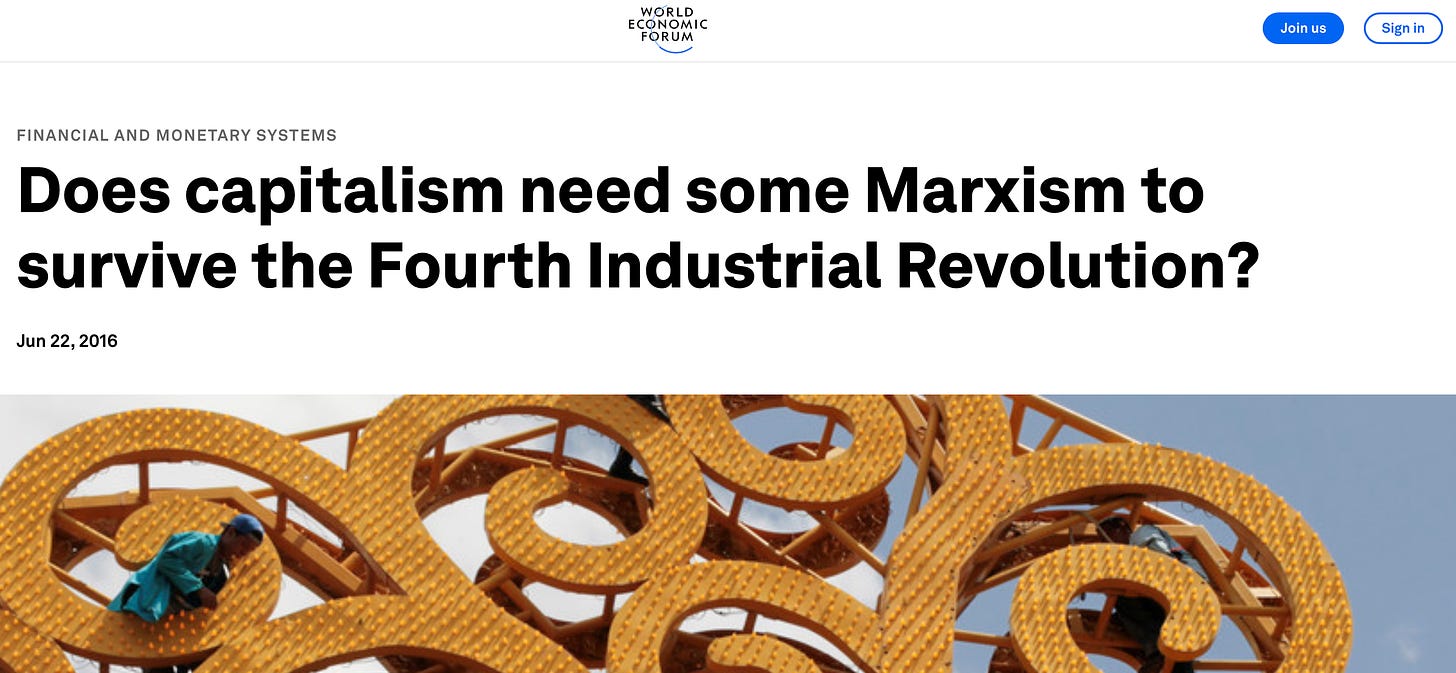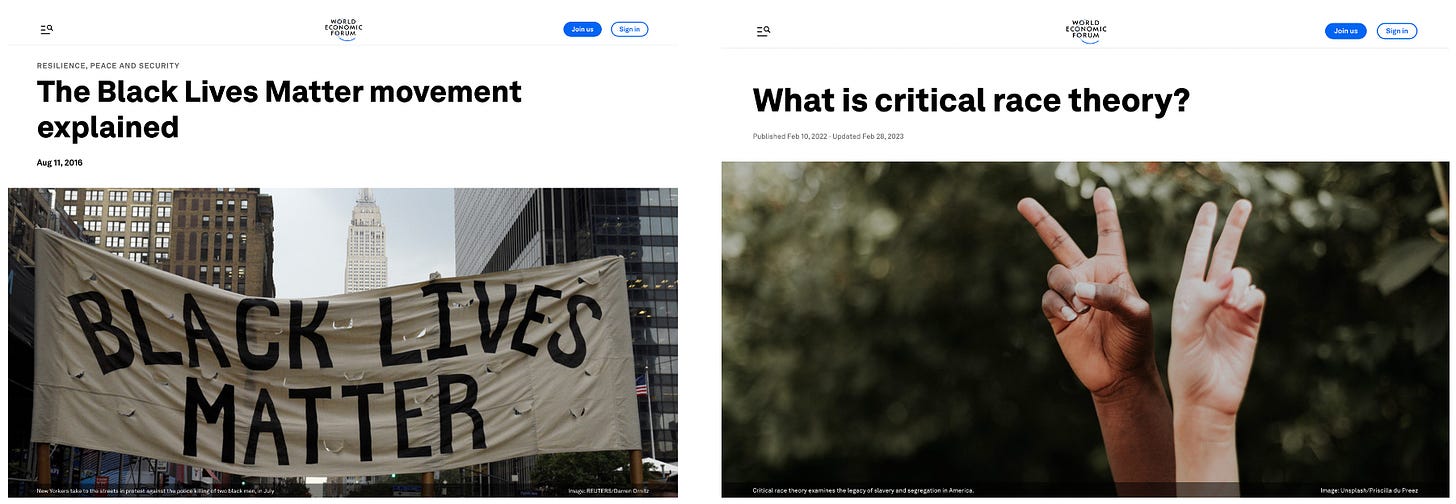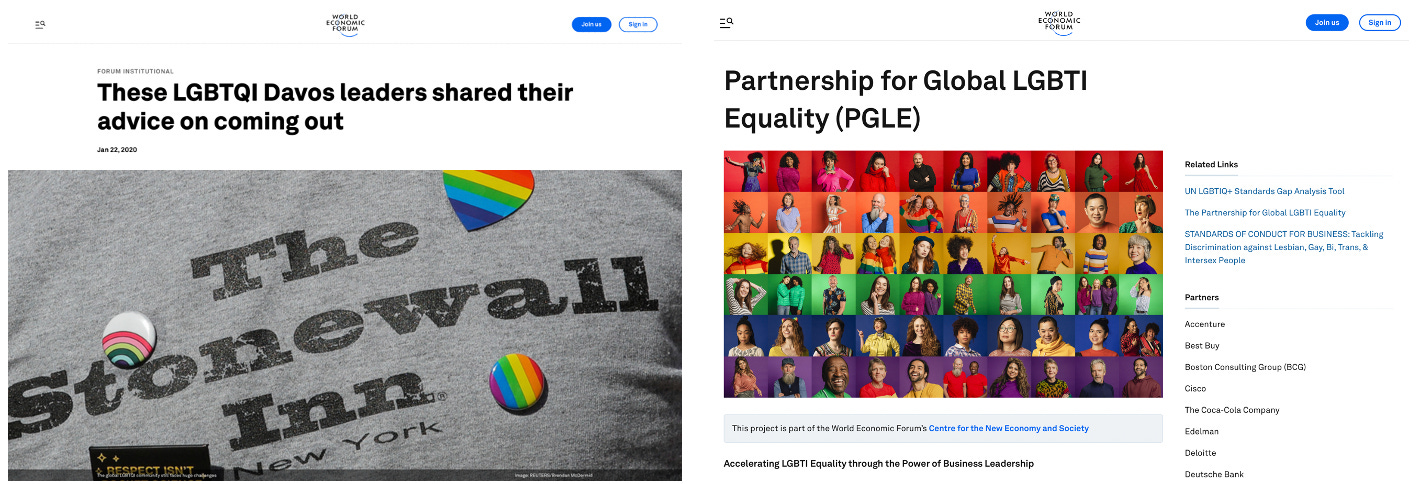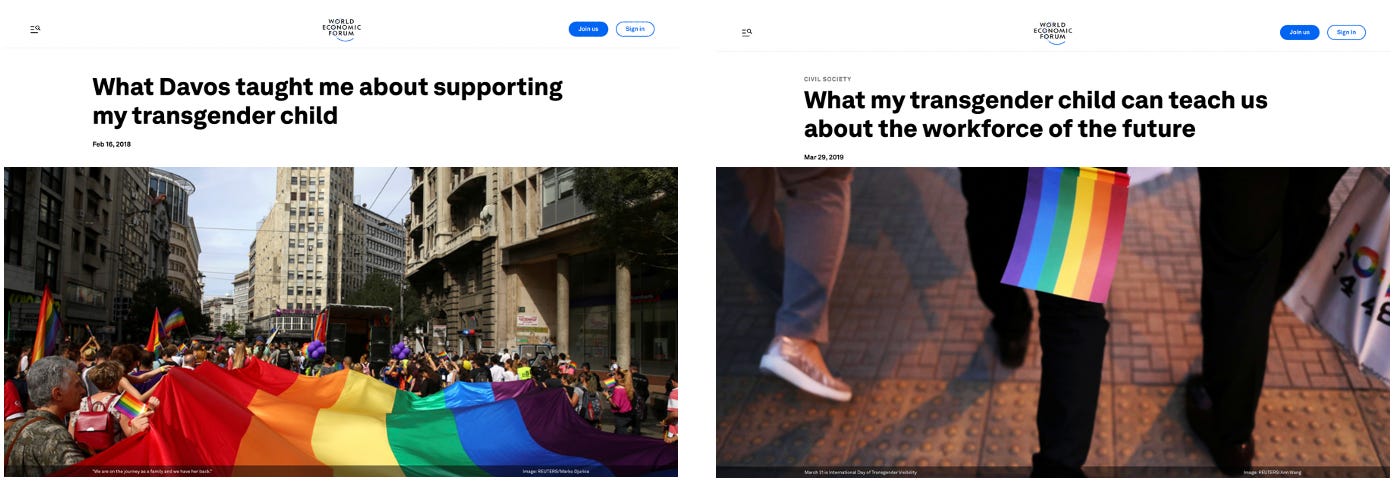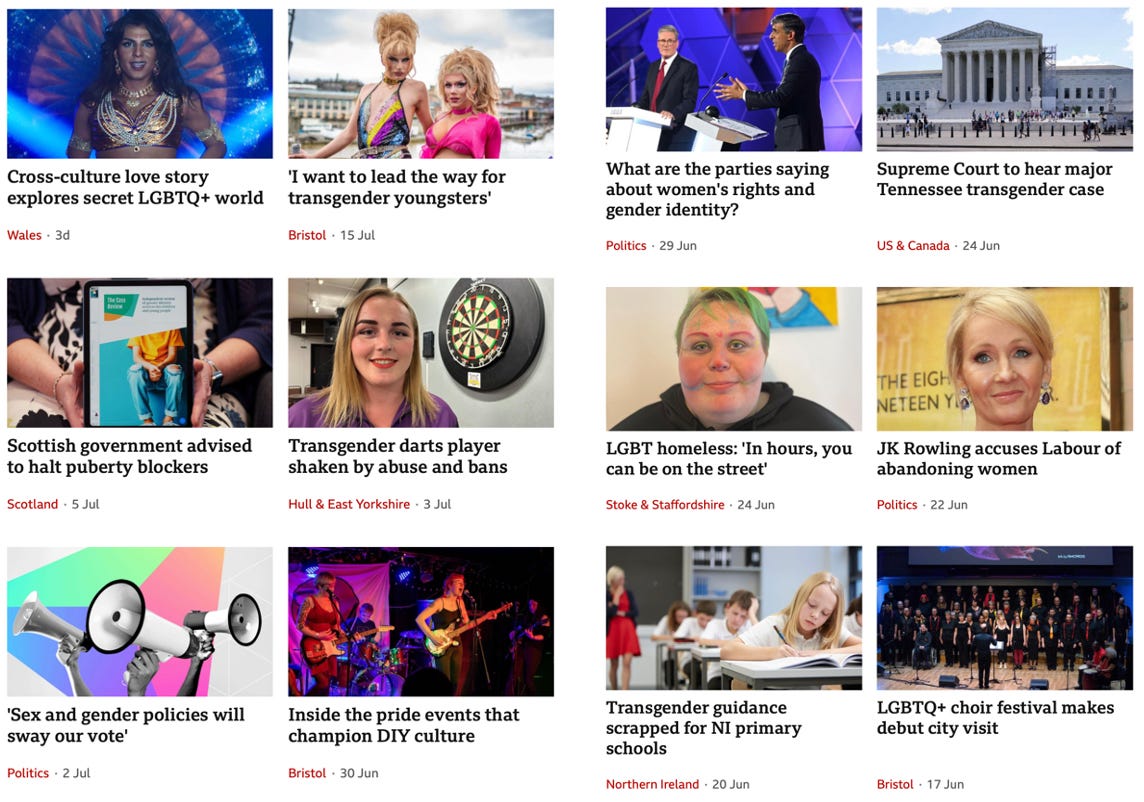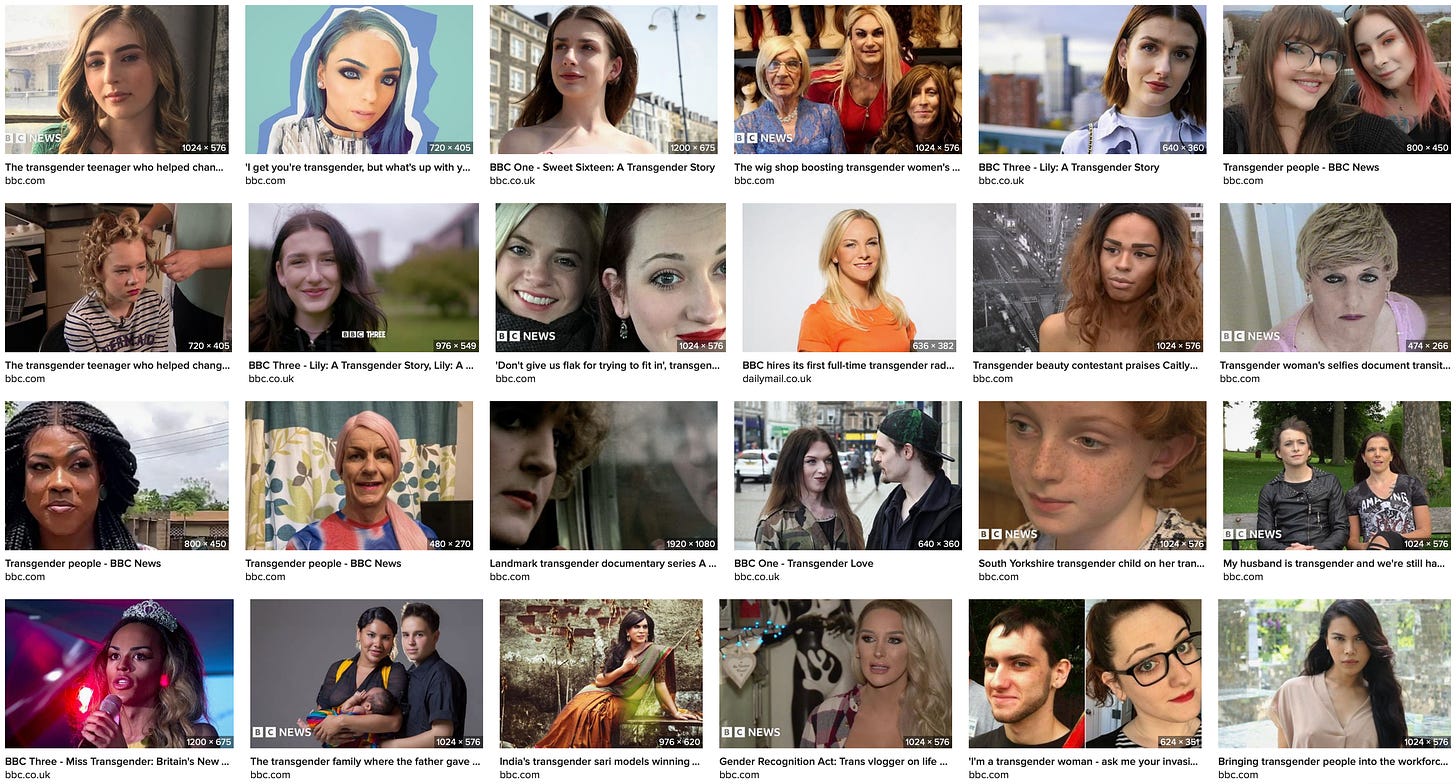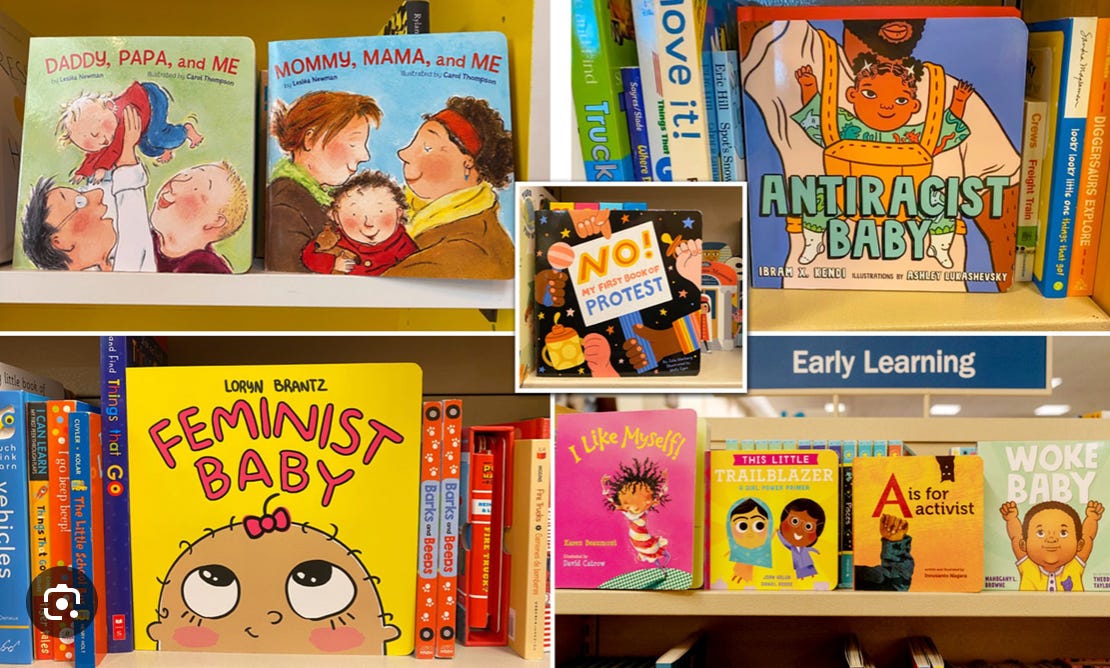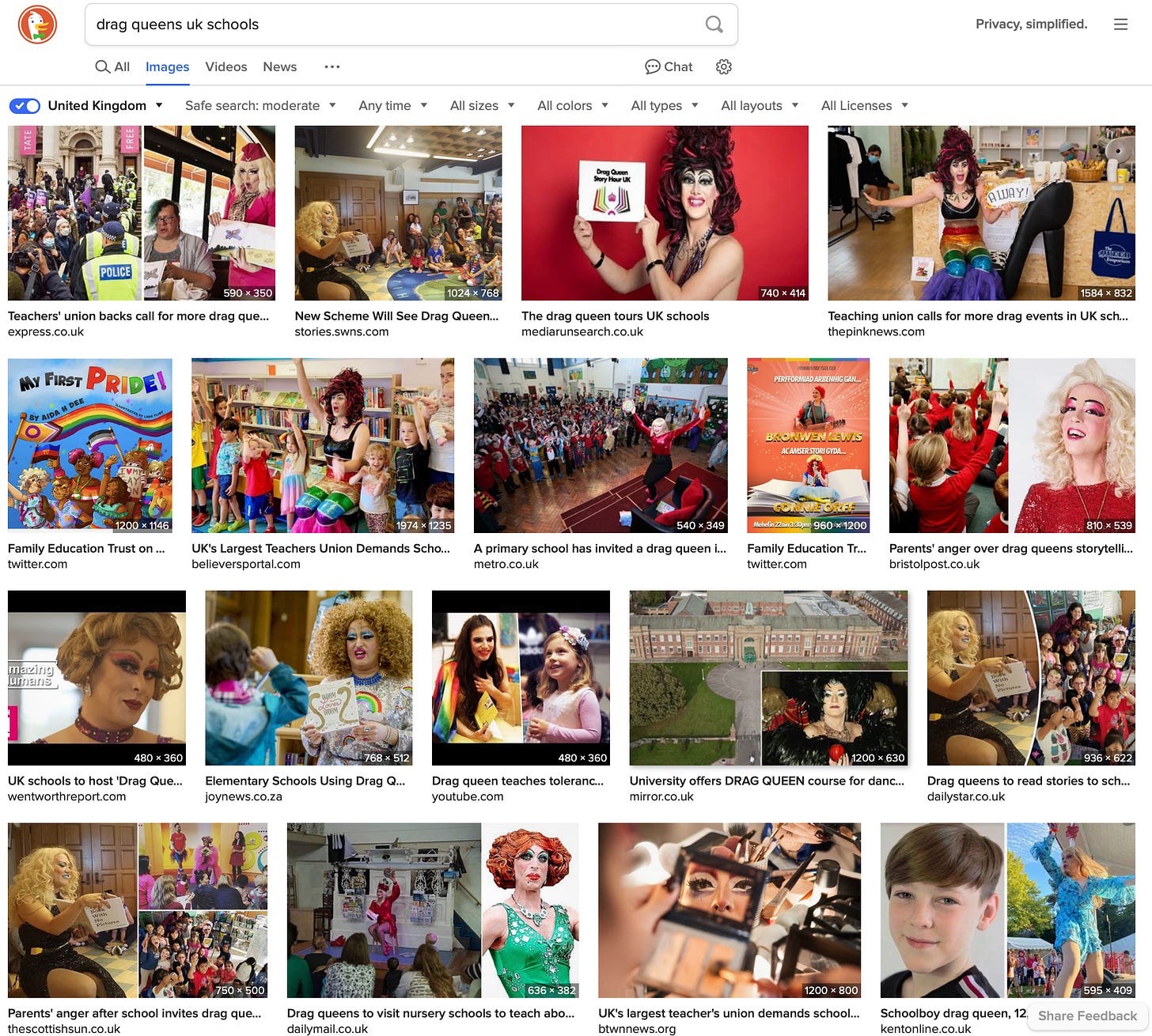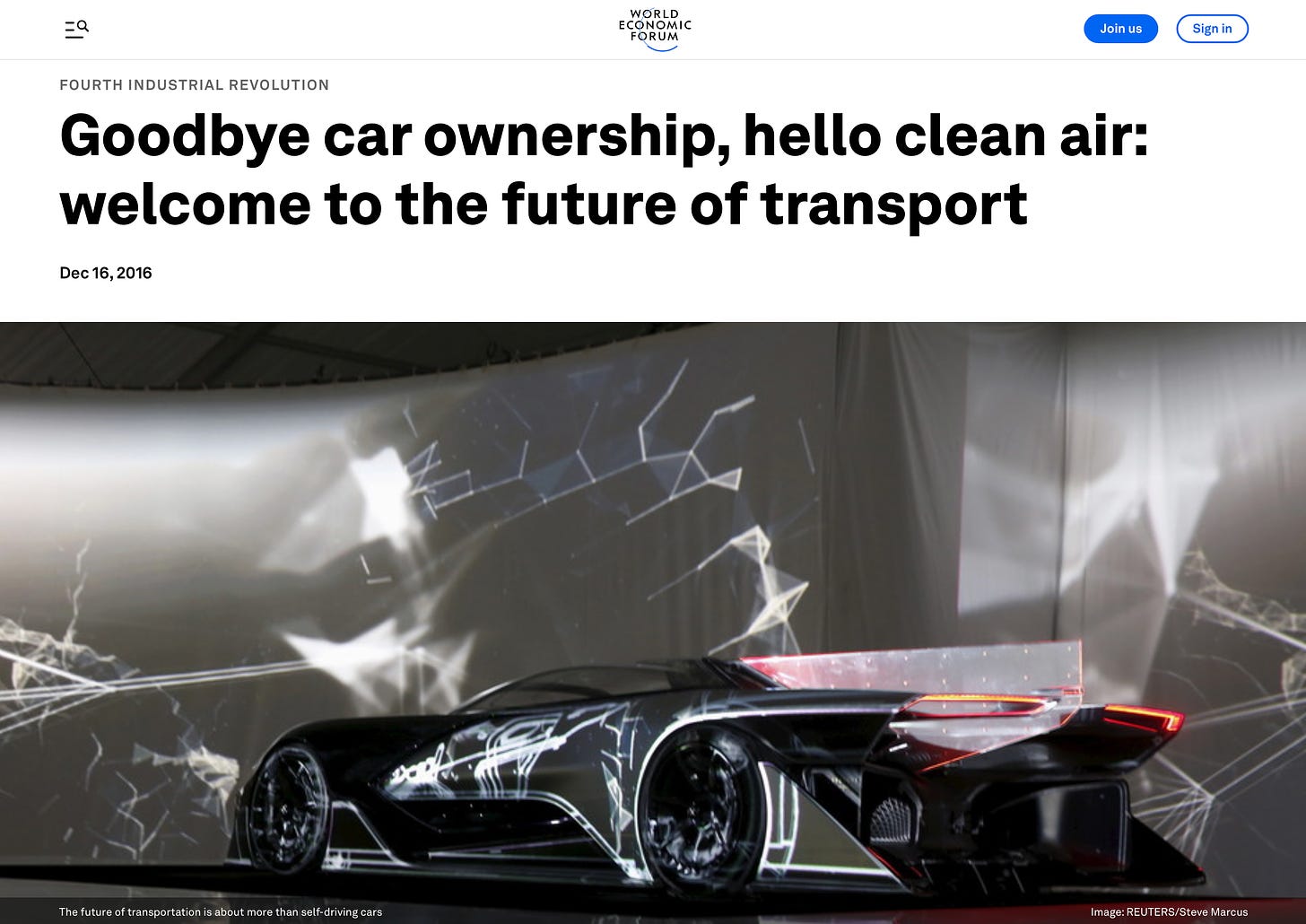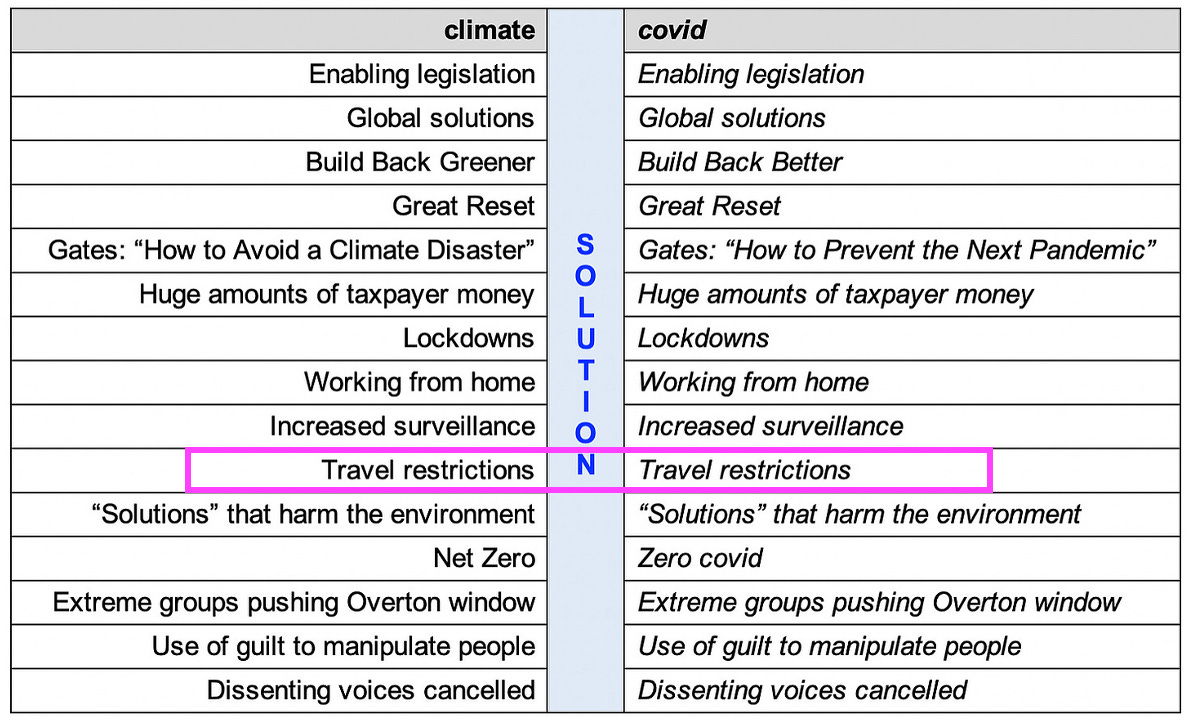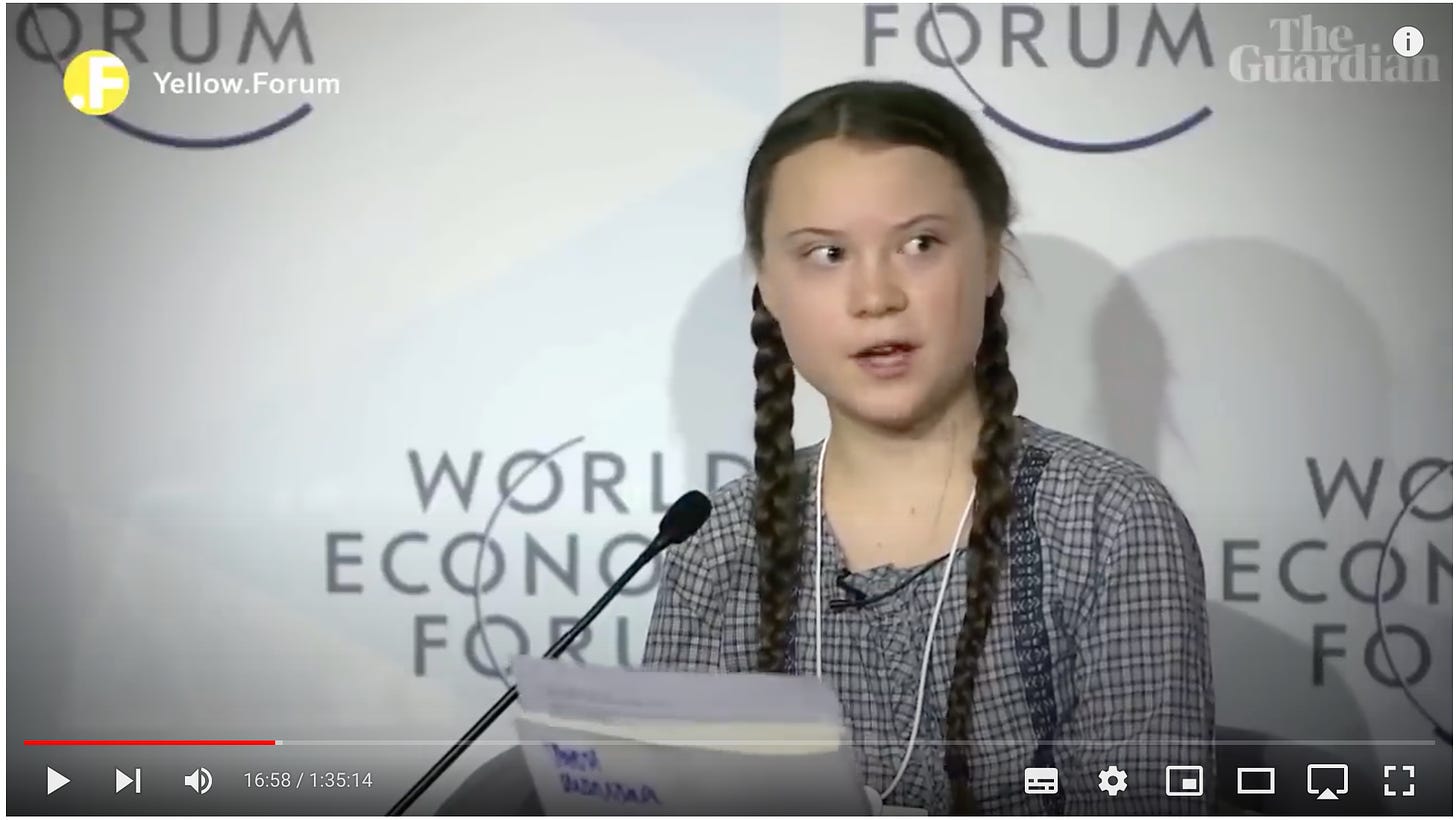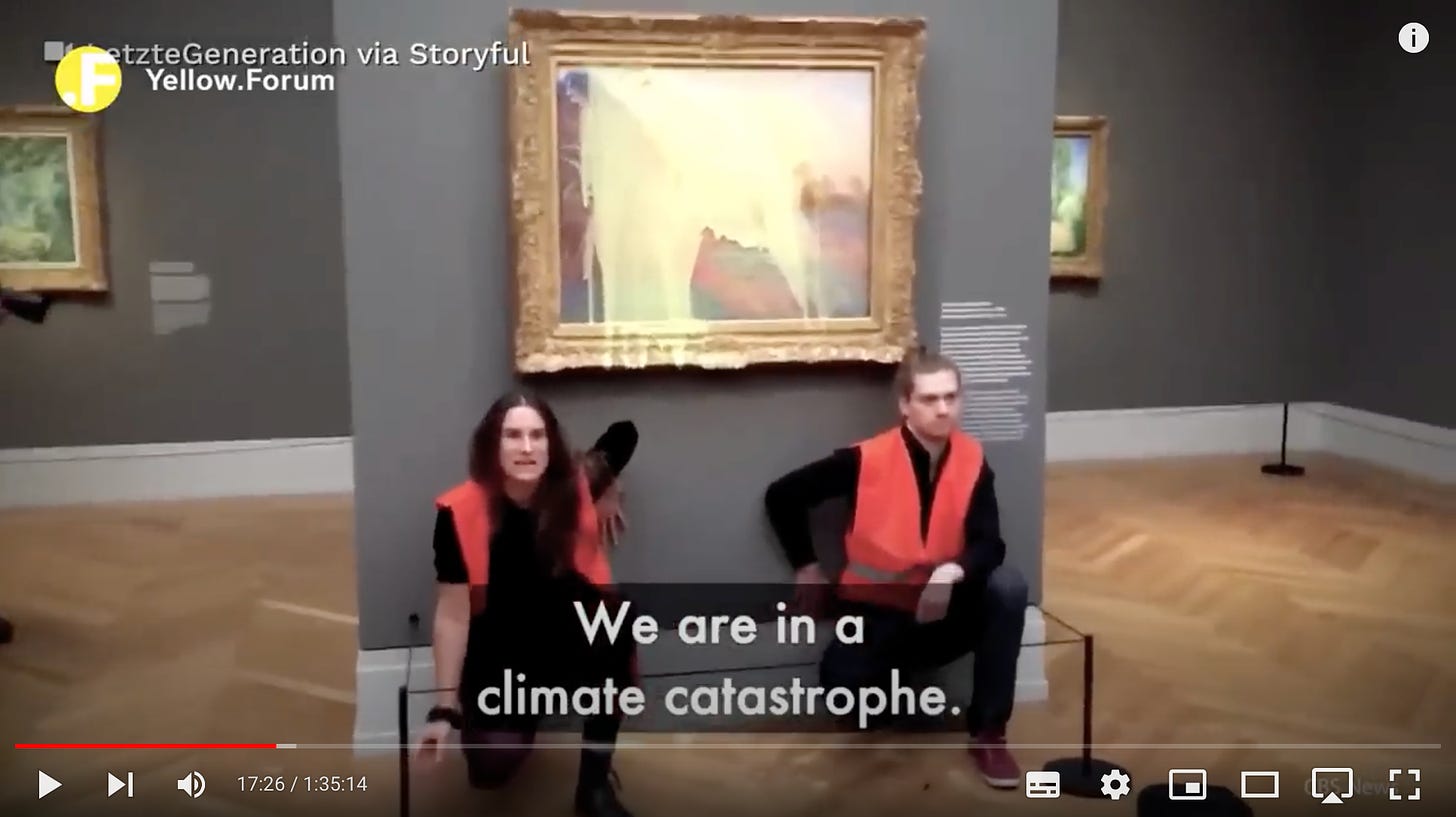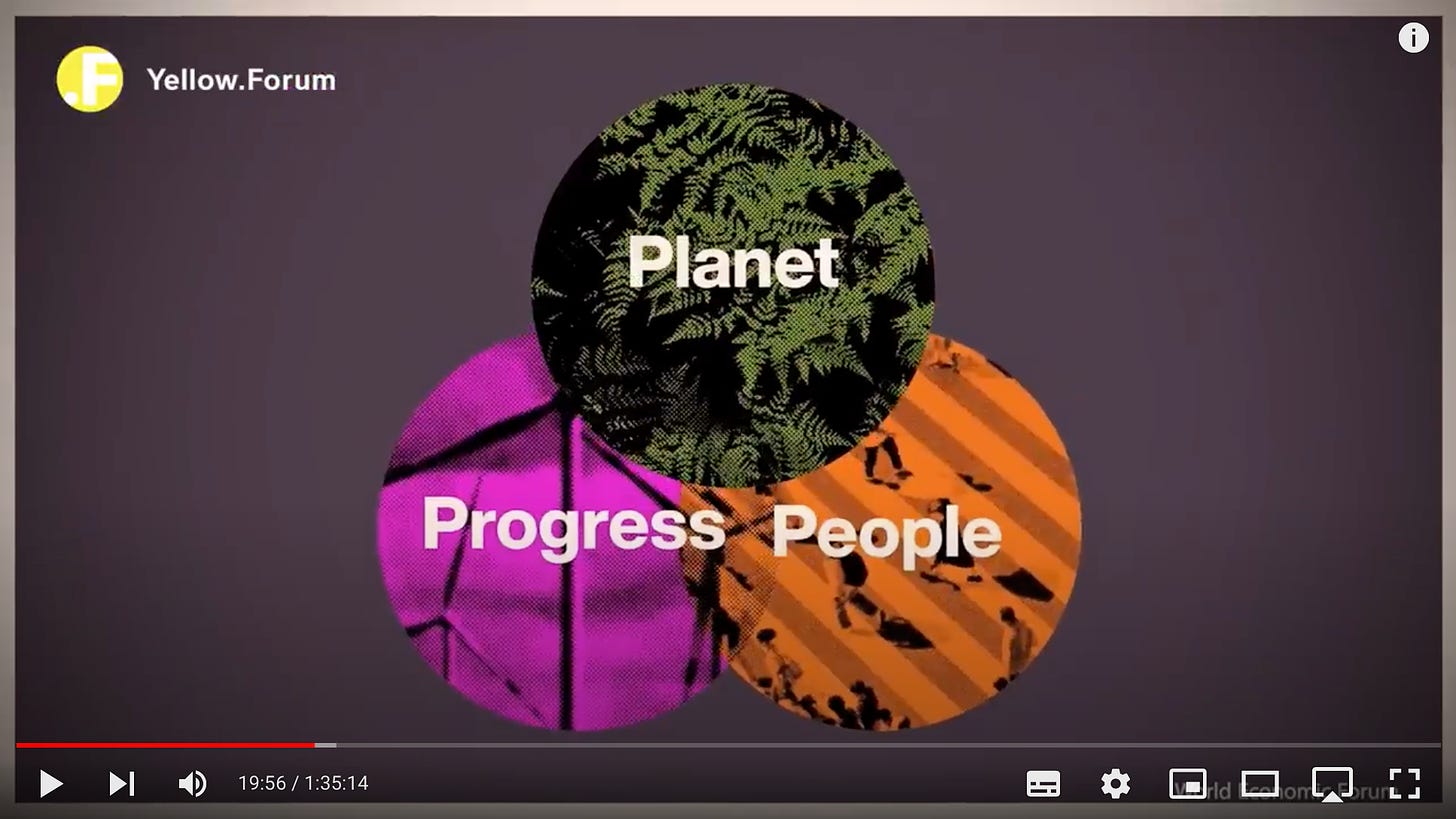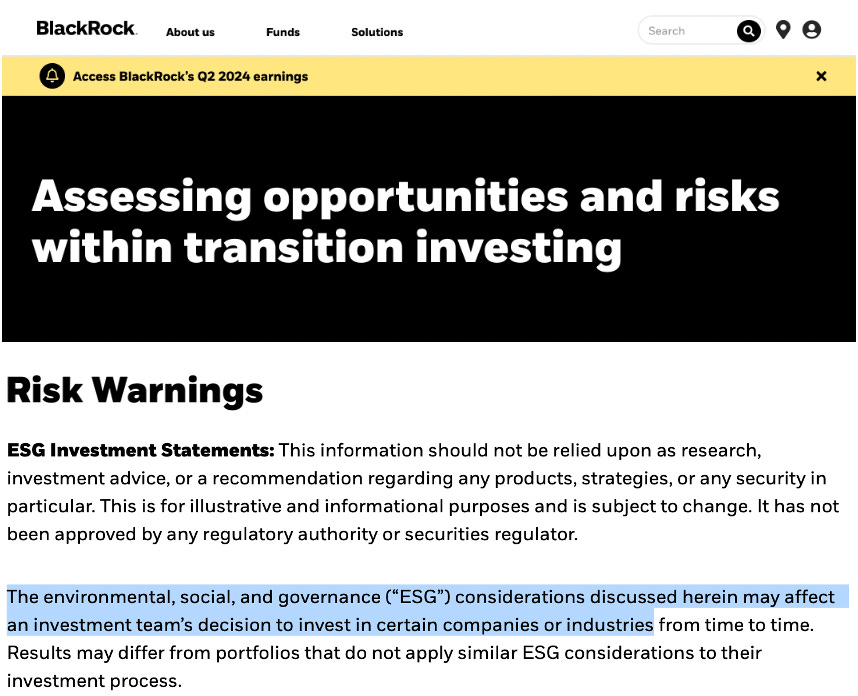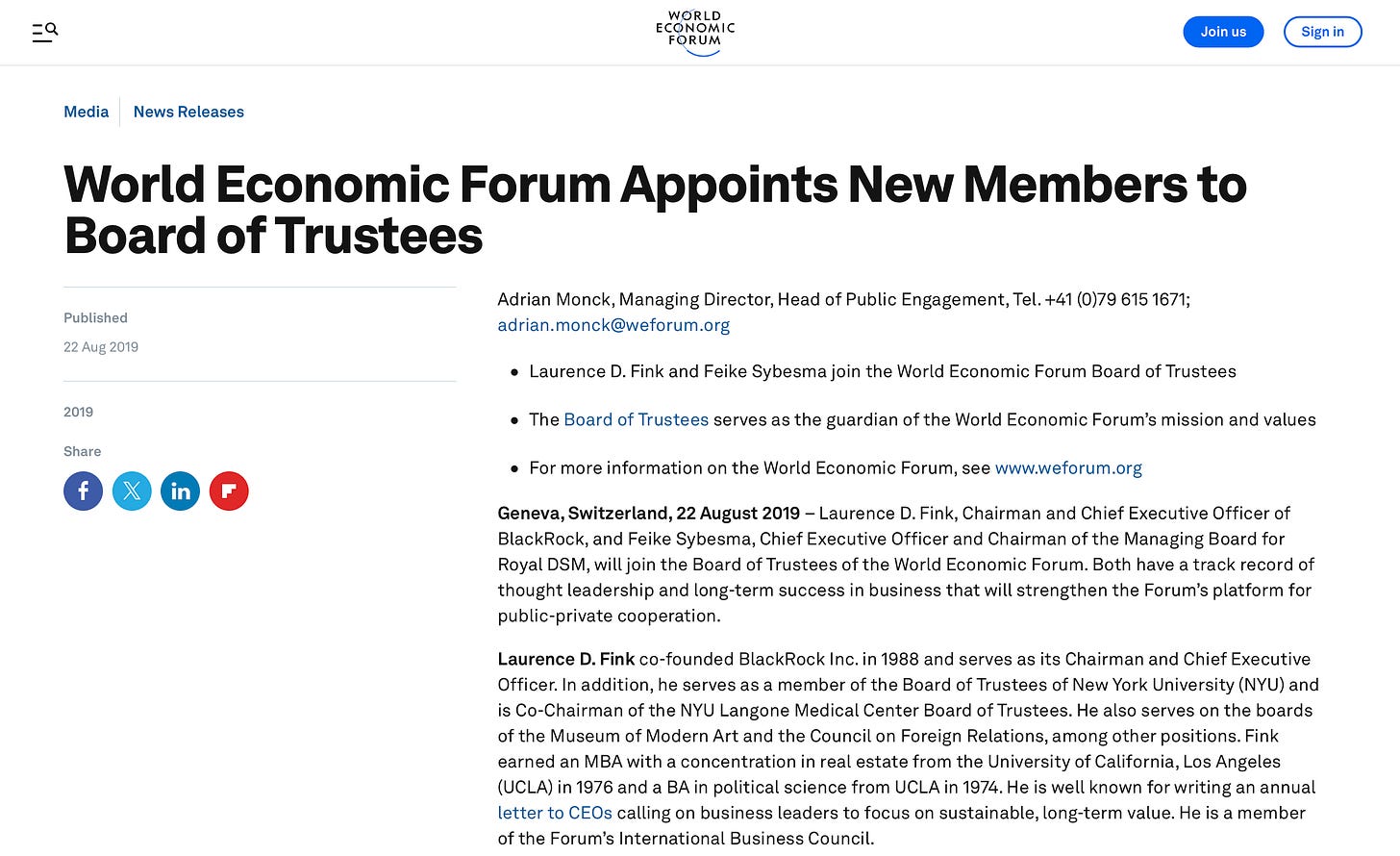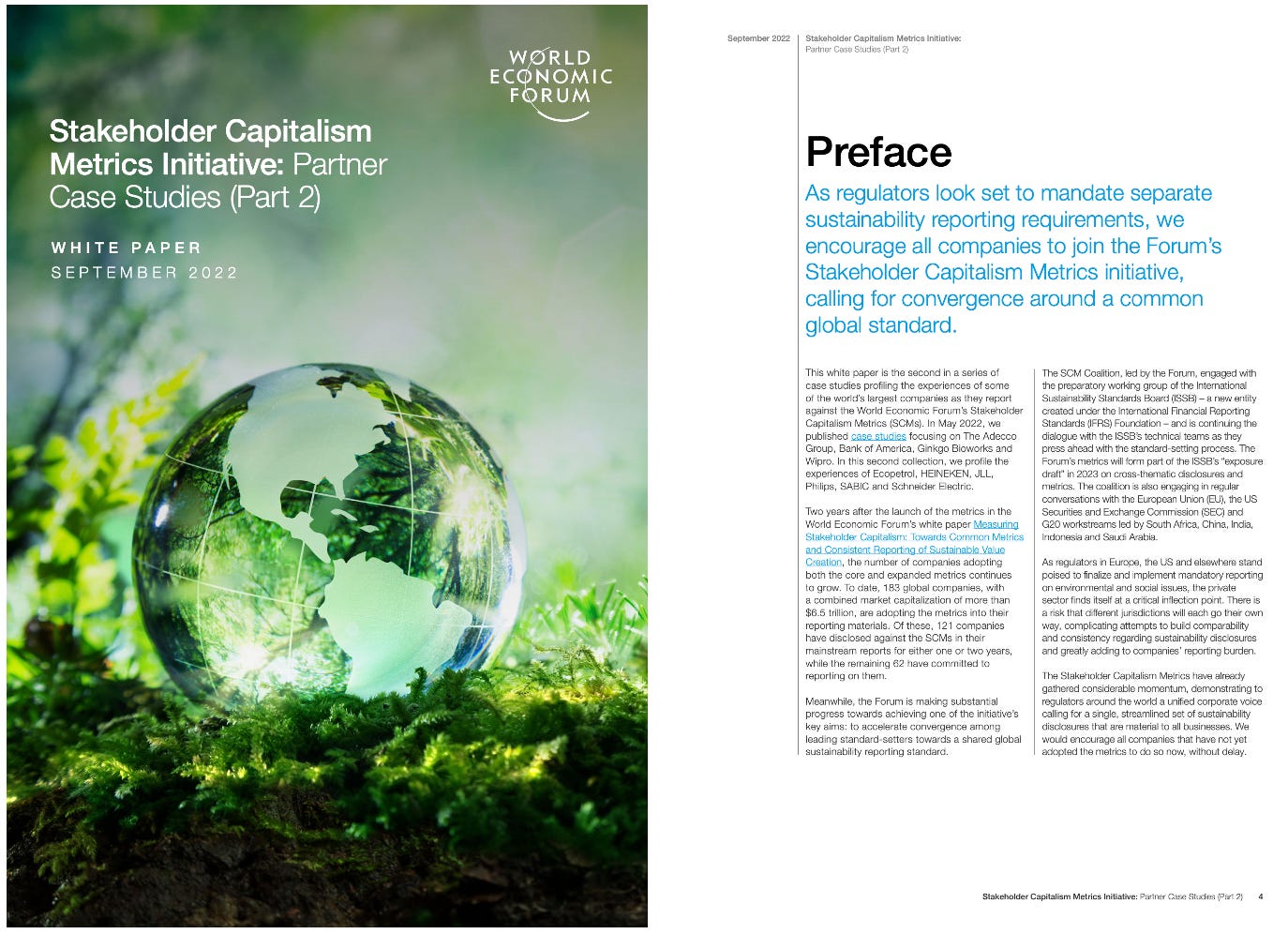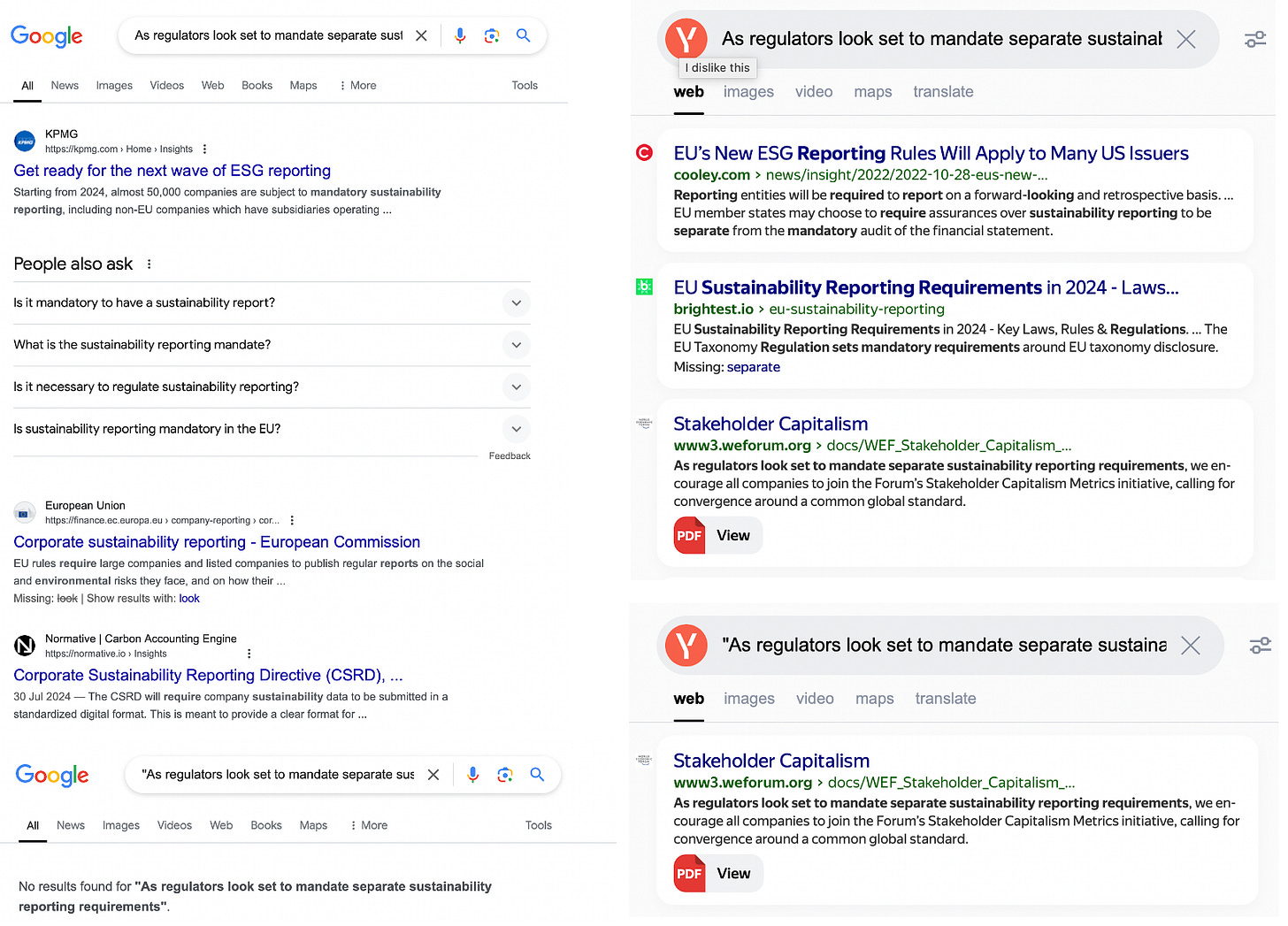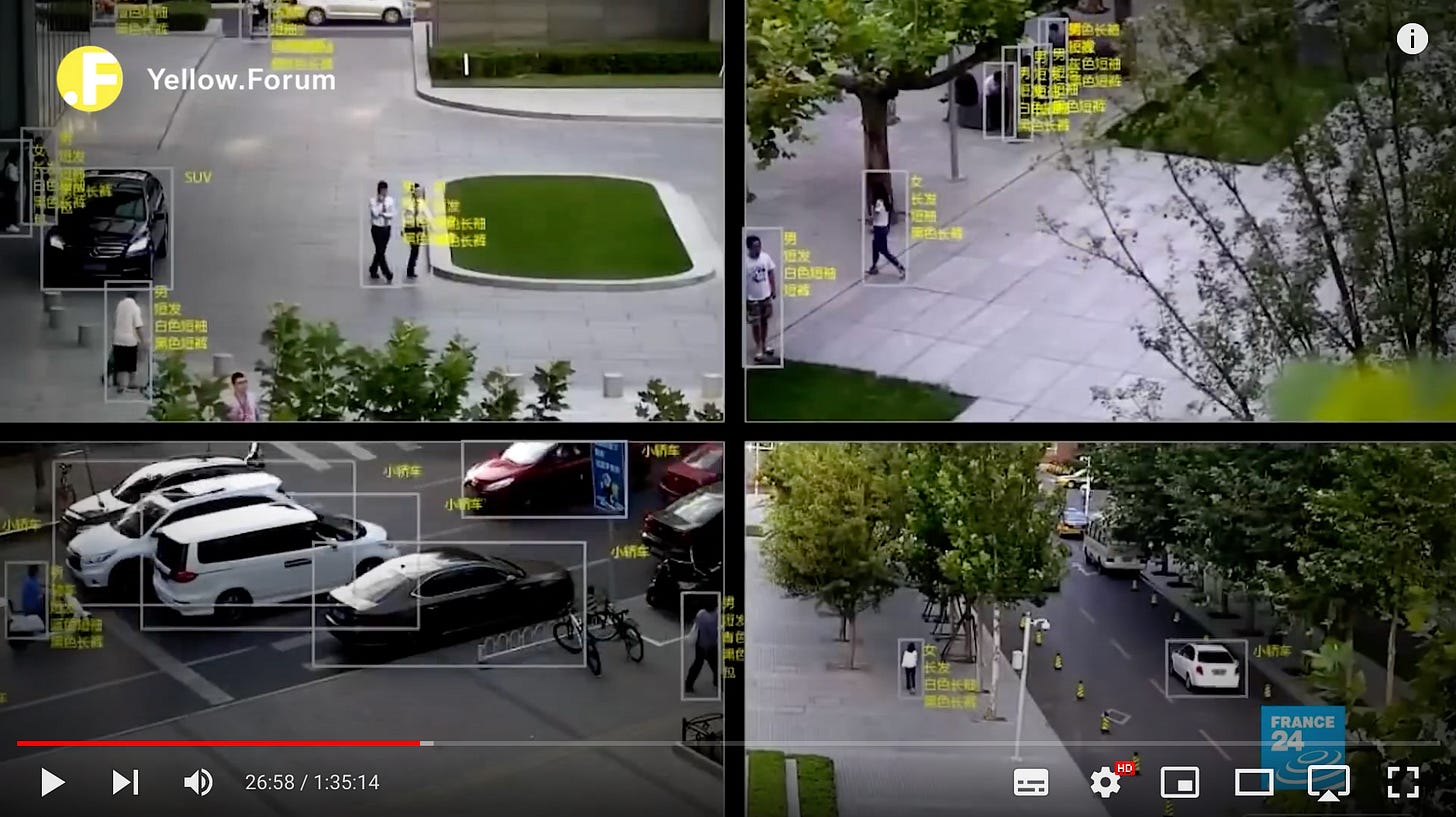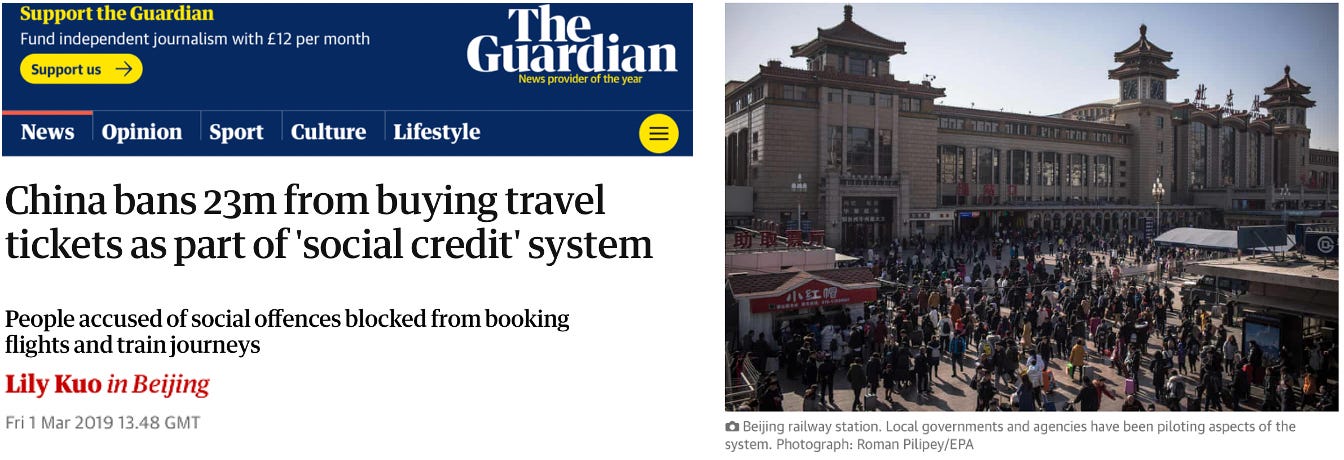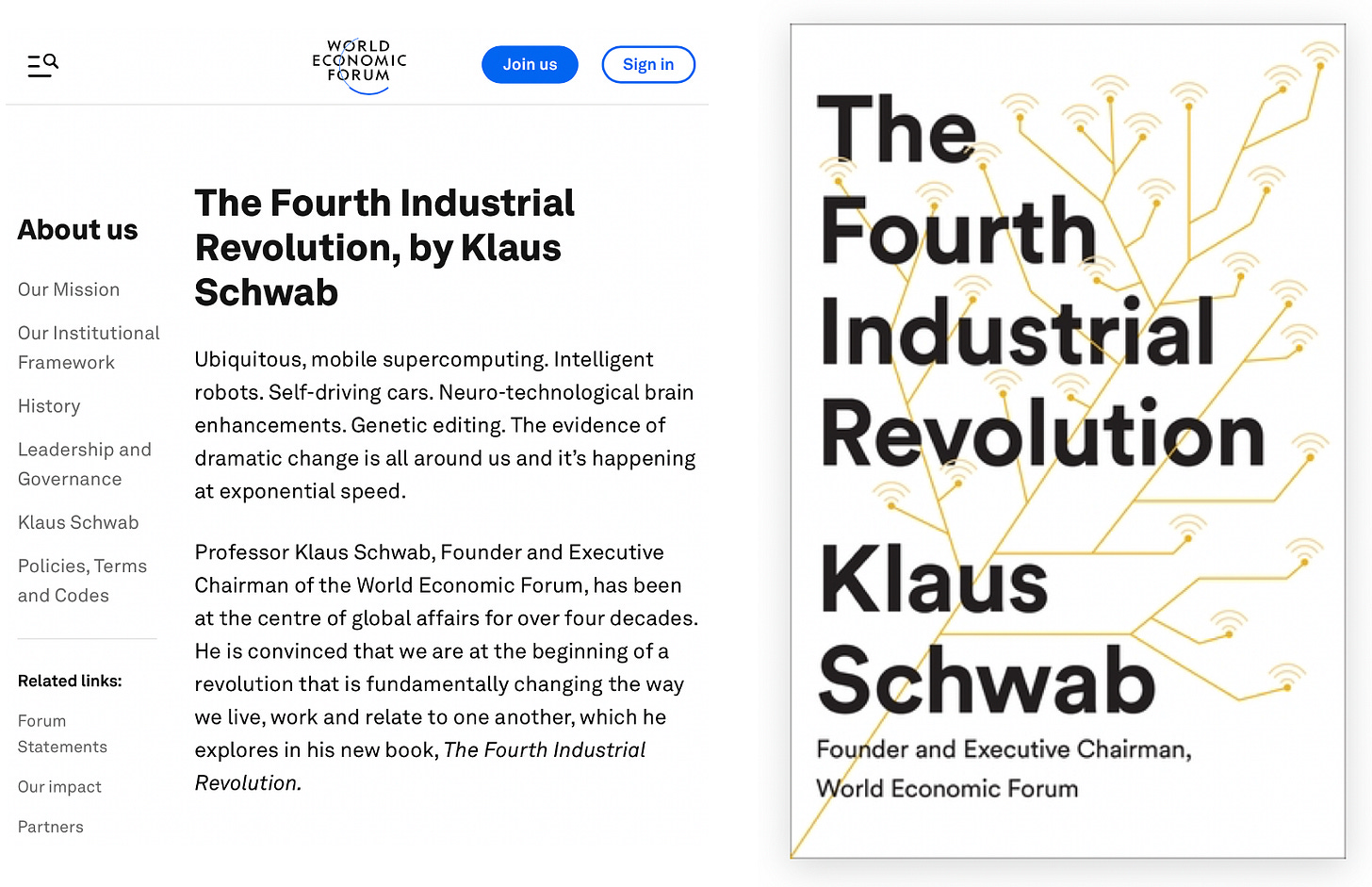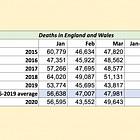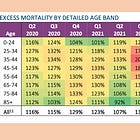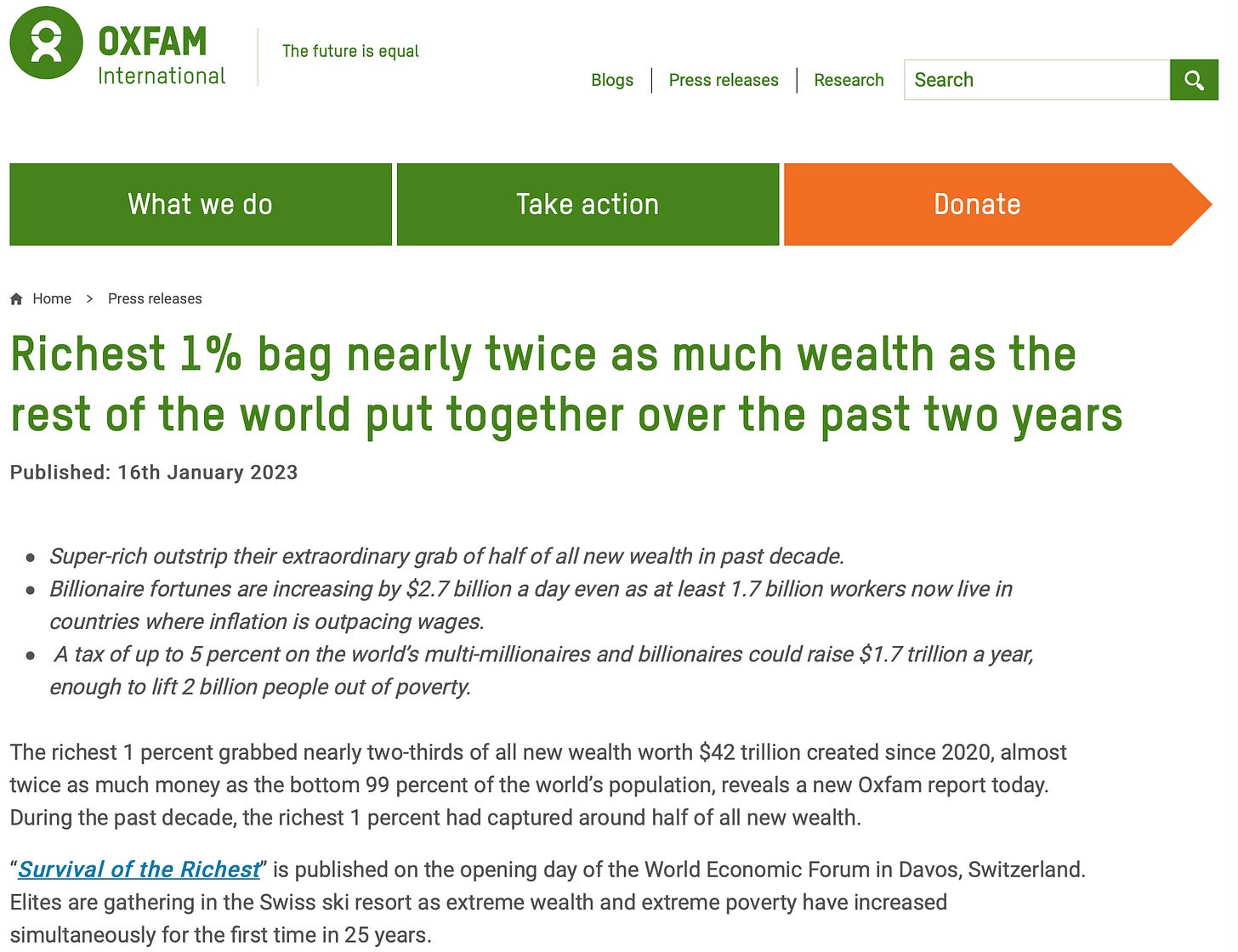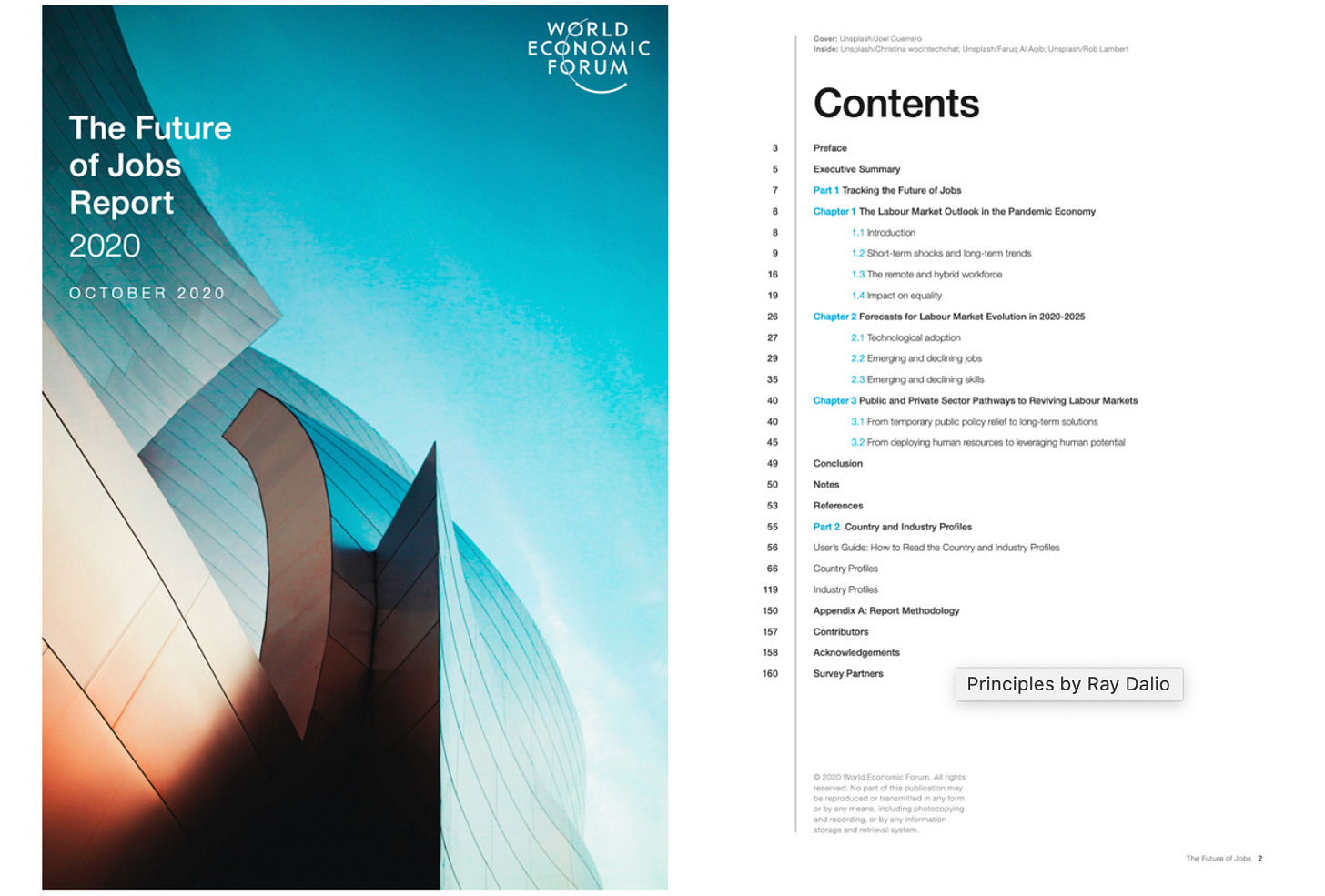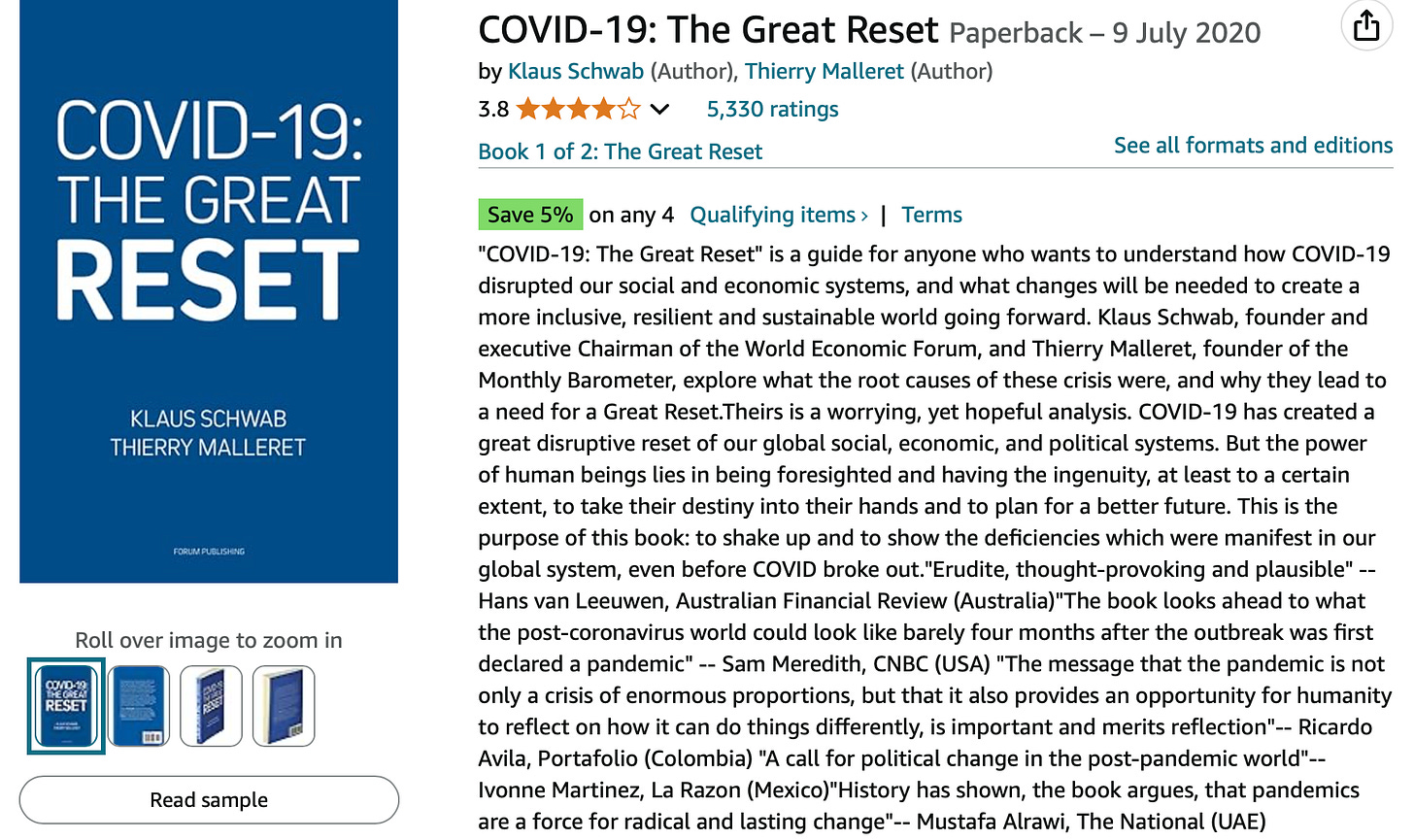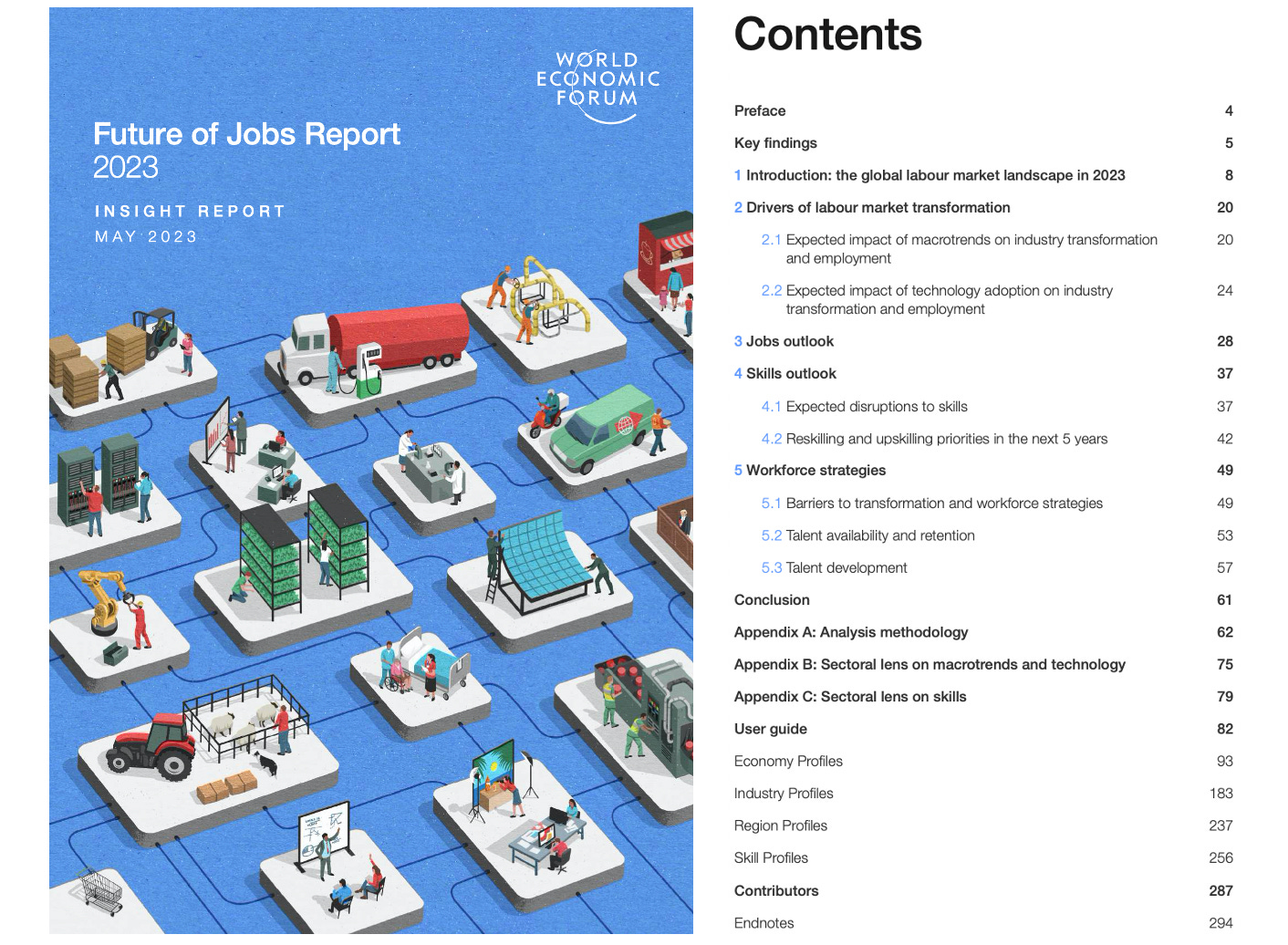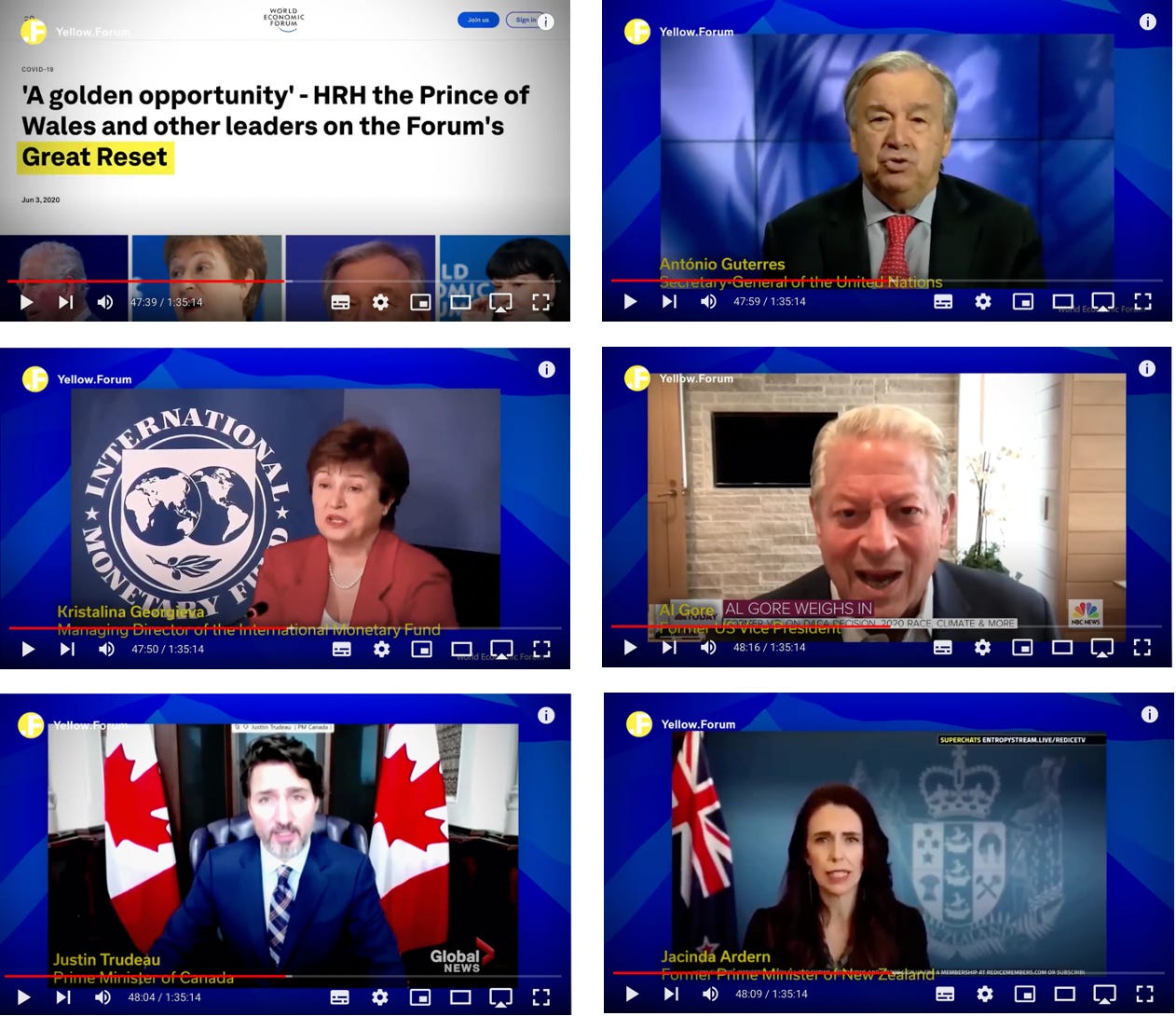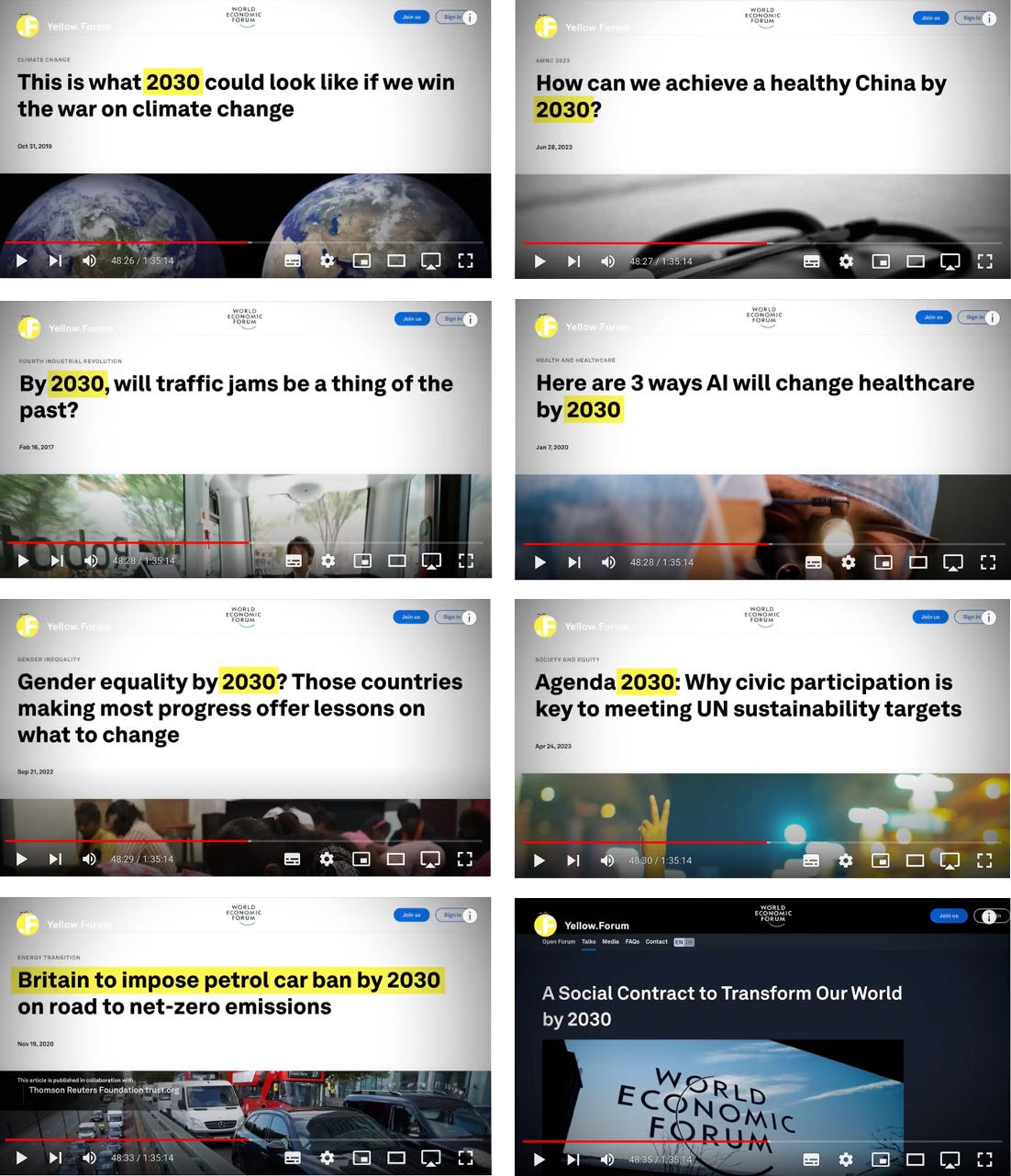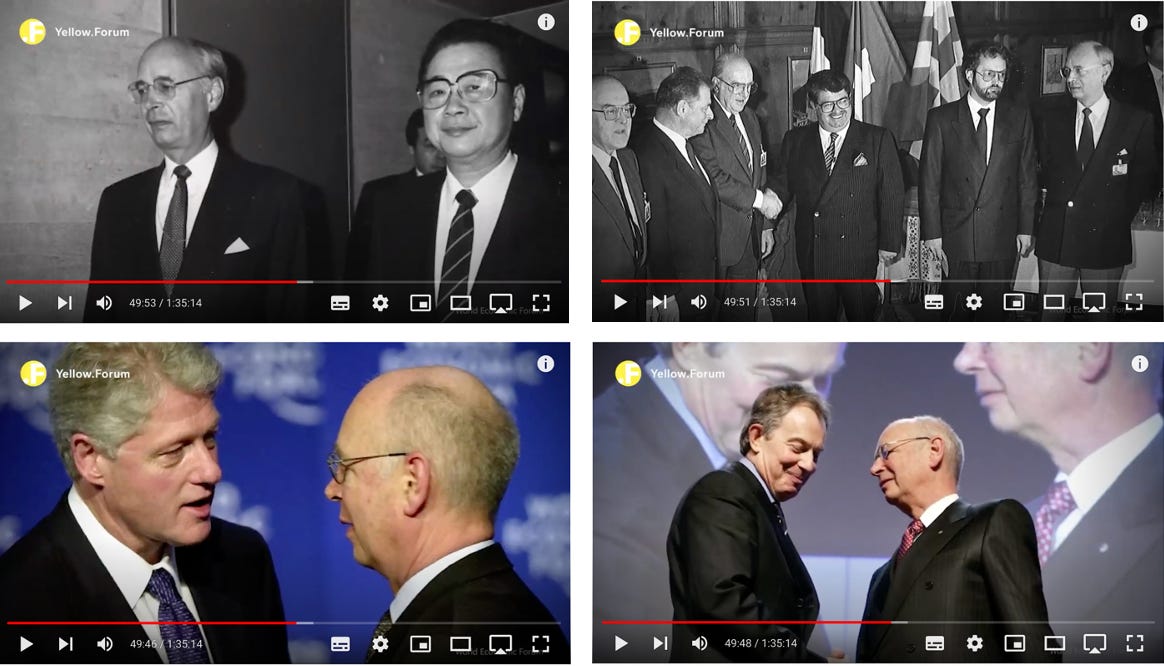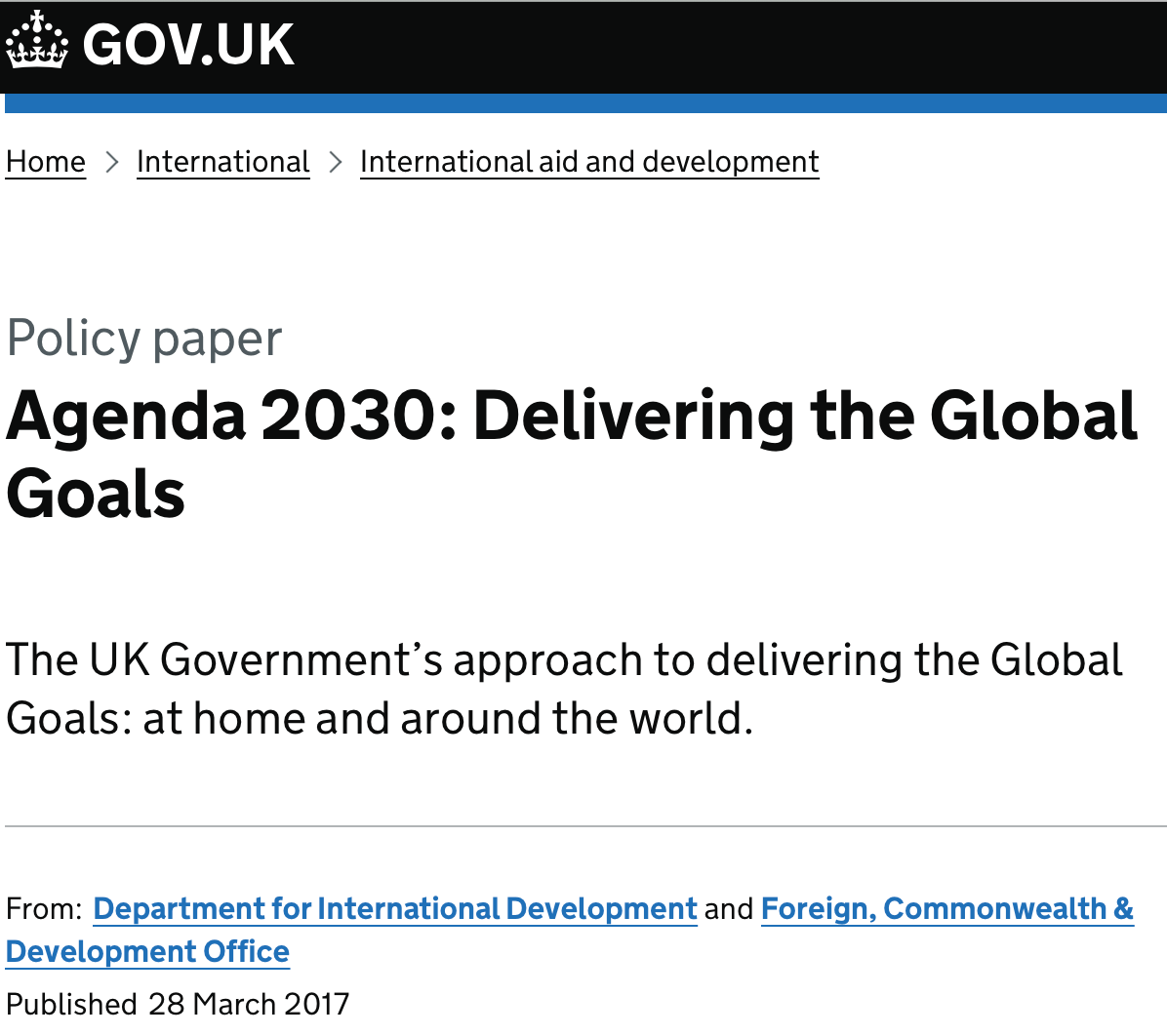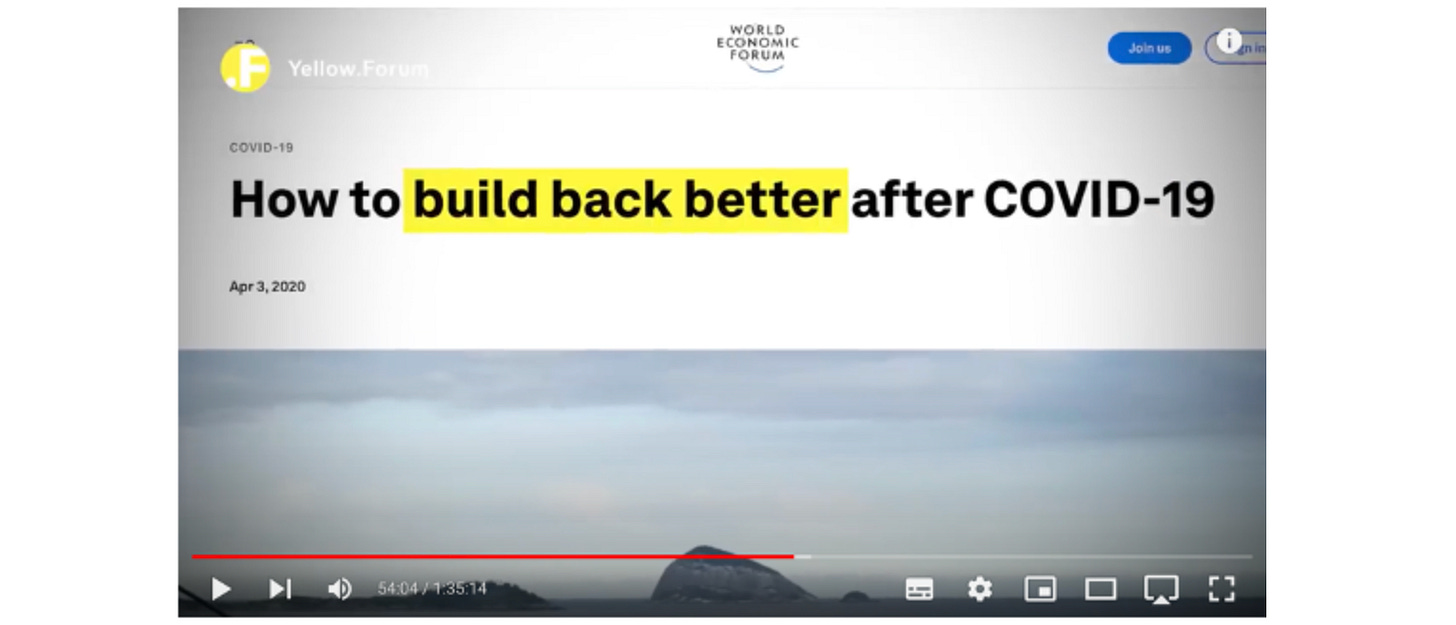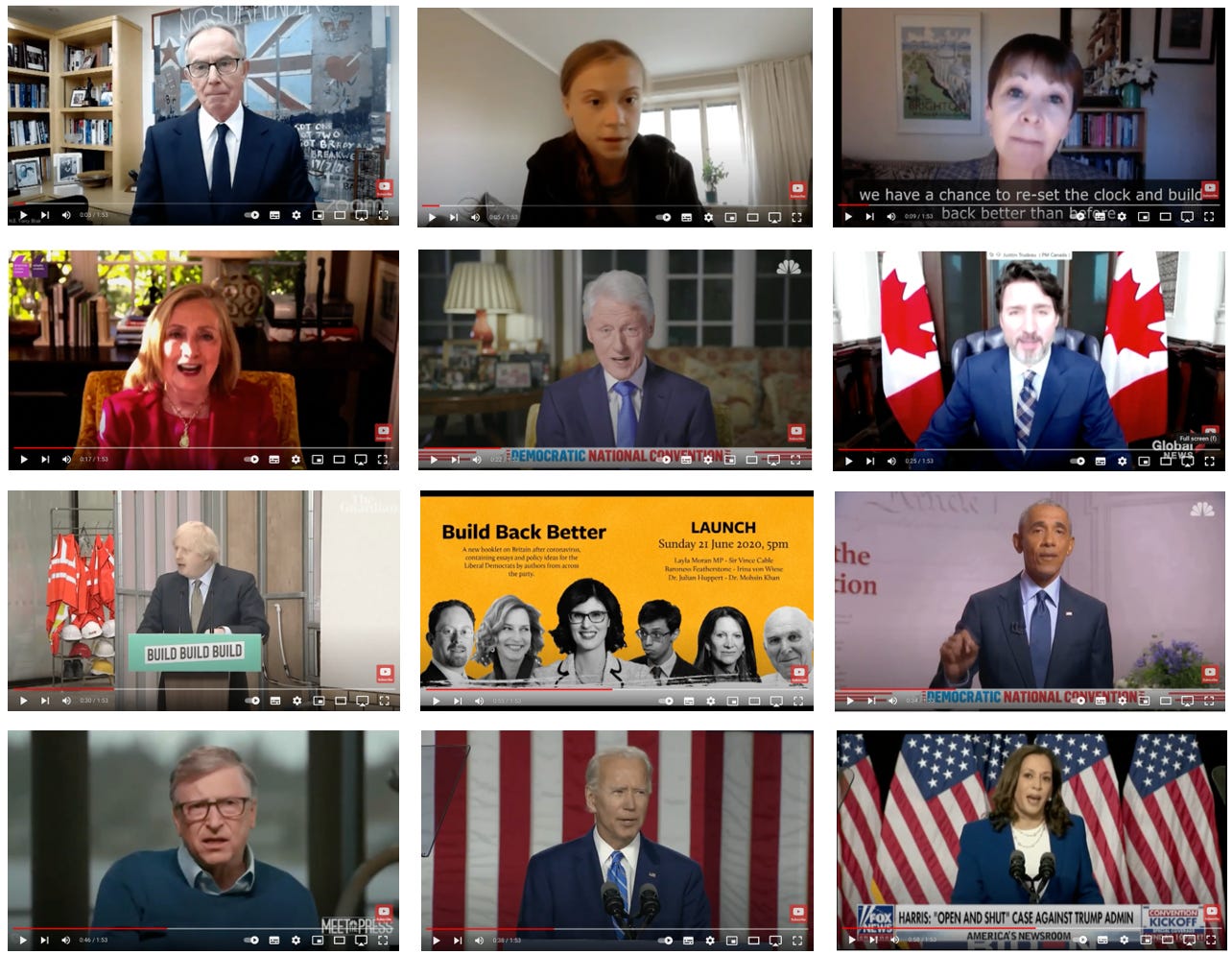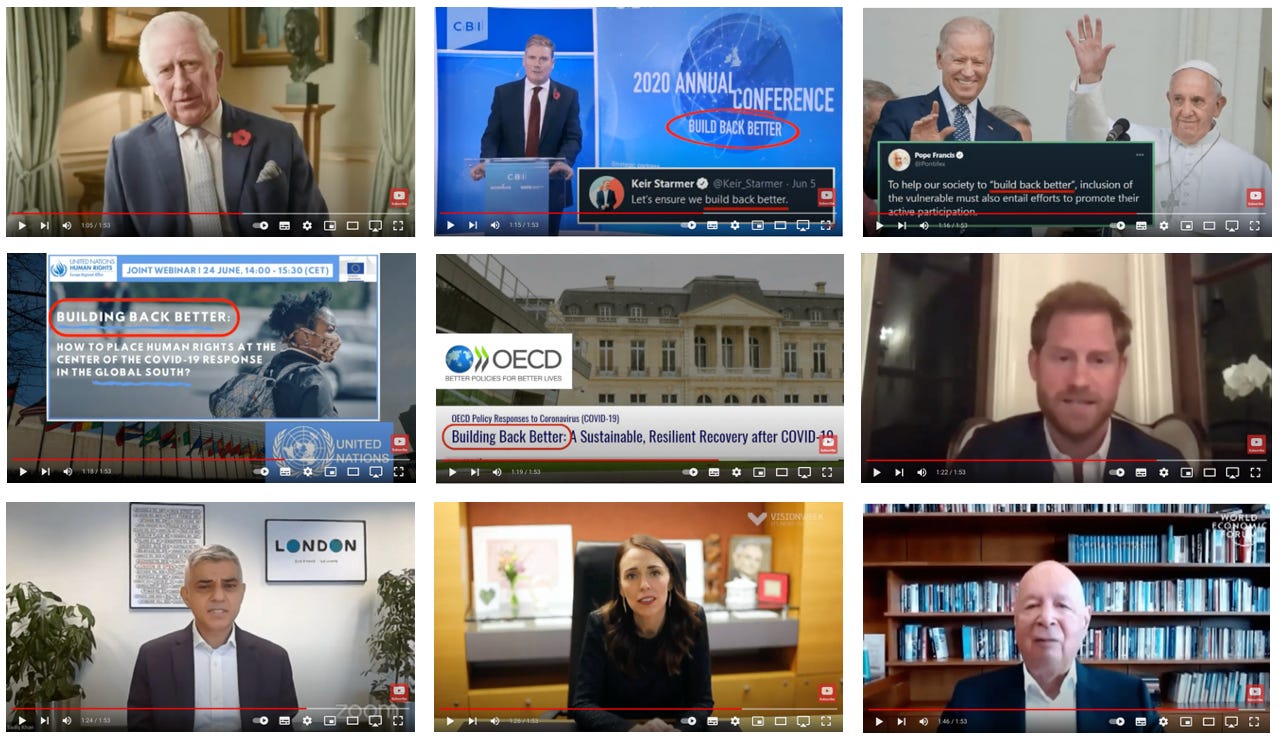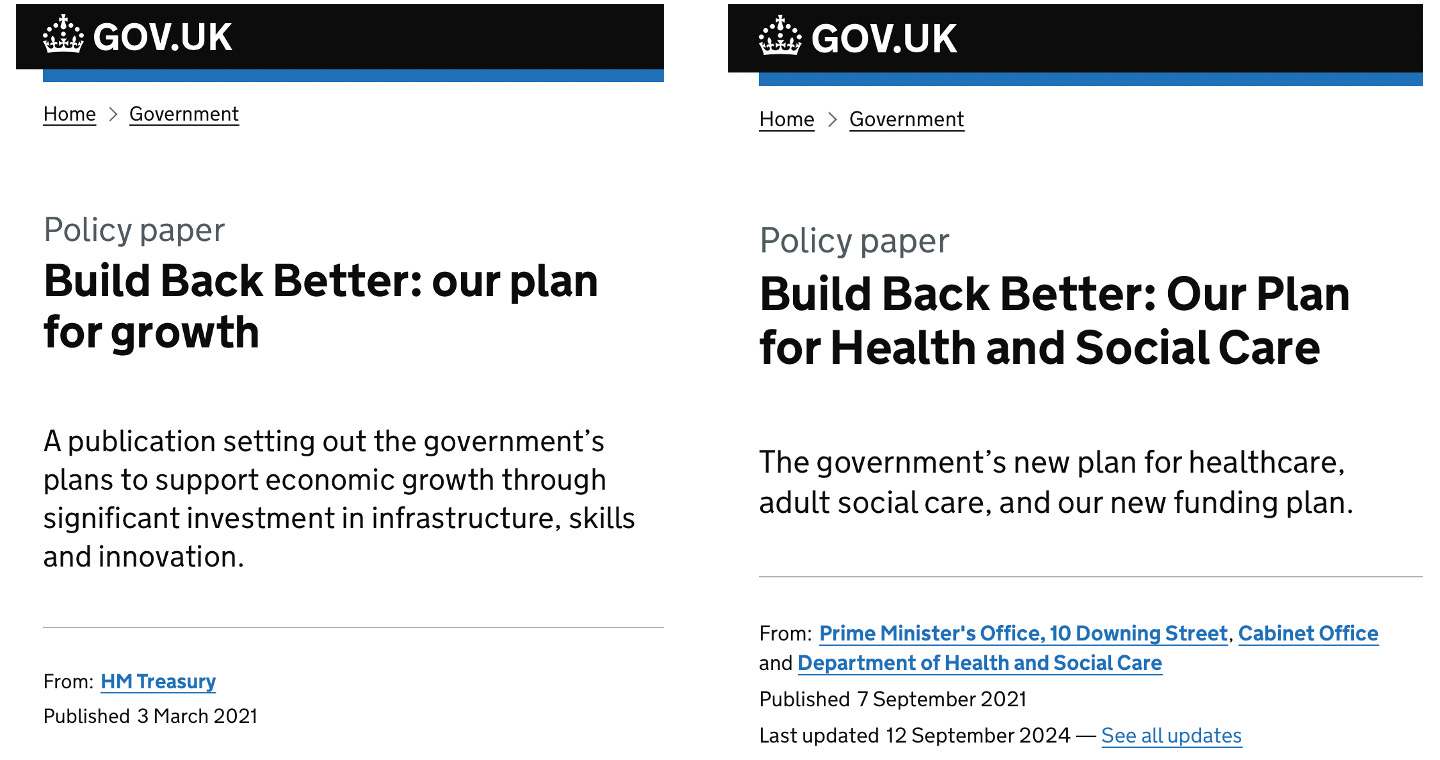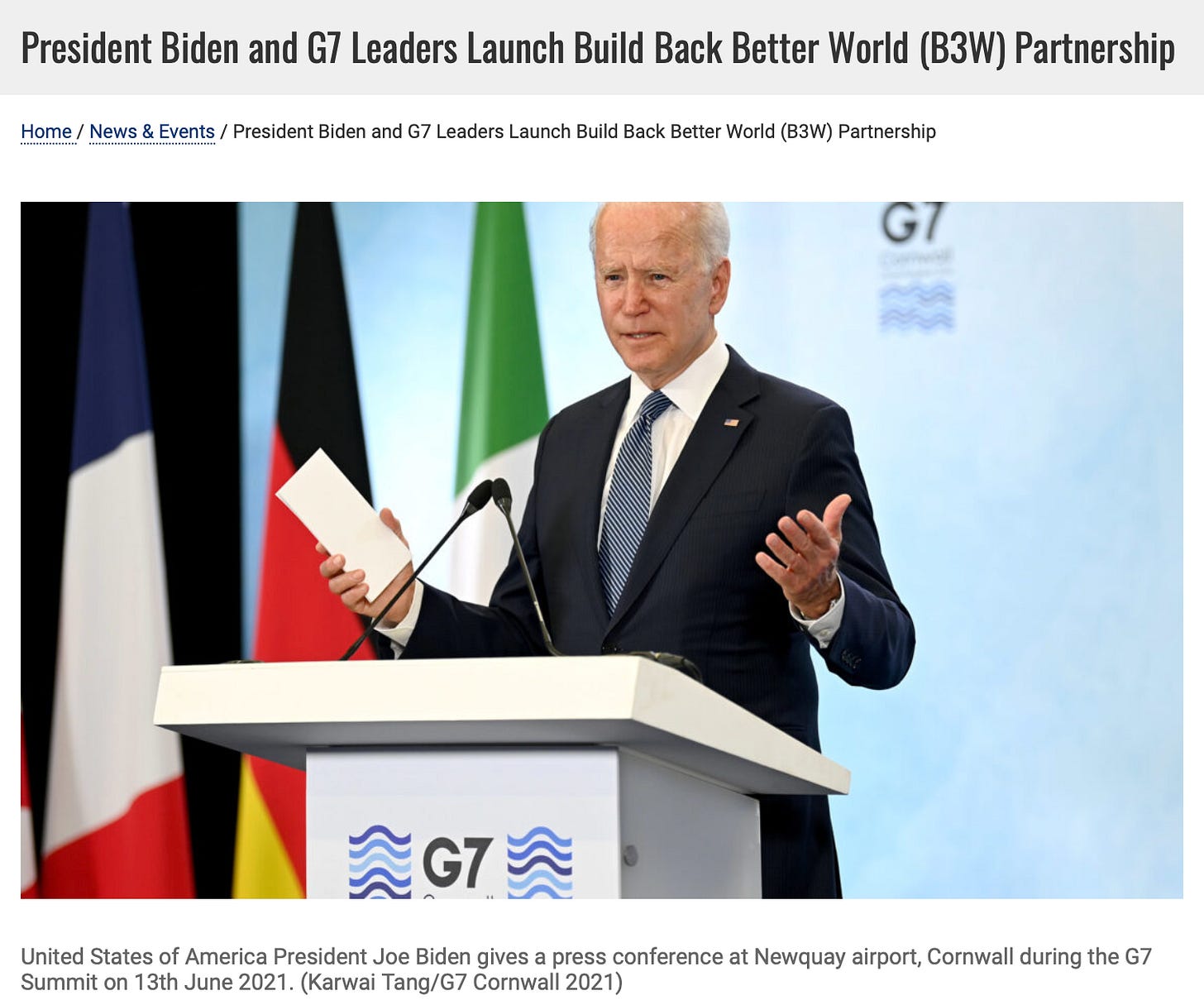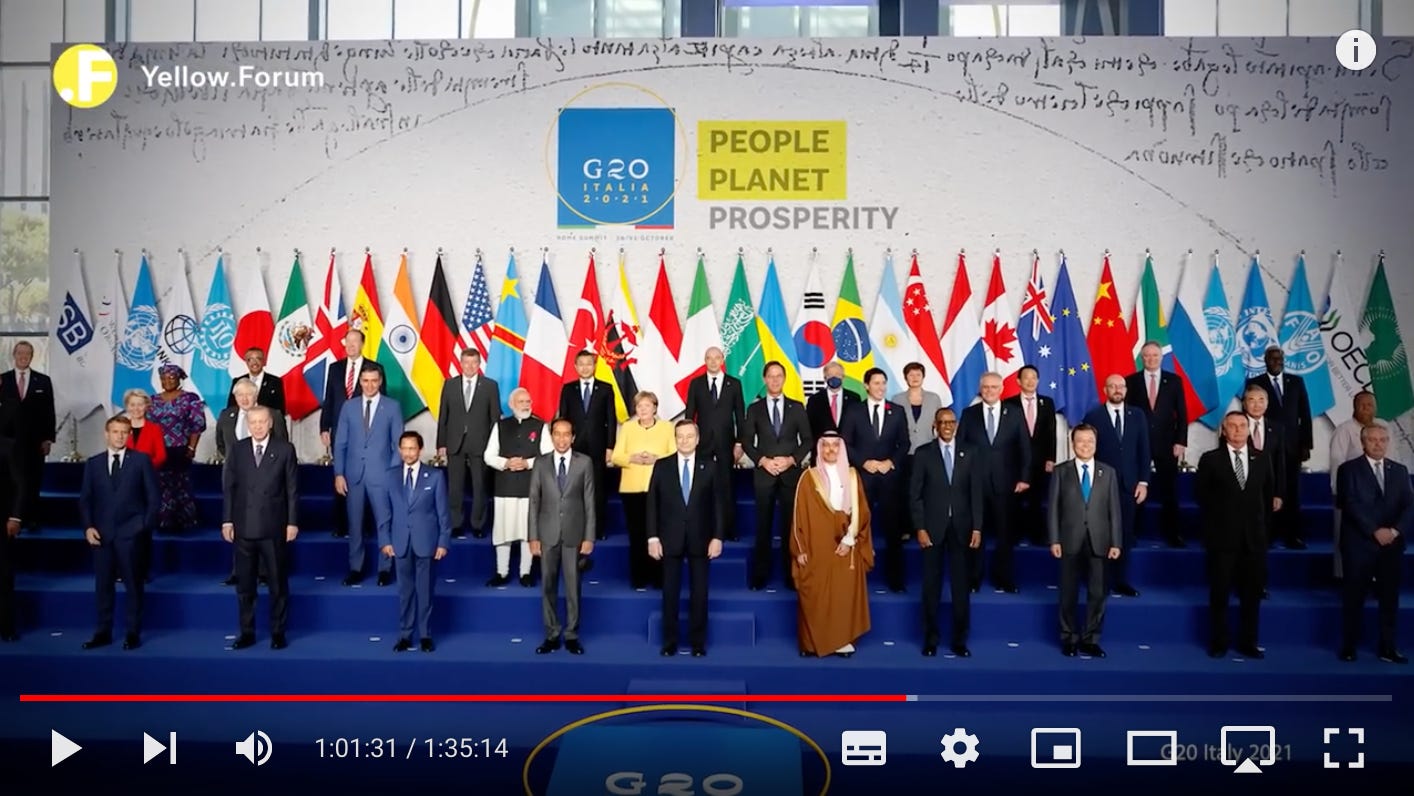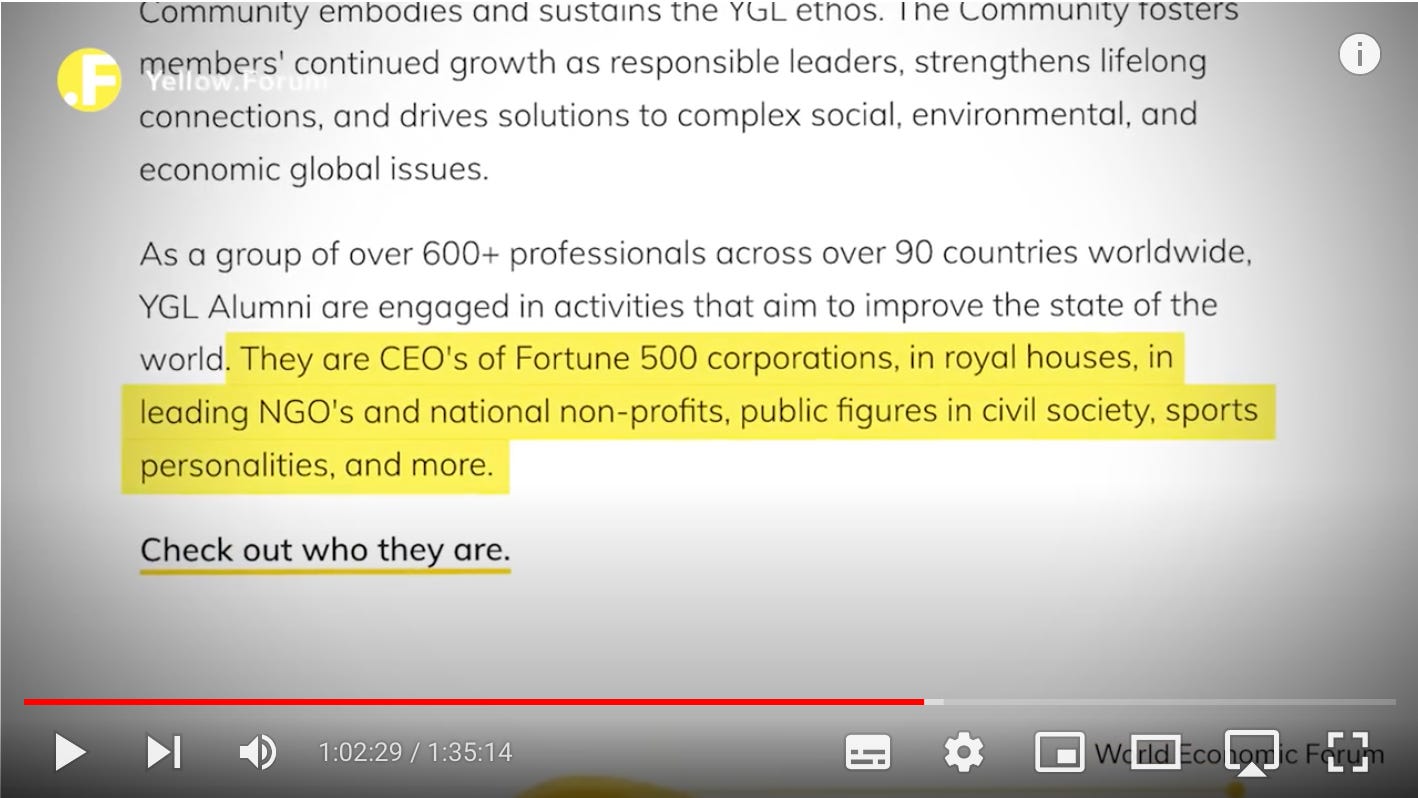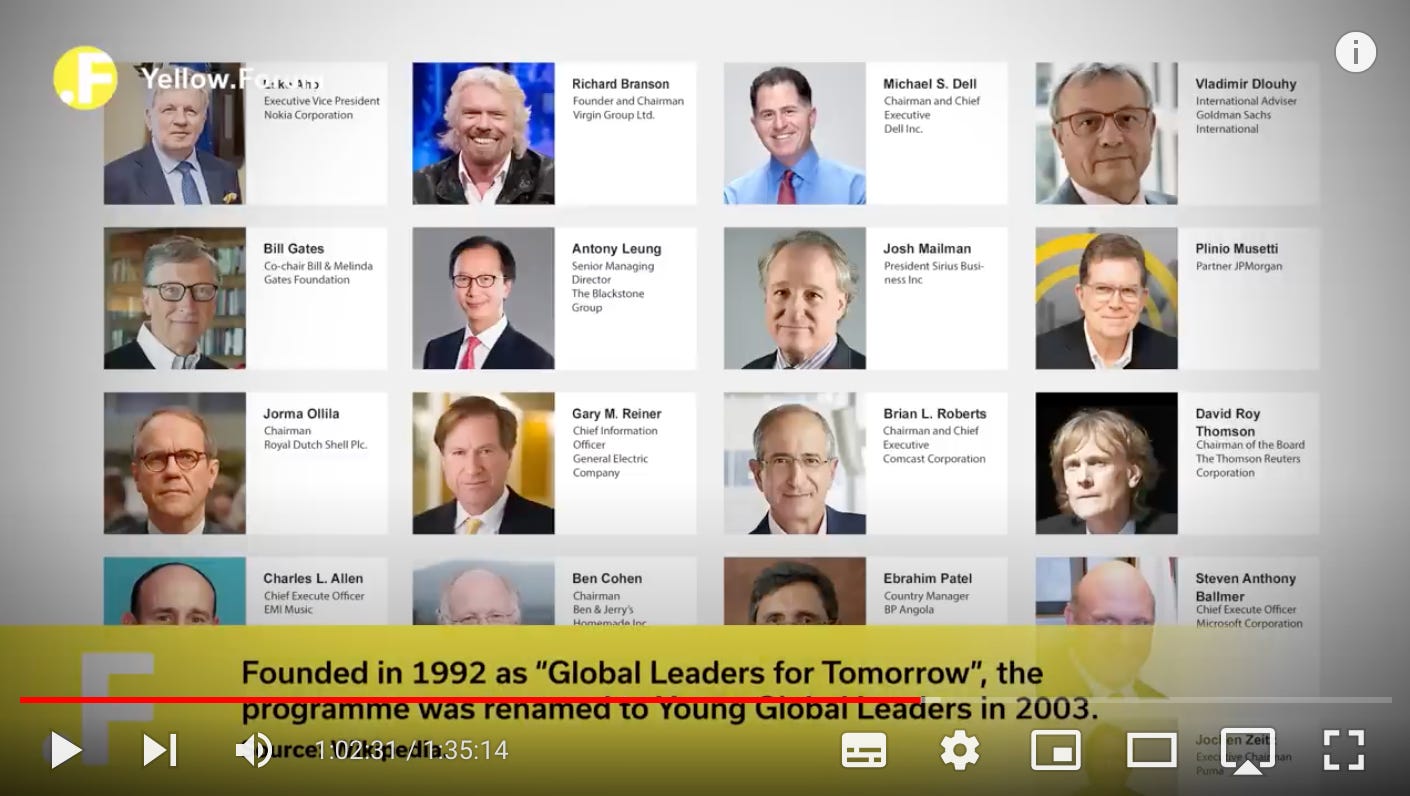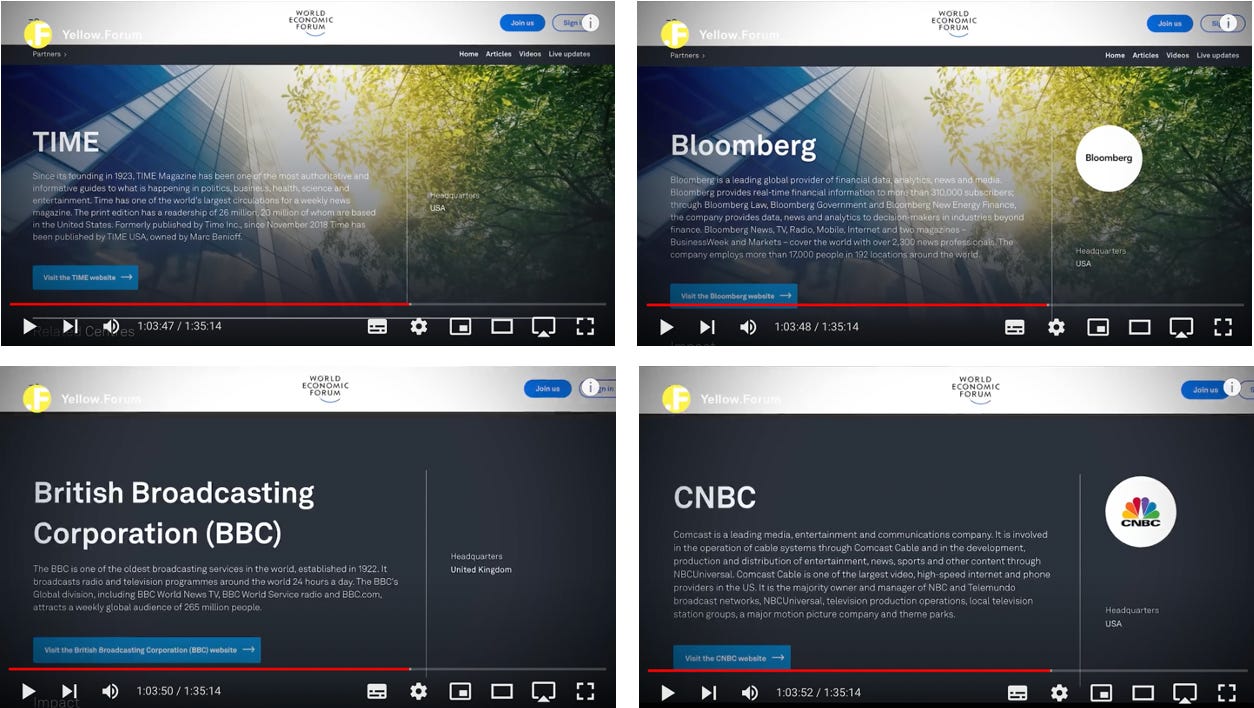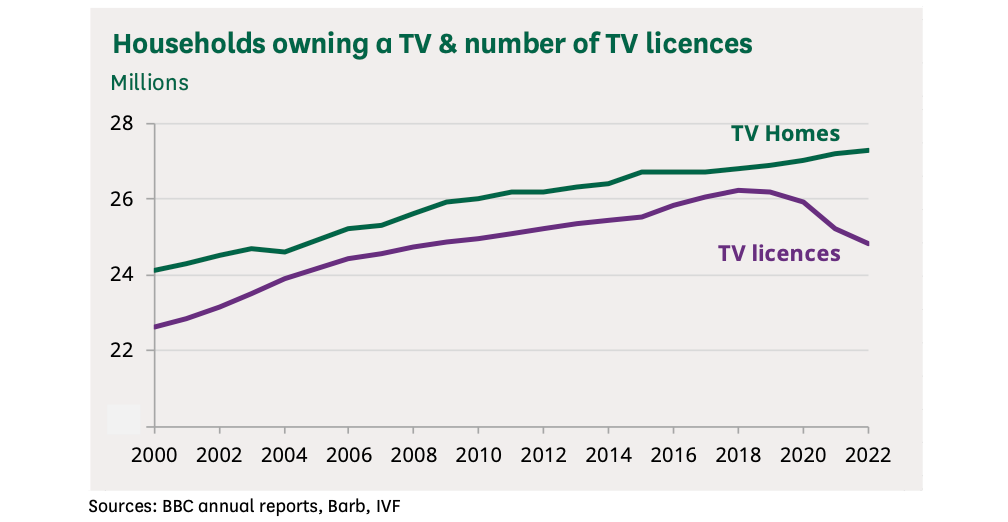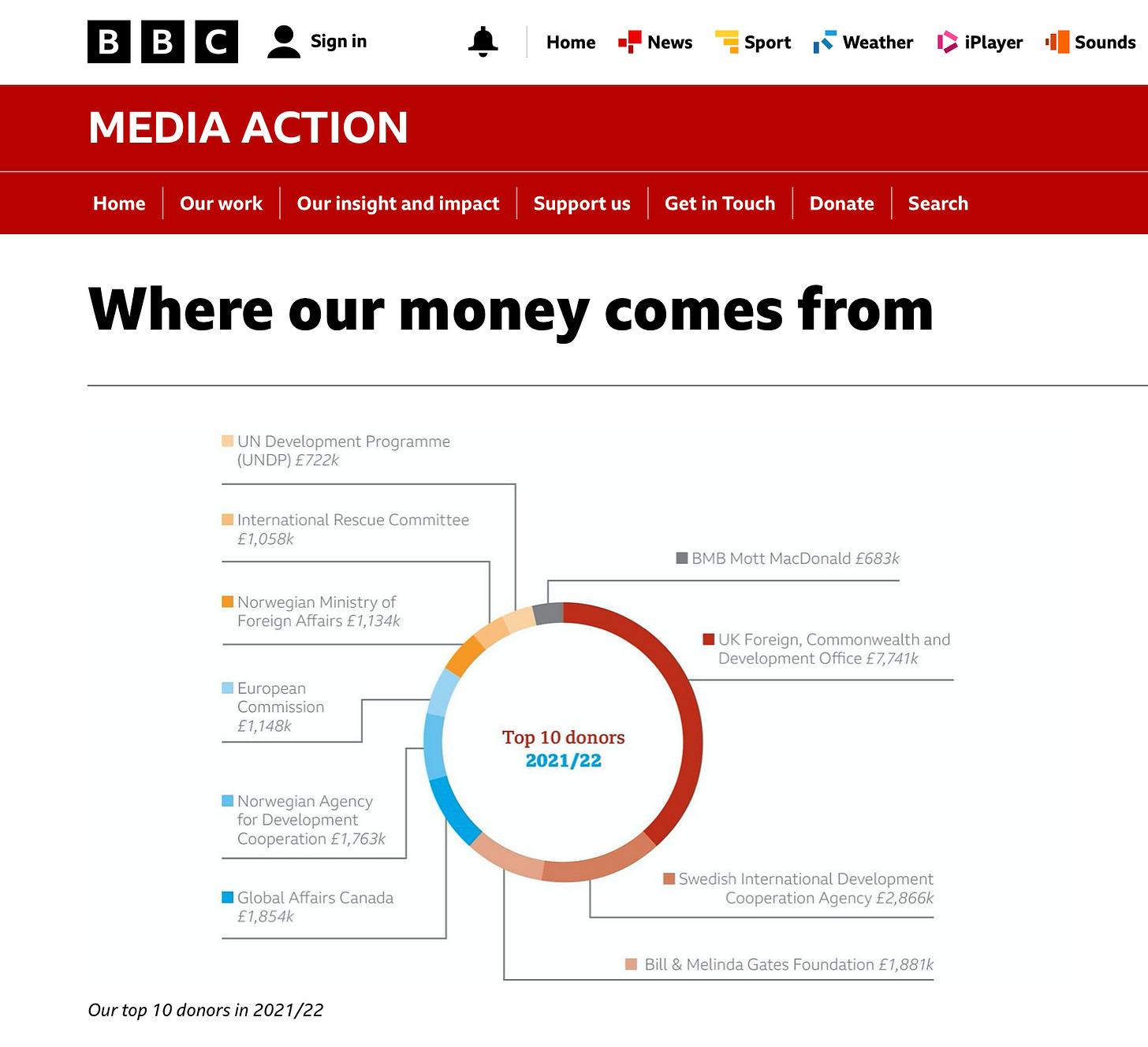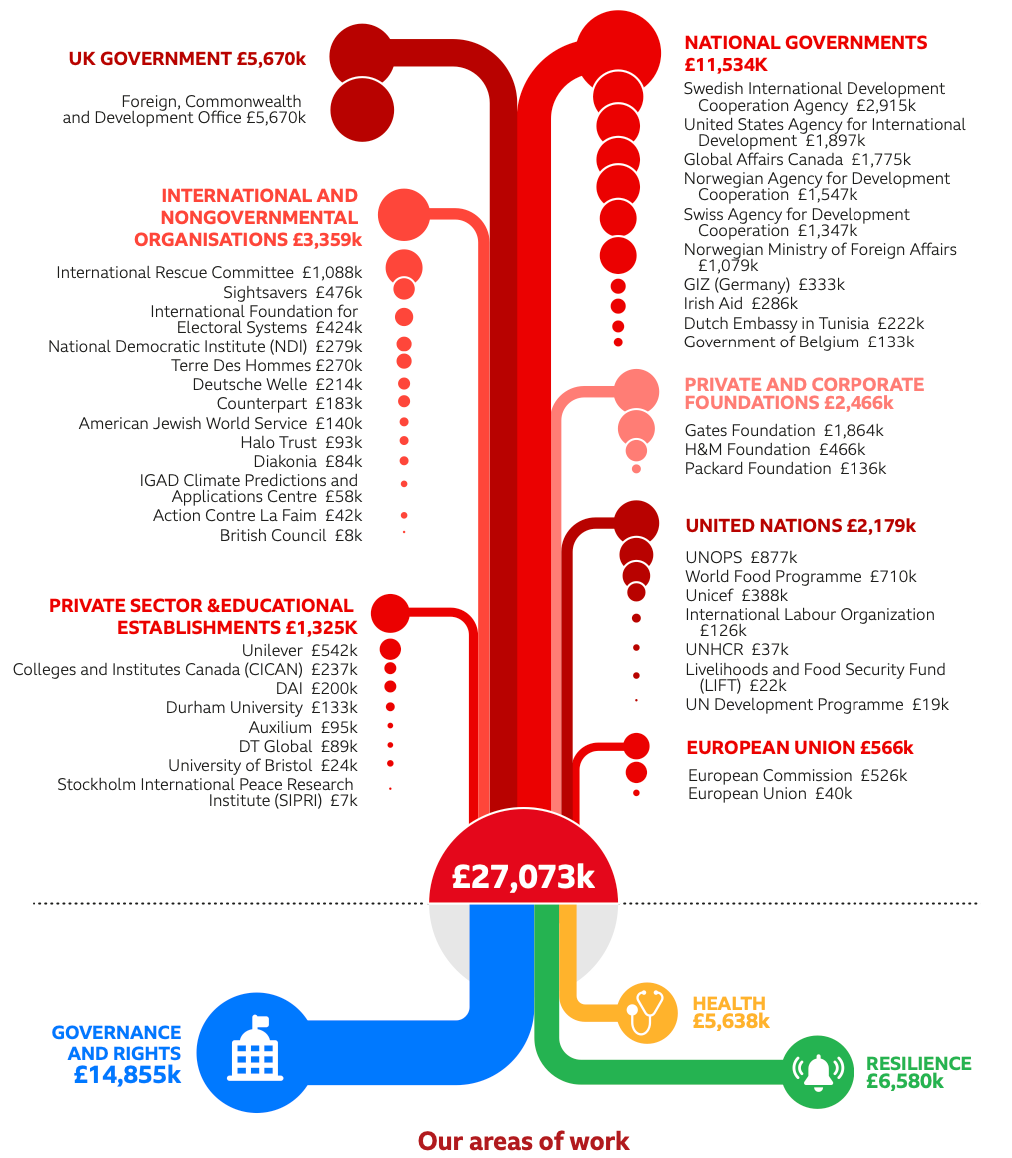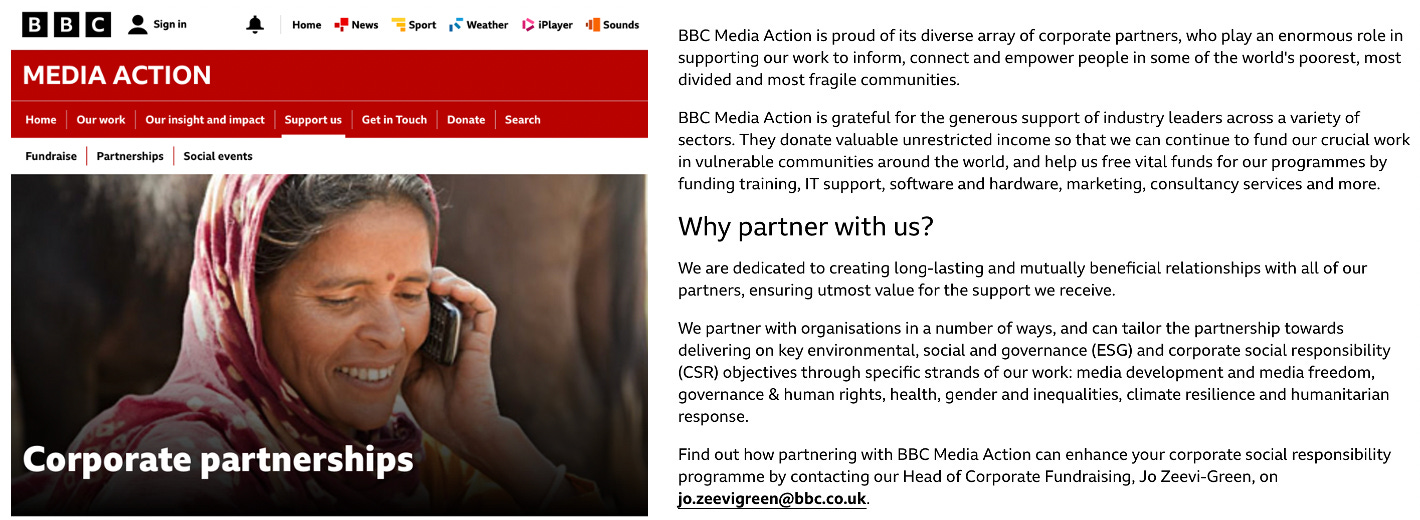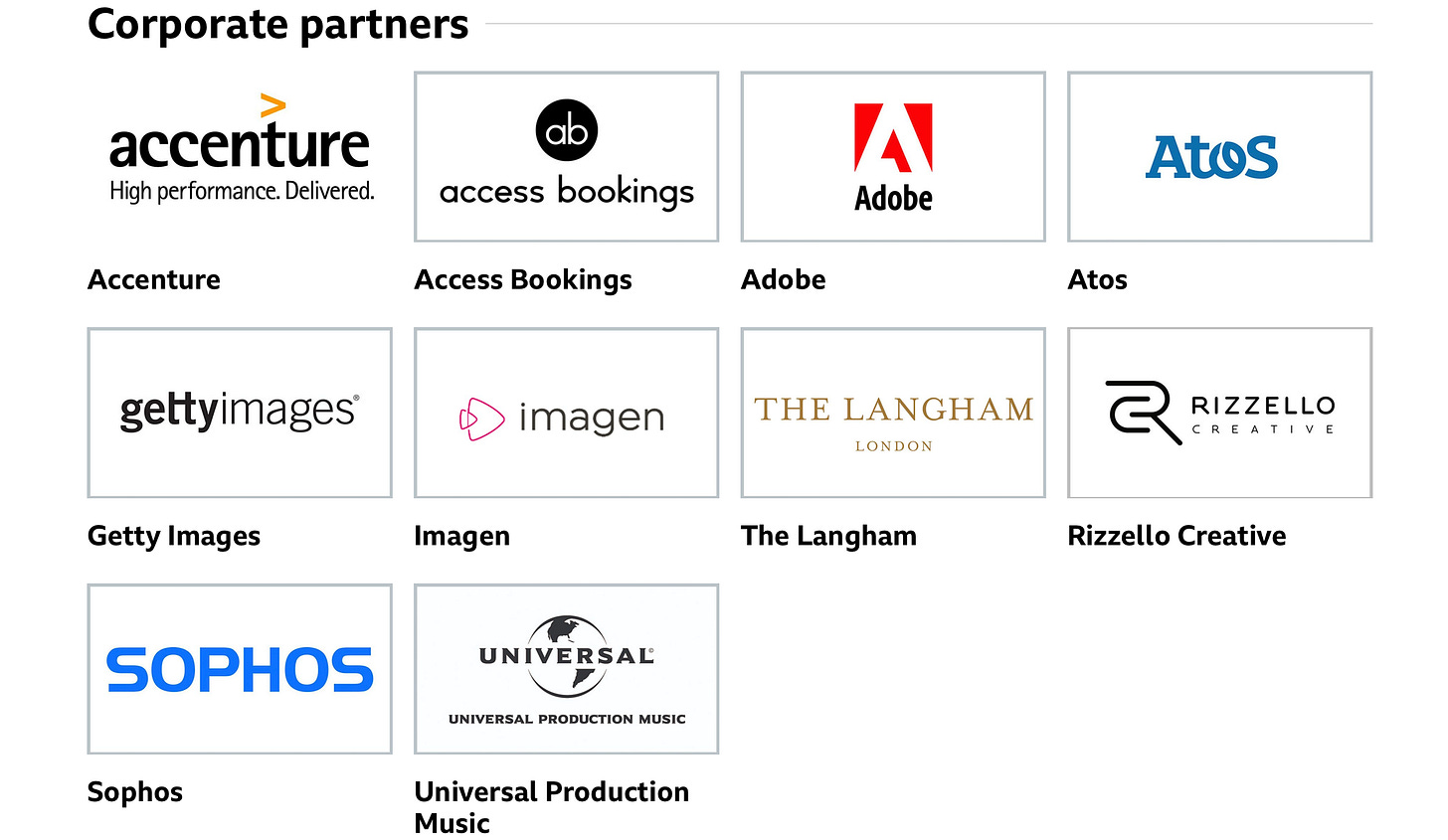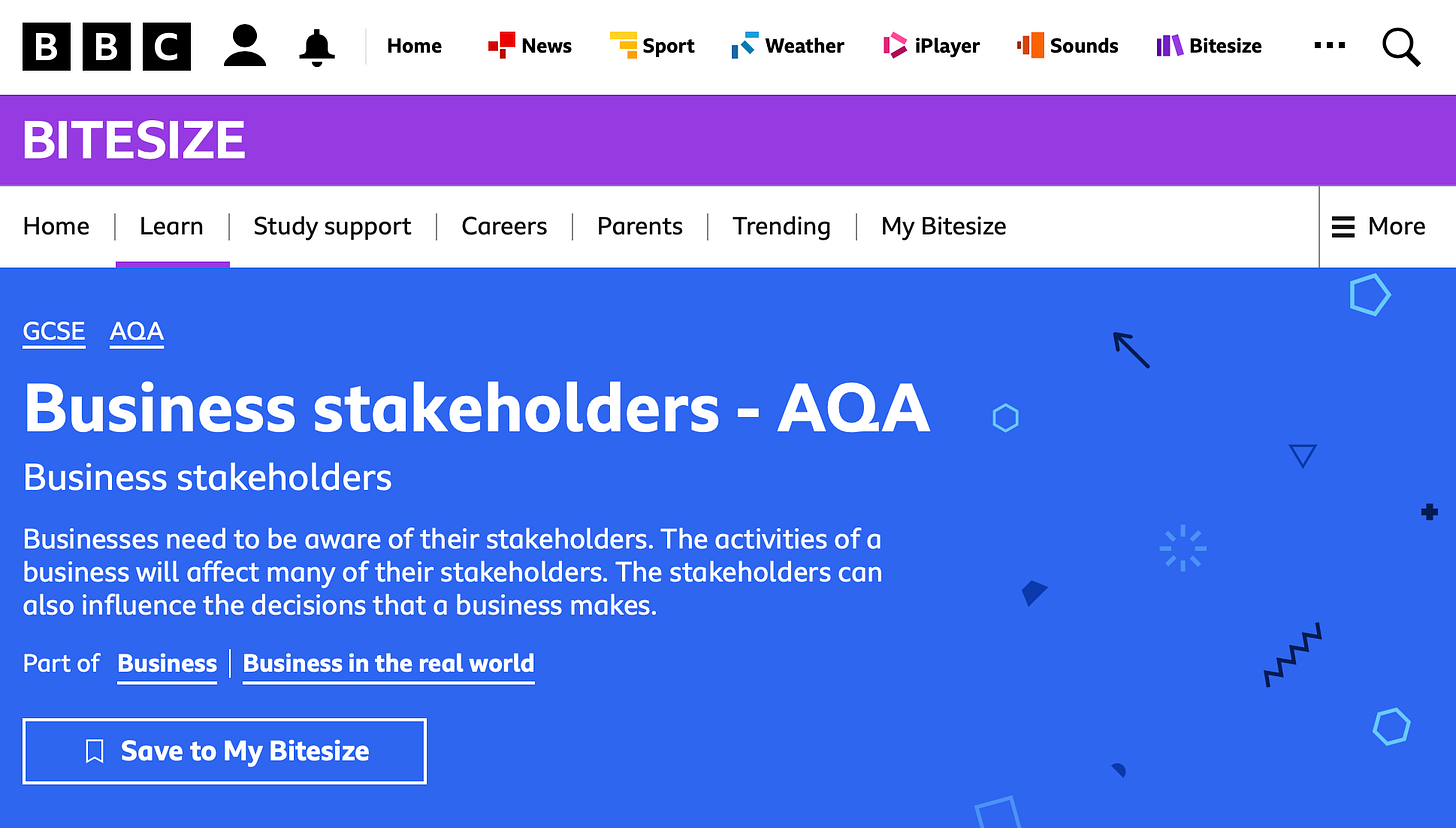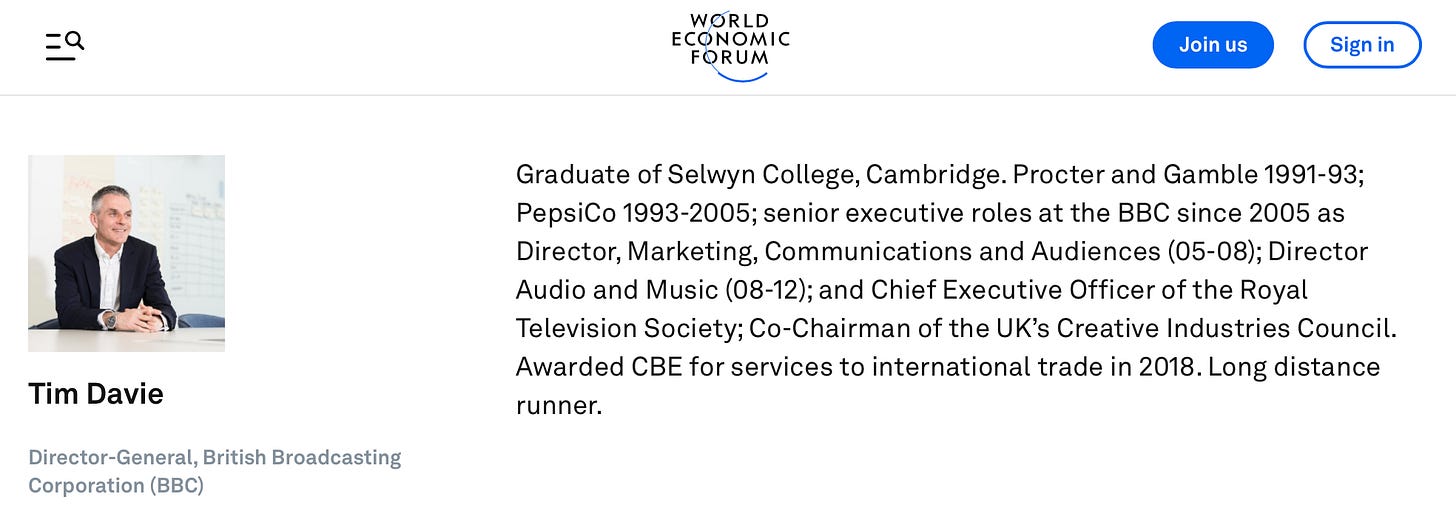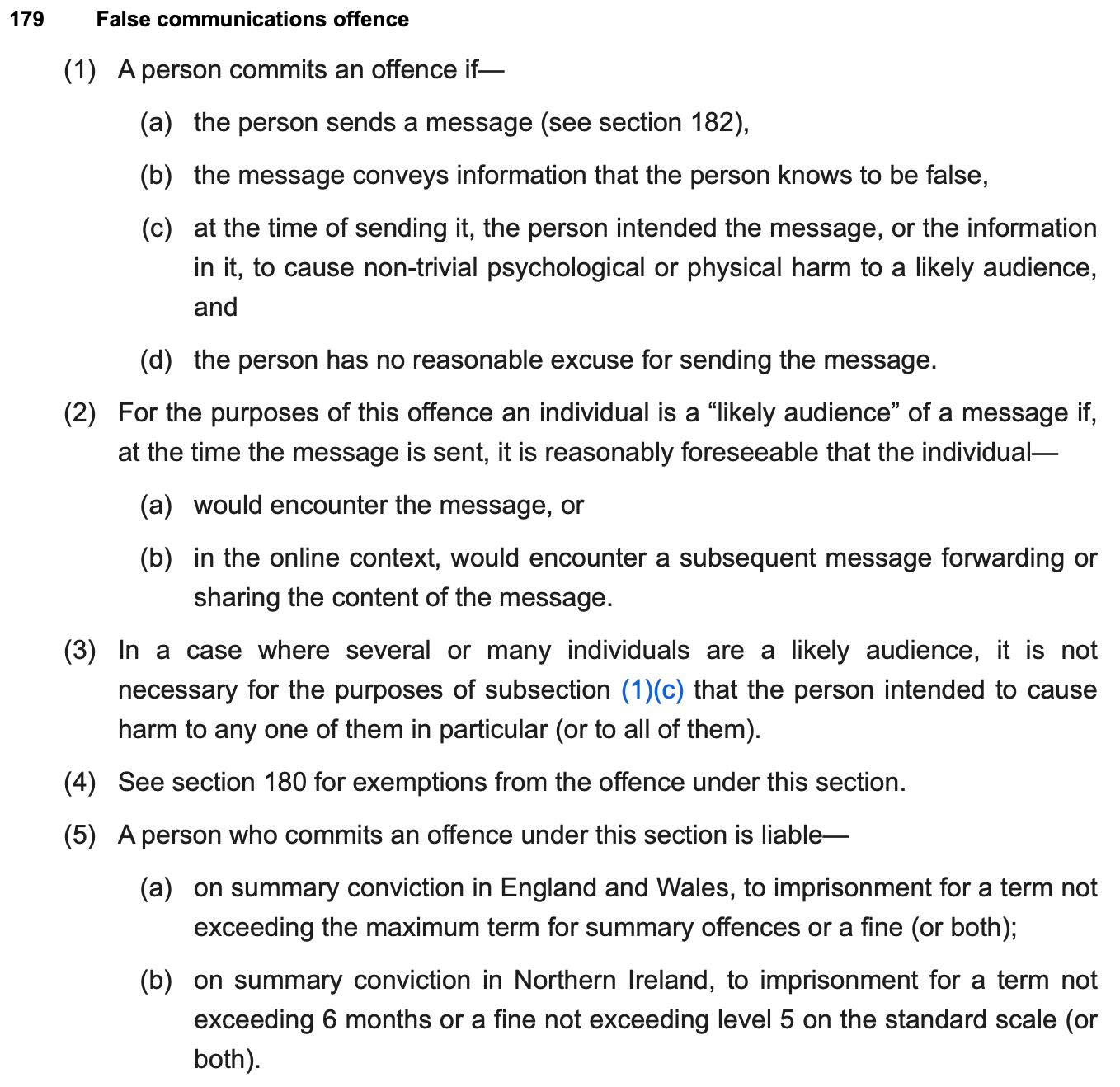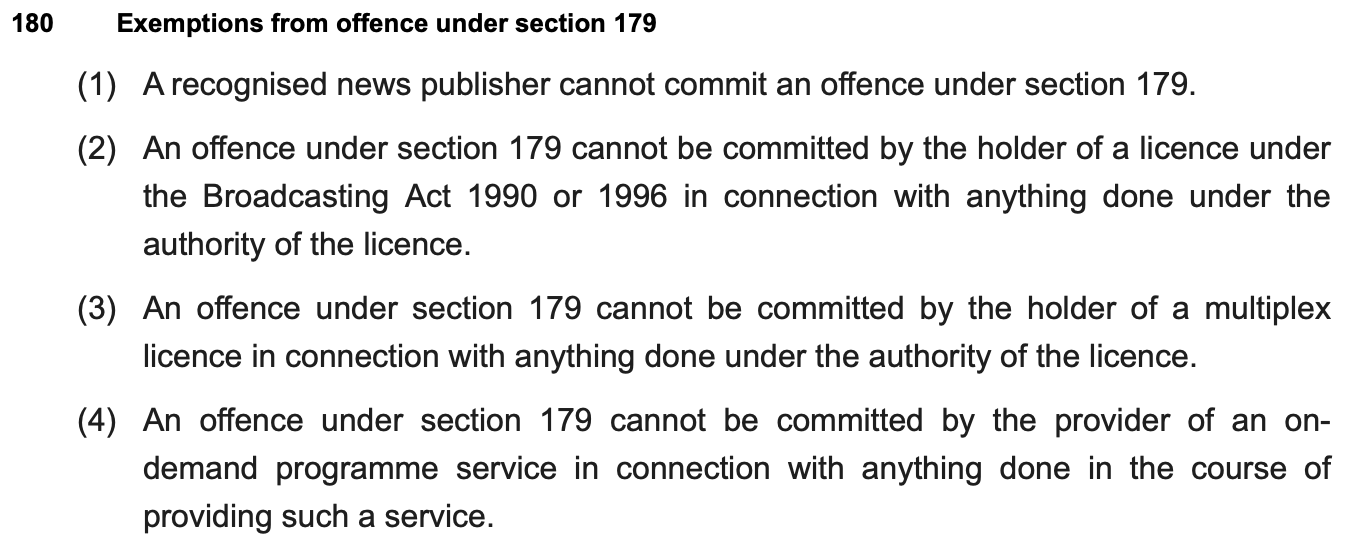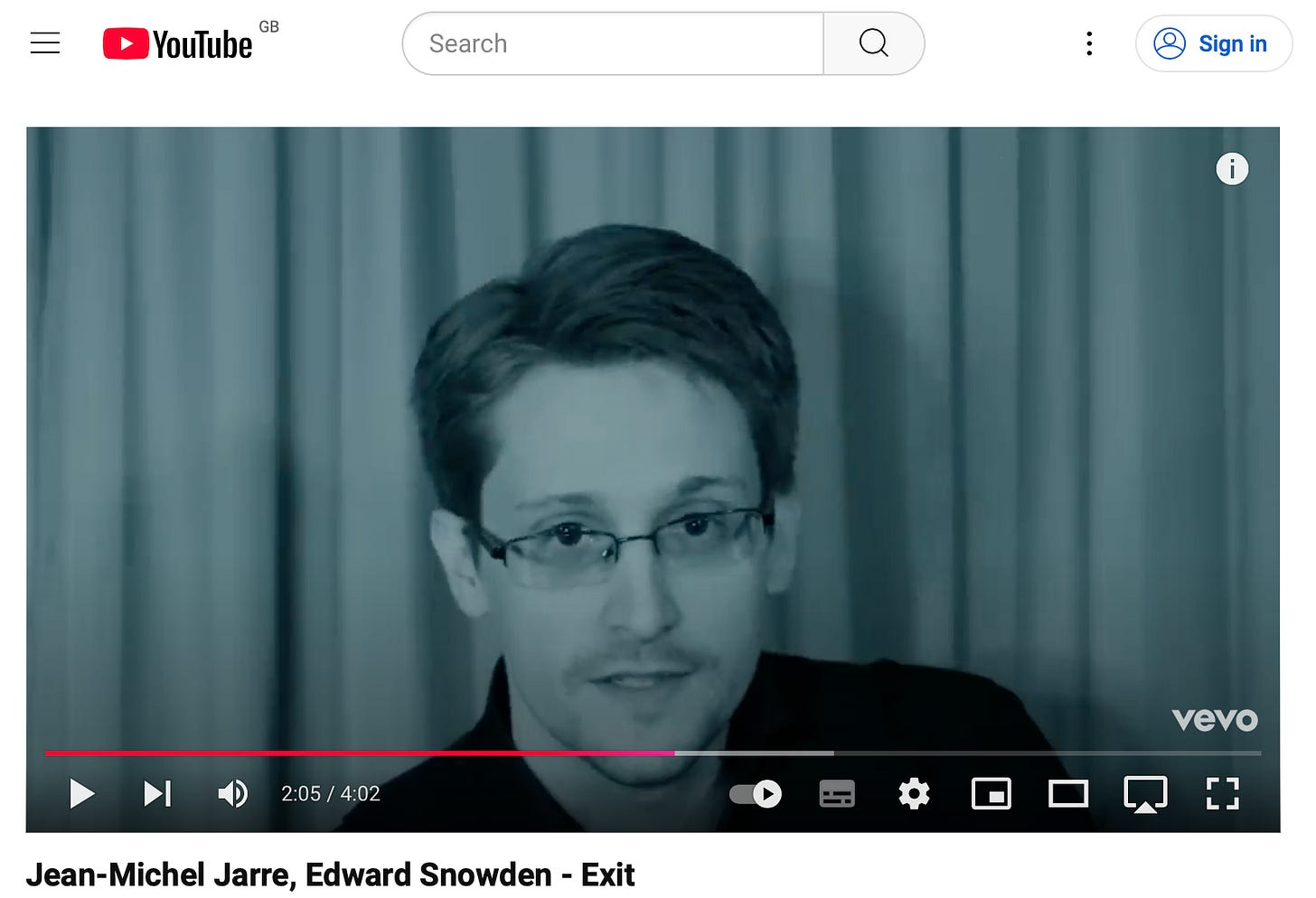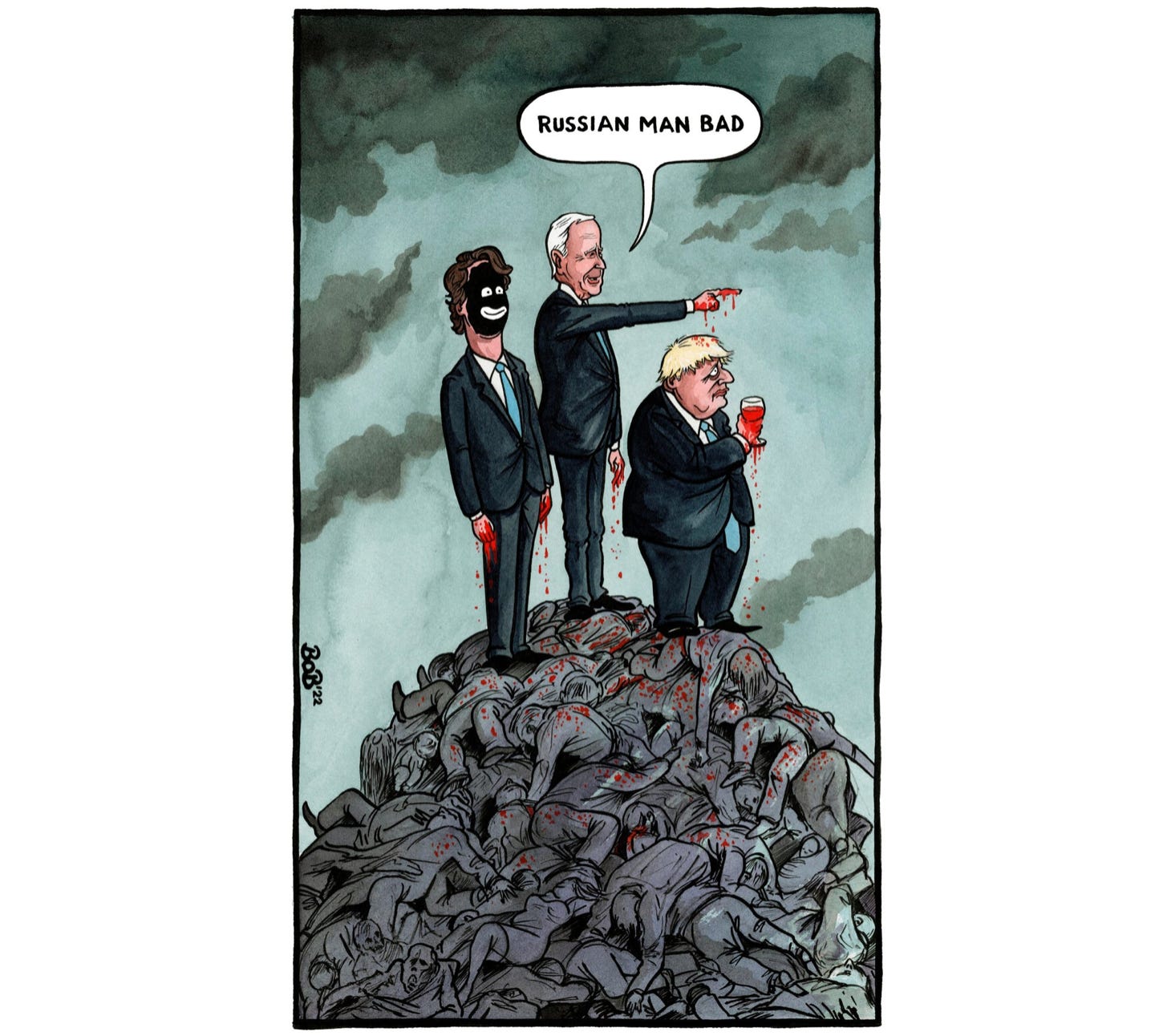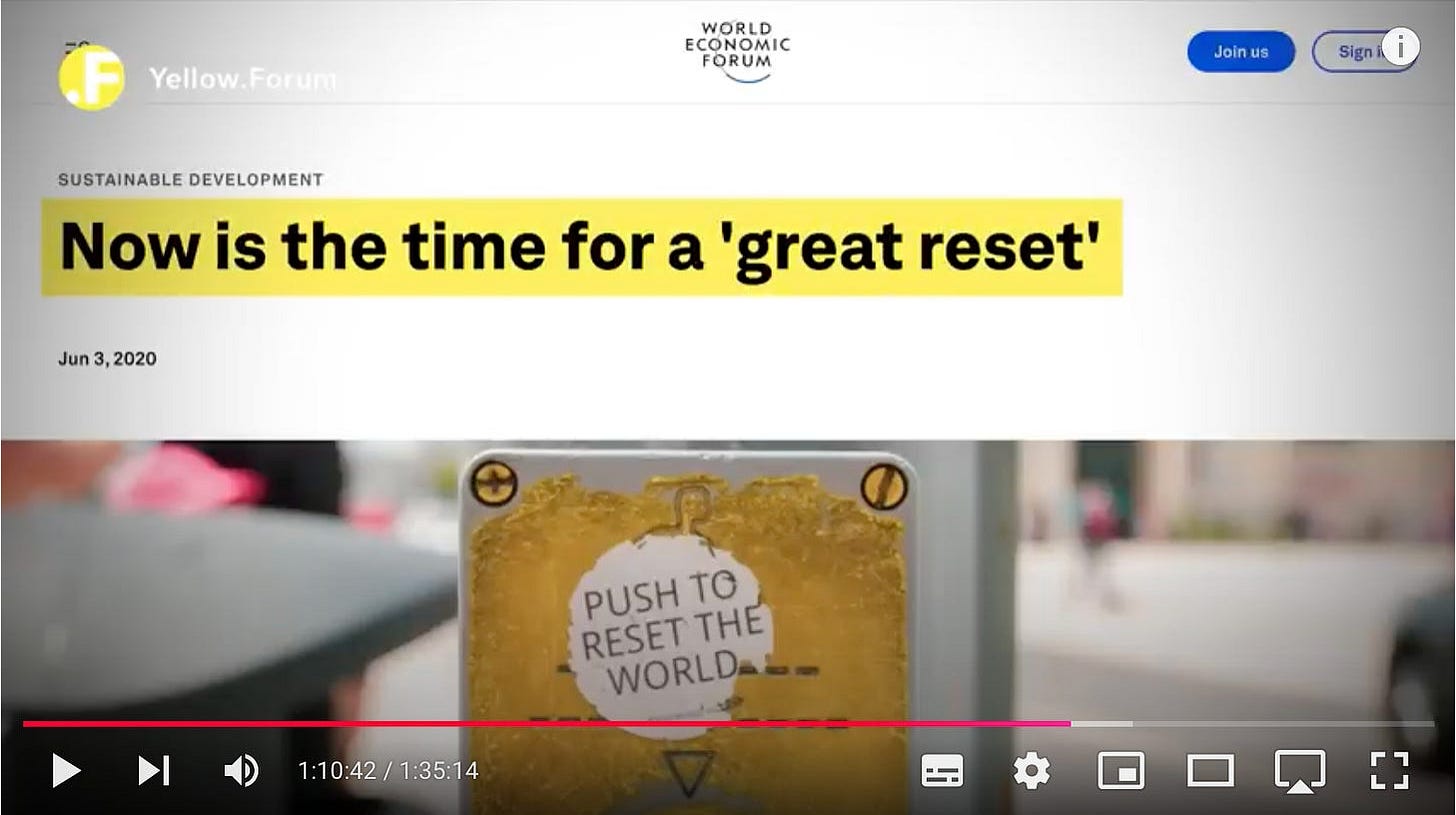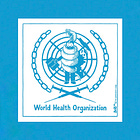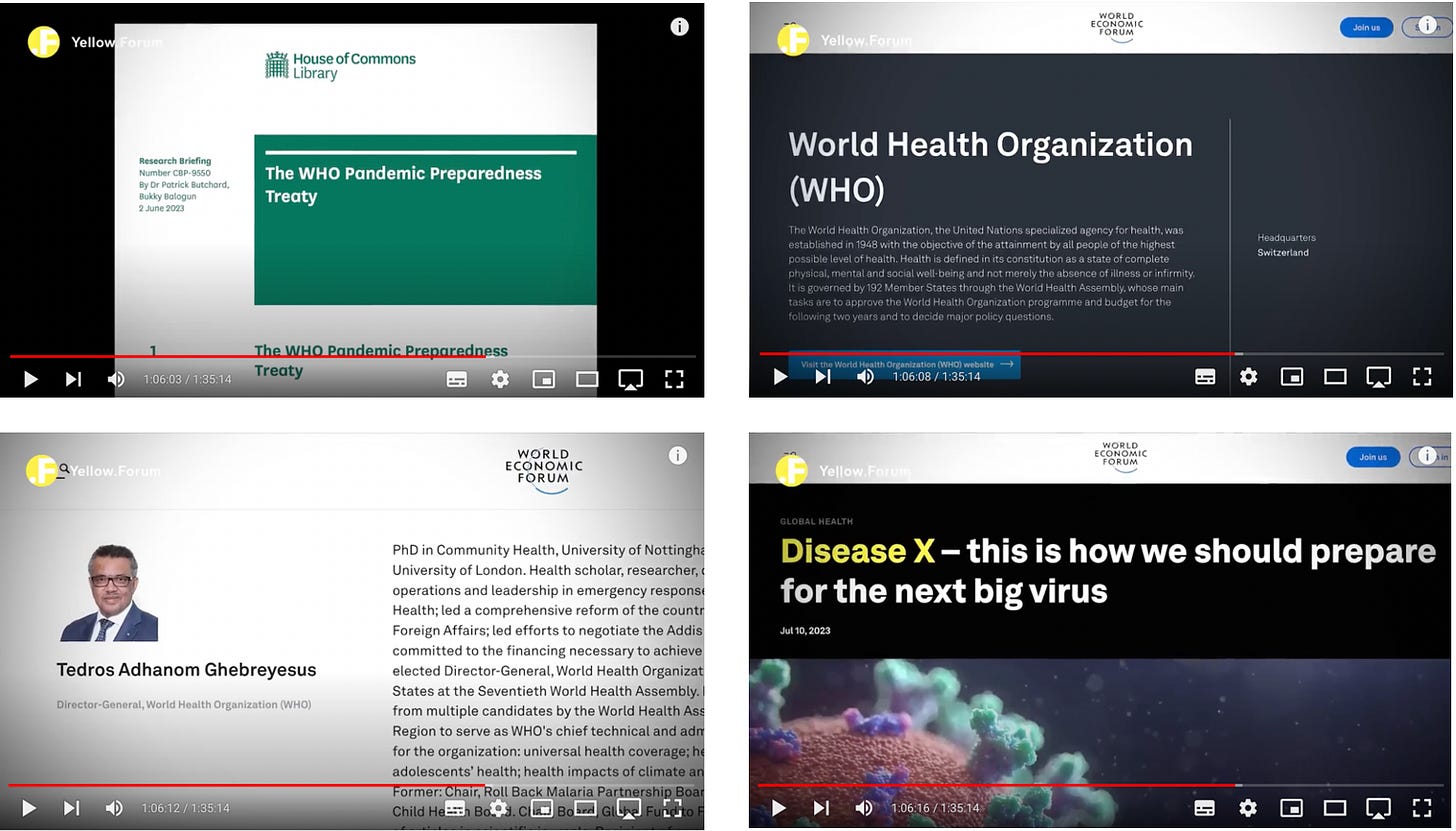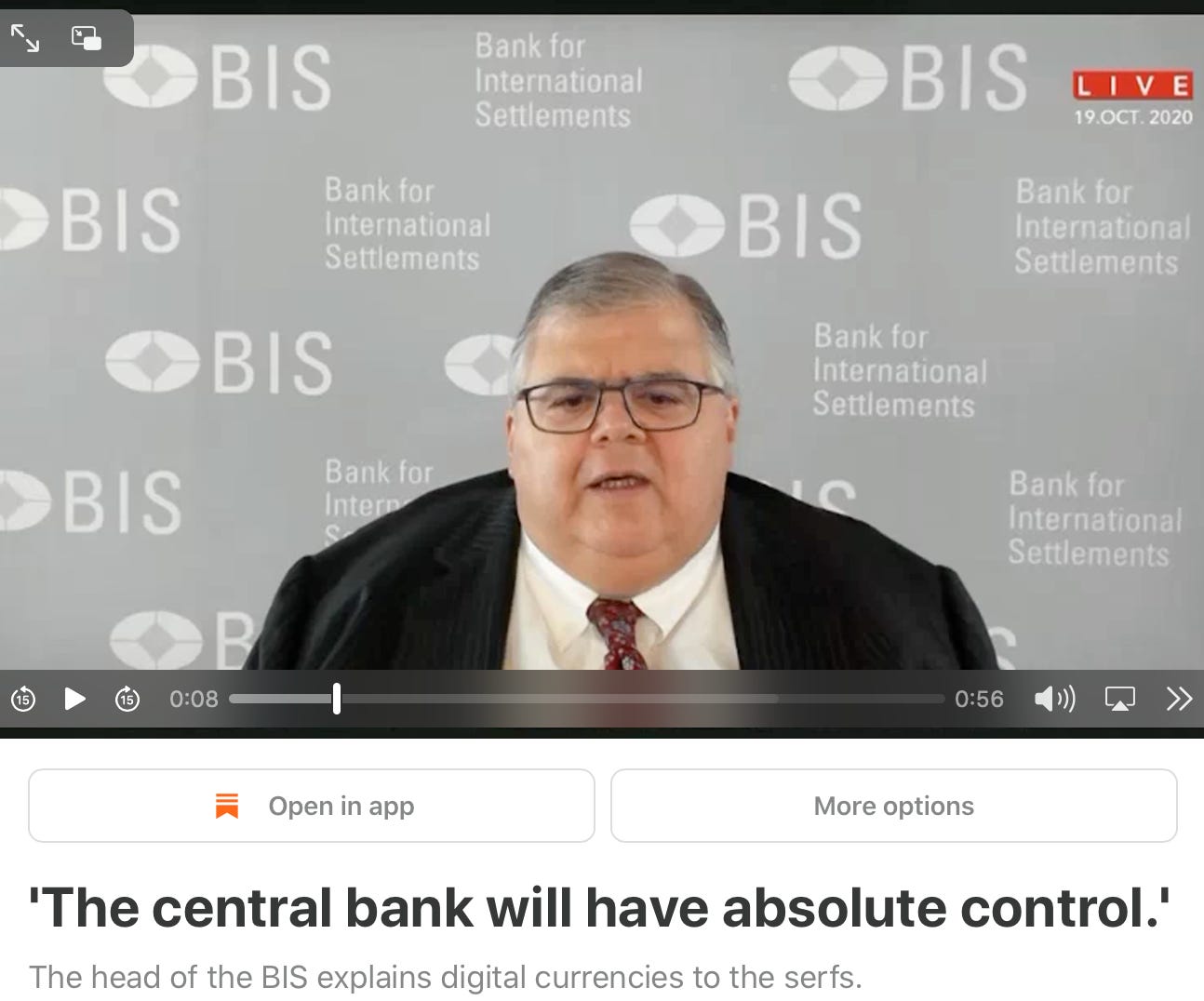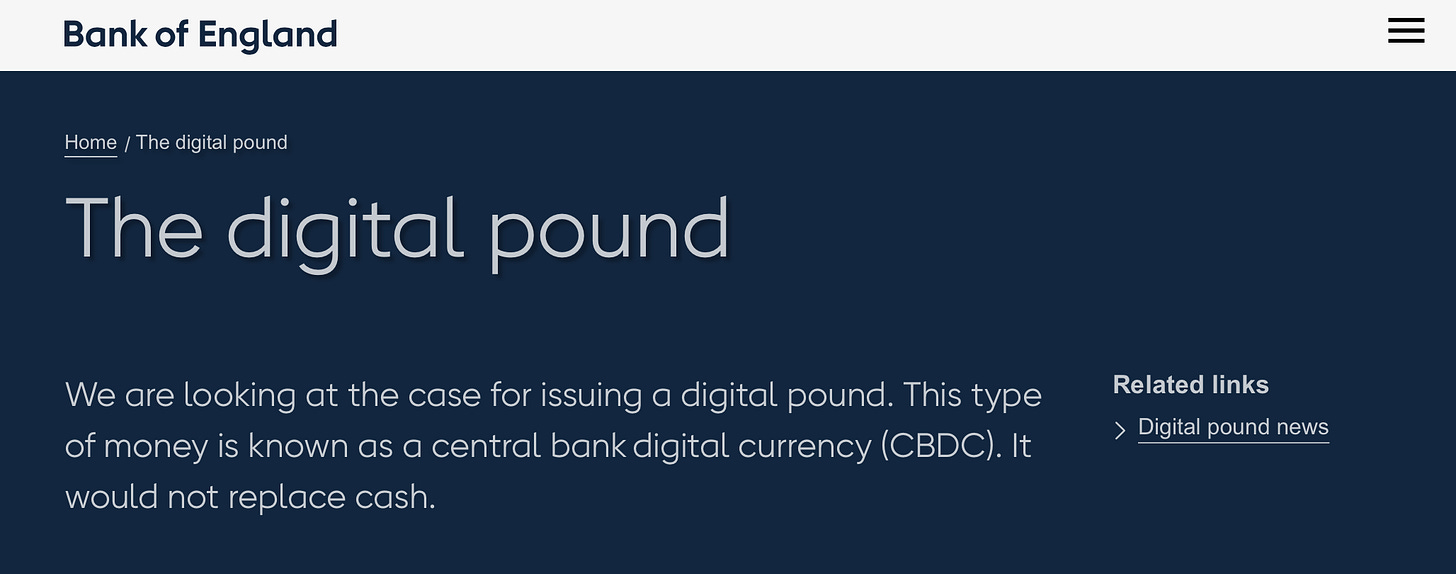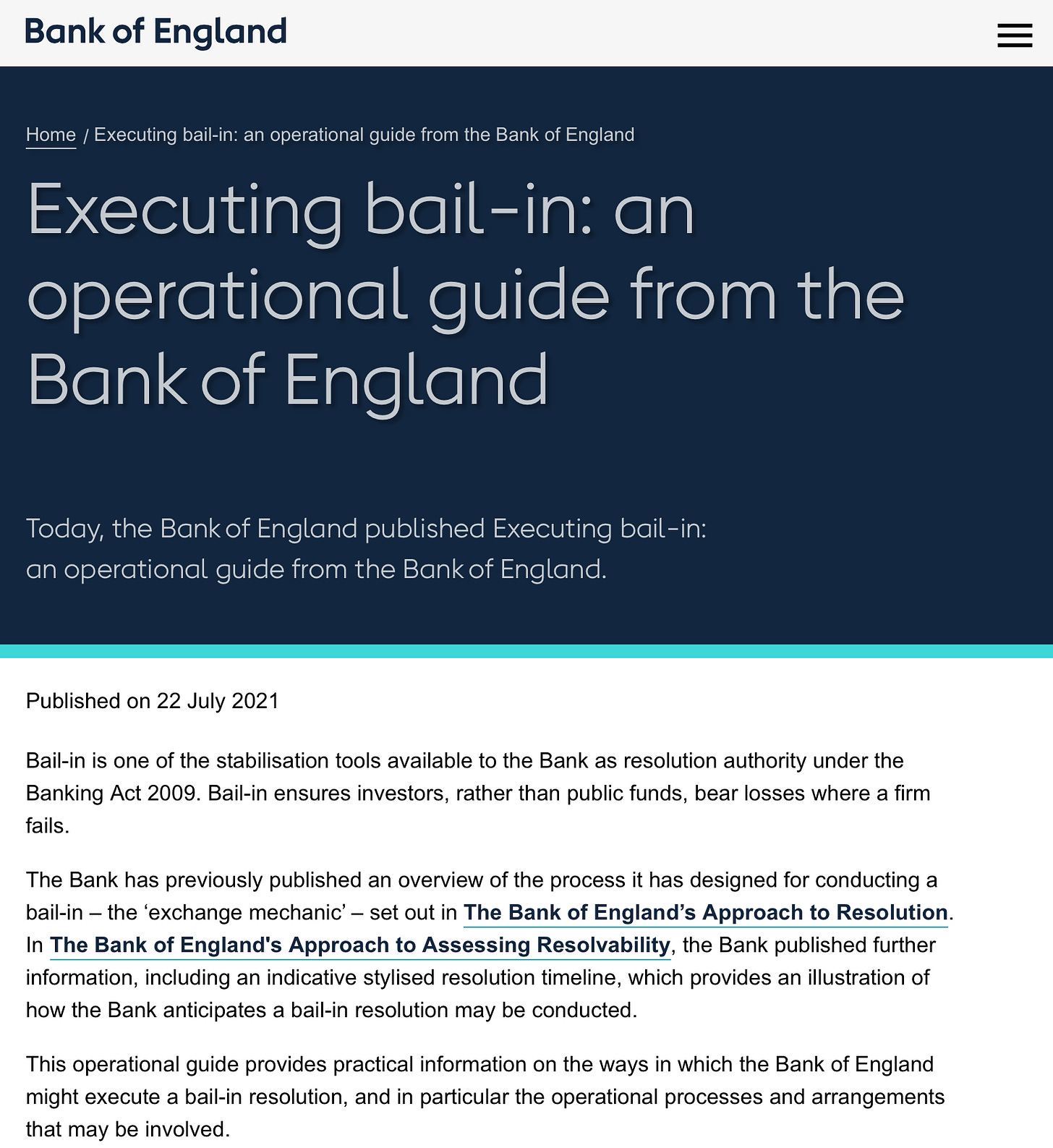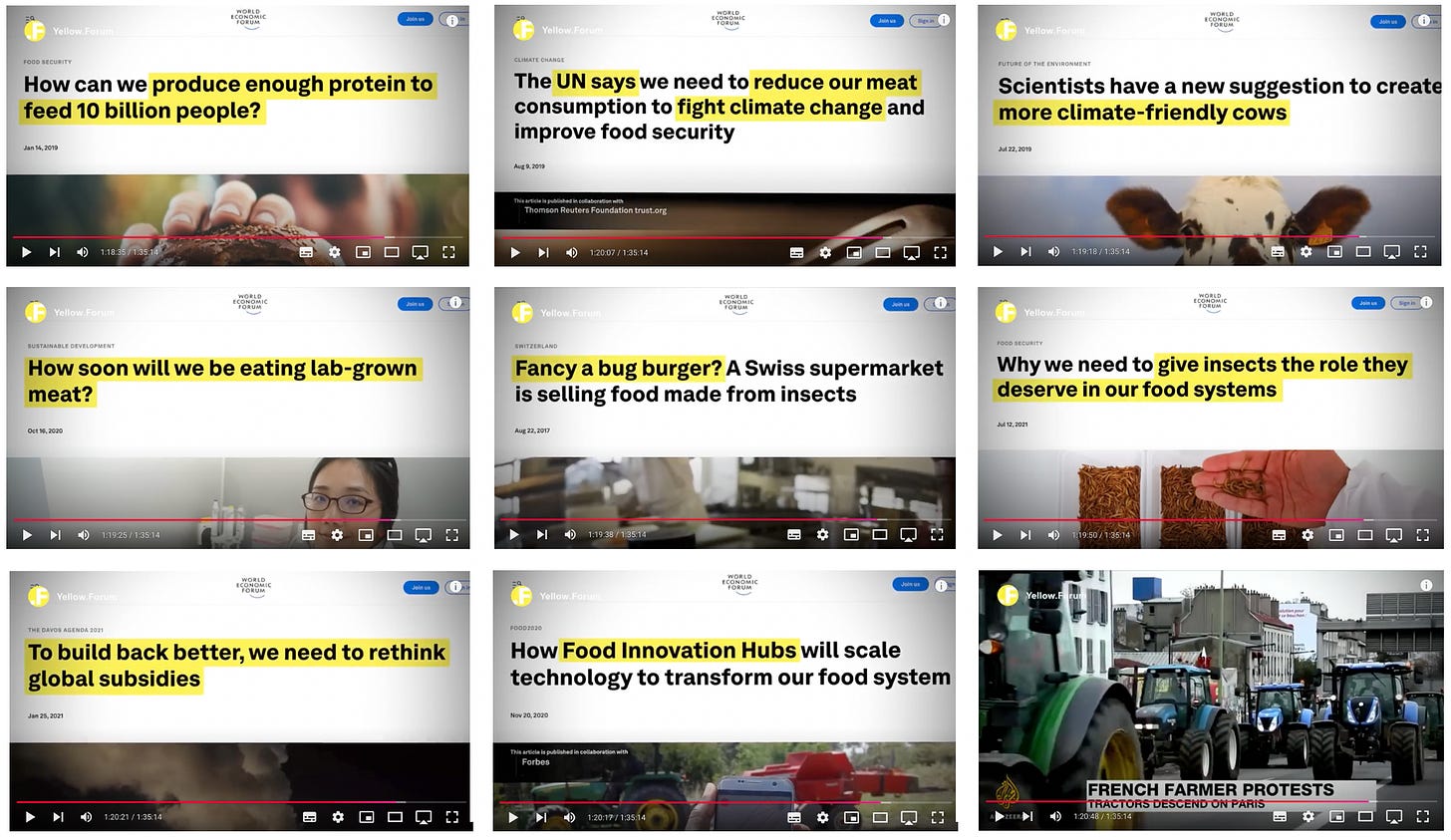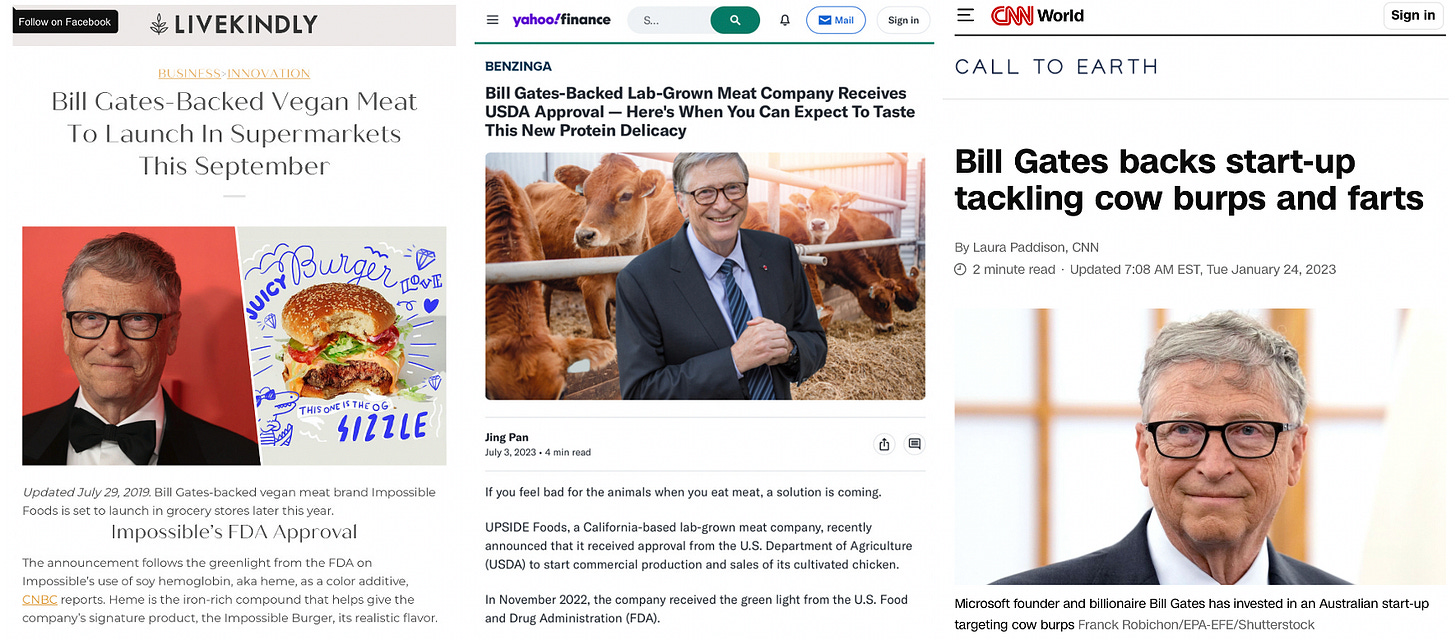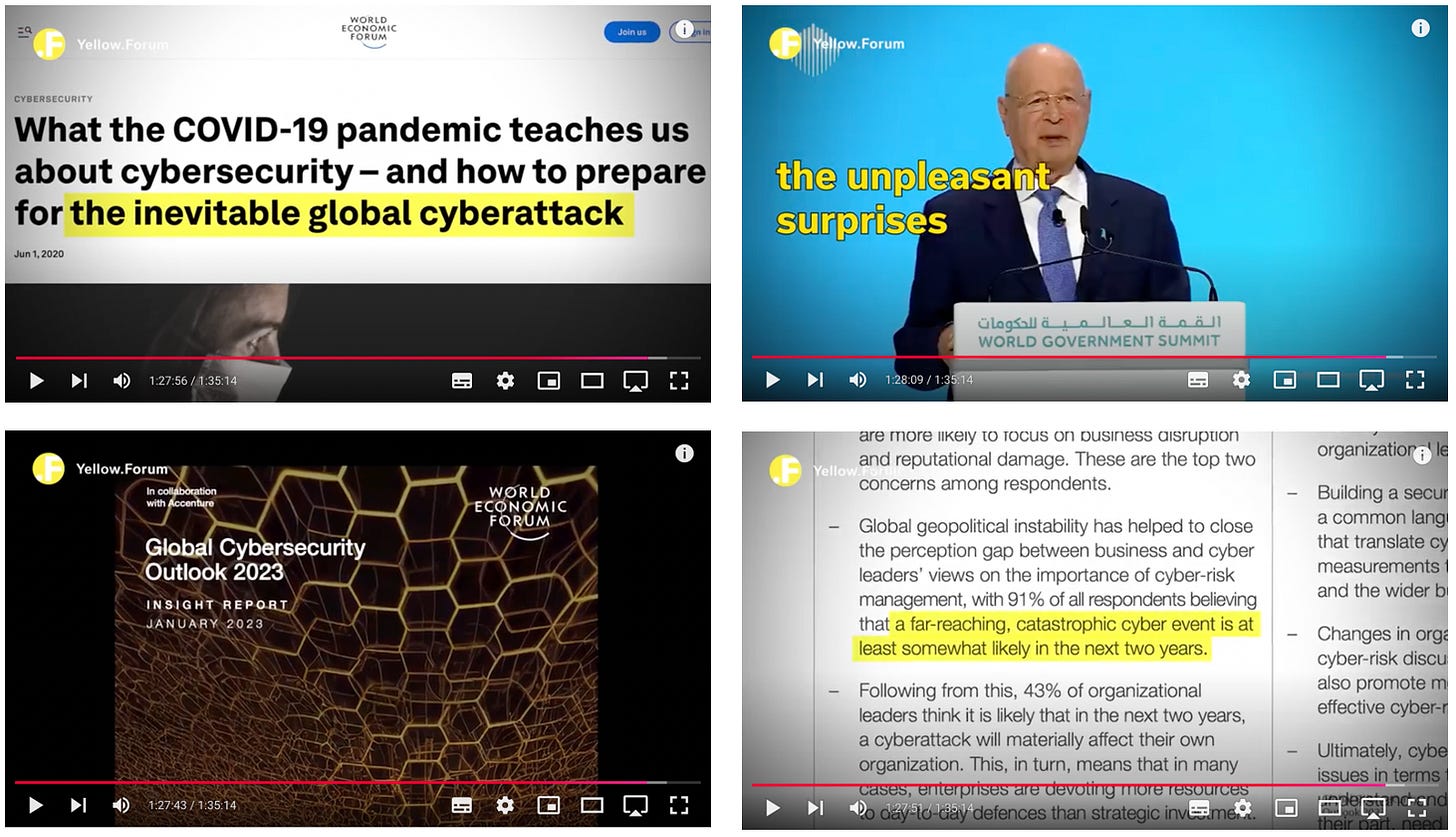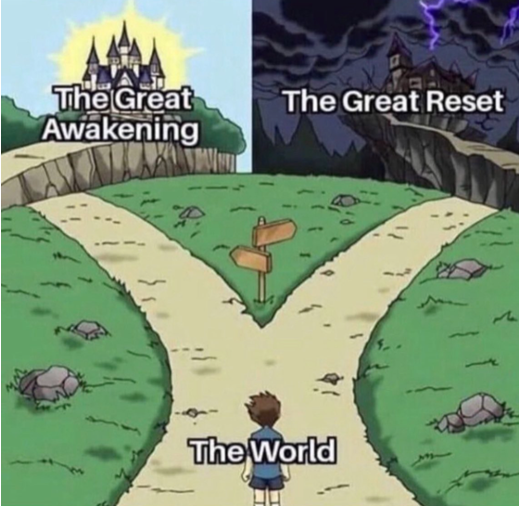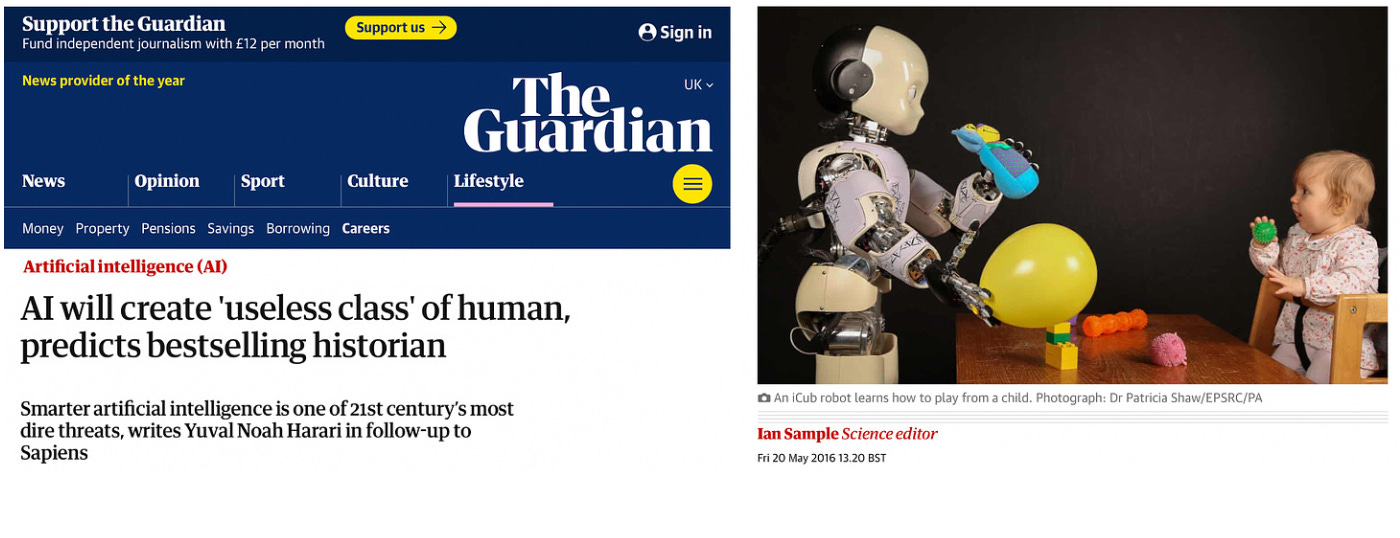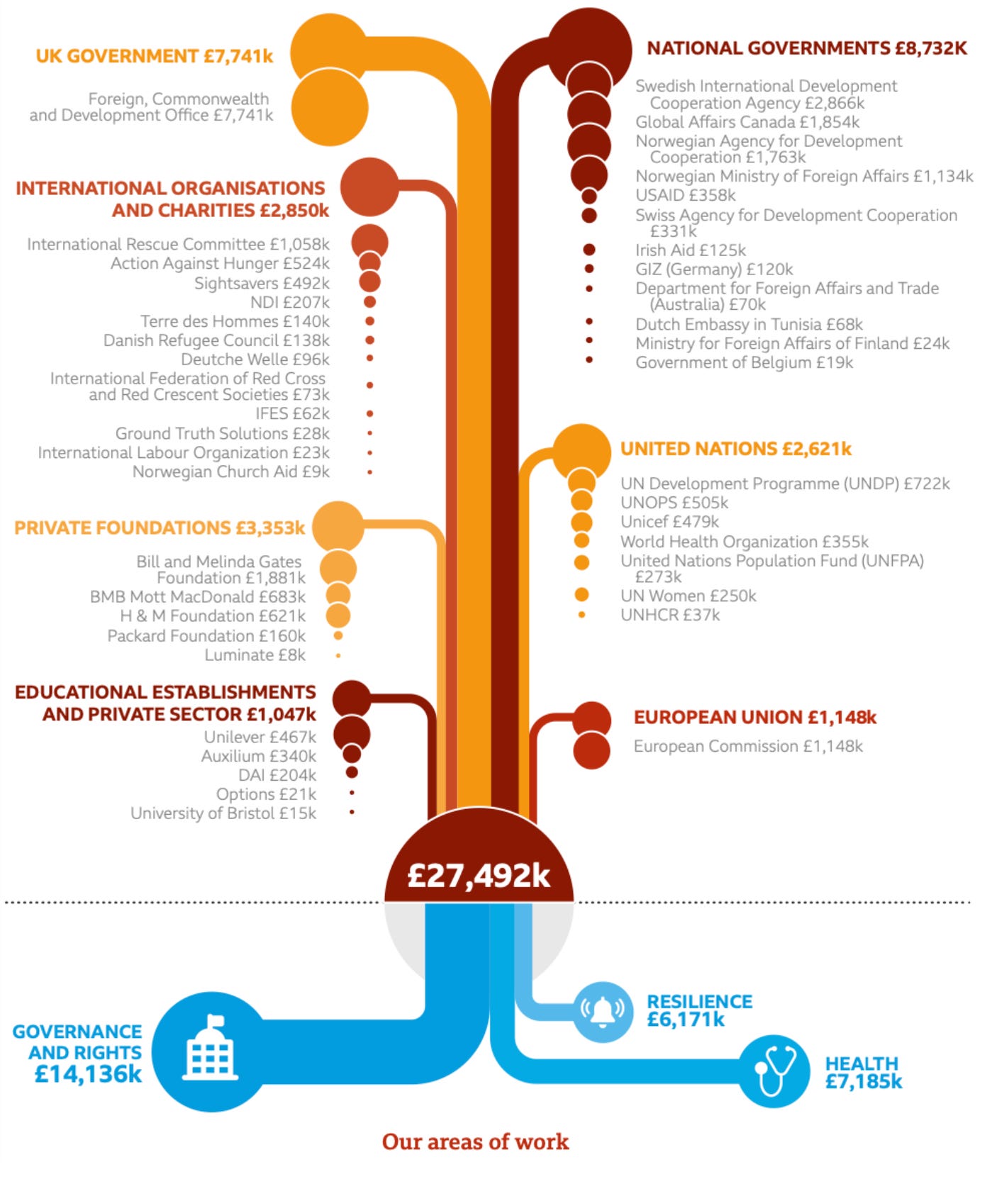Stakeholder Communism? (the whole caboodle)
To what extent are the powers-that-be working to transform Western society into something like that in China?
Dear Church Leaders (and everyone else)
I previously published the material in this article in these four parts, but I thought it worth posting again as a single article, not least for anyone who missed it first time round.
It is the follow-up to this short post…
…featuring the documentary Stakeholder Communism, available here.
The film builds on the four-minute trailer featured in the previous post, and particularly on the case that the powers-that-be are working to transform Western society into something like that in China.
It is important to understand that the push for such a transformation is…
not a hidden conspiracy, but something that the oligarchy is quite open about
…as explained in the documentary.
This article is essentially a written version of the video along with some of my own reflections. It may well be the longest post that I have written. It certainly took me rather longer than I had anticipated, and I almost gave up on it. But I think the material here is sufficiently important to make the time and effort worthwhile. And I have tried to keep the article readable with plenty of visual input throughout.
As you read this post — or watch the video — please can I suggest two things:
Try and put to one side a common assumption
Namely that those who are most powerful and influential in the world have the interests of ordinary people at heart. I am thinking not only of governments here, but of those who influence and even control them, as discussed in these posts…
The notion that those who wield real power in the world are anything like on the side of the masses is perhaps the biggest stumbling block to understanding what is currently going on. Bible phrases such as “the god of this age”,1 “the ruler of the kingdom of the air”2 and “the prince of this world”3 spring to mind.
Take time to reflect before reaching conclusions
I am mindful that I encountered a lot of the content here little by little over a period of months. And I imagine that for someone engaging for the first time with the issues discussed here, the experience might feel overwhelming. It was in that context that I originally put this article out as a series of posts.
But in any case, it is important to take time to reflect before reaching conclusions.
Update — for anyone wanting to watch a video rather than read a transcript, a more recent and shorter version of the documentary can be found here:
1. Introduction
G20 governments are discreetly transitioning us to another political system called stakeholder capitalism. Like the Chinese state capitalism system, stakeholder capitalism places restrictions on the way we run our companies by forcing us to put the interests of a group of stakeholders first.
2. The World Economic Forum
The World Economic Forum (WEF) was established in 1971, and has until recently been fronted by its Founder and Executive Chairman Klaus Schwab, a German economist.
The WEF is an exclusive organisation that includes many of the world’s most influential people. According to Schwab, its members are:
CEOs of multinational companies
Leaders of international organisations and governments
People selected from civil society
The leaders include the heads of state from all G20 countries. The people selected from civil society include many who are influential in the mainstream media.
The WEF was launched with a long-term mission to transition the world to another political system called stakeholder capitalism.
But despite the fact that representatives of our governments and the mainstream media are partners of the WEF, we do not hear much about the transition.
And when I hear that phrase — “stakeholder capitalism” — I can’t help but recall how socialist National Socialism (Nazism) was. And how Democratic the German Democratic Republic was.
But in any case, according to Schwab:
…stakeholder capitalism is [in the 2020s] finally becoming mainstream
3. Stakeholder Capitalism
In his blog and book (published in 2021)…
…Schwab presents stakeholder capitalism as a blend of:
shareholder capitalism (as practised in the West)
state capitalism (as practised in China)
And makes the case that:
we should move to a system of “stakeholder capitalism”
But in practice, stakeholder capitalism primarily shows characteristics of state capitalism. i.e. the Chinese system.
Though instead of the state taking control, stakeholder capitalism provides authority to a conglomerate of WEF members drawn from:
governments — of countries, states, and local communities
civil society — from unions to NGOs, from schools and universities to action groups
companies — i.e. the private sector, whether freelancers or large multinational companies
the international community — consisting of international organisations such as the UN as well as regional organisations such as the European Union or ASEAN
The WEF has a large operation in China.
And Schwab makes no secret of his admiration for the Communist system:
I respect China’s achievements which are tremendous over the last… 40 years. I think it’s a role model for many countries. The Chinese model is certainly a very attractive model for quite a number of countries.
Curiously, the link to this WEF web page (found e.g. in a list here) featured in the documentary…
…no longer works…4
…but it has been archived on the Wayback Machine.
4. An “equitable, inclusive and sustainable approach”
Introduction
The WEF advocates an equitable, inclusive and sustainable approach:
And it has been pushing “inclusiveness” — empowering people who are allegedly “oppressed” — for some time…
…although the pace seemed to pick up in the covid era:
There are plenty more where those came from:
But irrespective of whether “inclusiveness” is a good thing or not, there is some important historical context.
“Inclusiveness” and propaganda
Inclusive propaganda was the primary weapon used in China’s Cultural Revolution (1966-1976) — “a sociopolitical movement in China that began in 1966 with Mao Zedong, then the leader of the Chinese Communist Party, denouncing the old capitalistic and traditional ways of Chinese life.”
Mao indoctrinated young working-class Chinese to believe they were oppressed by the capitalists, and encouraged them to rise up and overturn capitalism in favour of Communism — a “more inclusive” system.
The documentary features testimony from those who grew up in China during that time:
I just want to let the American people know that what’s going on in our school and in our country is really a replay of the Cultural Revolution in China… I want people to see there are similarities and [that the] similarities are terrifying
The WEF has been quite open about the need for Marxism:
But there is a difference between what was done in 20th century China and what the WEF is doing now. Instead of targeting the working class, Schwab and his “stakeholders” (including the mainstream media) are indoctrinating the younger generation to believe that minority groups are oppressed by our capitalist system in terms of race, sexuality and gender.
I am reminded of BBC News website articles such as these — from the last six weeks or so at the time of writing…
And the results of a DuckDuckGo search for “transgender BBC” (there are pages and pages like this):
The indoctrination now starts very early:
Here are the results of a search for “drag queens uk schools”:
“Sustainability” and the “climate crisis”
According Schwab, the way forward is:
Decarbonisation of the economy, to protect us against… “an environmental virus”
Hence WEF articles like this one:
I am reminded of this graphic from the UK Government funded FIRES project (more discussion here)…
…featured in this pair of articles on the strategy of “Problem, Reaction, Solution”:
And of the promotion of Greta Thunberg, a child being used to push the “climate crisis” narrative in emotionally manipulative manner:
“I want you to panic. I want you to feel the fear I feel every day.”
She comes across very differently when she is off-script though…
…and the whole “climate crisis” narrative, which is rarely seriously challenged in the mainstream media, looks rather dubious on closer examination.
Plus, as with covid rules, the oligarchy do not practise what they preach:
Meanwhile, the mainstream media relentlessly promotes climate alarmism, and staged stunts.
This is part of a strategy designed make the people demand a ban on fossil fuels, and the transition to another economic system — stakeholder capitalism — which is, in the colourful words of one commentator, “Communism in drag”, rebranded and sold under the banner of People, Planet and Progress.
5. A social credit system for companies
ESG: Environmental, Social, and Governance
Environmental Social Governance (ESG) — essentially a corporate social credit score — is being used to facilitate the transition to stakeholder capitalism.
As Schwab puts it:
The stakeholder concept — and particularly the ESGs — are a very important part of getting business involved.
Environmental: complying with “sustainable” climate change restrictions
Social: complying with “inclusive” policies, requiring employment of more “oppressed” people and supporting social justice movements
Governance: i.e. corporate governance by “stakeholders” who govern us
Big companies
In order to receive a good score, big companies have been hiring “ambassadors” from “oppressed” groups for their advertising campaigns:
And companies such as BlackRock, the largest money management firm in the world, focus their investments in companies with good ESG scores:
In 2019, Larry Fink, the co-founder, chairman and CEO of BlackRock was appointed as a WEF trustee:
He is on record as stating that:
At Black Rock we are forcing behaviours… if you don’t force behaviours — whether it’s gender or race — you’re going to be impacted, and we’re going to have to force change
By starving non-compliant companies of funding, stakeholders such as BlackRock are forcing companies to adopt stakeholder capitalism.
One of the few prominent figures pushing back is Elon Musk:
That’s right, this Elon Musk:
Hmm.
If the WEF are setting themselves up as a one-world government…
…then Musk seems to be styling himself as Leader of the Opposition!?
All companies
According to this 2022 WEF white paper, in the context of “sustainability reporting requirements” all companies are being “[encouraged] to join the WEF’s Stakeholder Capitalism Metrics initiative”:
This has been led by the UK and former Prime Minister Rishi Sunak:
Incidentally, the above white paper was not easy to find. I searched this phrase from it…
“As regulators look set to mandate separate sustainability reporting requirements”
…but I didn’t find it on Google5 (or DuckDuckGo, Mojeek, Brave or Freespoke) — only Yandex(!) With the phrase in inverted commas, Yandex found the document (and only the document). Google returned no results.
This pattern is similar to that described in this post:
6. A social credit system for individuals
The next section describes the Chinese social credit system:
The state will go over every detail of a person’s life with a fine-tooth comb: financial situation. Spending habits, career, even behaviour on social media. Criticising the government online is a no-no.
As with the ESG score, the Chinese social credit system forces compliance by punishing people who break the government’s rules.
People considered untrustworthy by the government have their details — even their addresses — plastered across screens e.g. at cinemas.
People with a low social credit score are banned from travelling.
The social credit score is used coercively to influence behaviour. According to this report, “if you’re a soldier in China, applying to leave the army is likely to leave a black mark on your social credit score.”
Investigative journalist Liu Hu, who was uncovering corruption among high-profile Chinese Communist Party (CCP) members, comments:
Once you’re blacklisted, you can no longer get a bank loan, start a business, buy an apartment, or even send your children to a private school
There is also the context of the deaths of tens of millions of people in China under Communist governments during the past century:
Between 1960 and 1962, 30 million people died from starvation during the so-called “Great Leap Forward”. During China’s 10-year shift to Communism from 1966, Mau indoctrinated the young working class to rise up and attack anyone who favoured capitalism, resulting in millions murdered.
In 1989, thousands of human rights protesters were massacred by tanks and heavily armed troops in Tiananmen Square.
The oppression continues today. Chinese President Xi Jinping is leading an Orwellian campaign of control and intimidation using the media to brainwash citizens. Journalists are being arrested, and newspapers forced to censor or close down.
Religion is a particular target:
Due to the Marxist ideology opposing all forms of religion, over one million Uyghurs and other Chinese Muslims are currently being tortured — and often killed — in re-education camps designed to erase religion throughout China.
A BBC video states that:
Lessons are watched over by police carrying shields, batons and handcuffs. And… documents describe the response to students who attempt to escape — if warning shots are ignored, the order is clear: shoot them dead.
A CNN report features Jiang, a Chinese whistleblower who exposed the torture of Chinese prisoners:
Men and women… kick them, beat them bruised and swollen, knock their heads on the radiator. Police would step on the suspect’s face and tell him to confess…
And that is far from the worst of it, either in the Yellow Forum video or in the original CNN exposé from 2021.
For many Chinese prisoners of conscience, torture and the risk of being murdered is more preferable than the punishment for confessing to the crime of having a religious belief. According to the video, one man was sentenced to 16 years in jail just for growing a beard. Many others have been jailed for listening to illegal religious lectures. And their children are sent to state-run boarding schools built alongside the detention camps.
Remarkably, one former victim testifies that he can forgive the men who jailed and tortured him:
I don’t hate them, because all of them [are victims] of that system
In Communist China, it seems it has been relatively straightforward for the State to introduce social credit. In the West, such a system would meet with considerable opposition. And so it appears that the WEF strategy is to bring in social credit (via ESG) for big companies first, and then to extend it — first to all companies, and then, we may reasonably presume, to individuals.
7. The jobs reset
Some important context for what we are currently seeing is what Schwab describes as “the fourth industrial revolution” in another of his books:
…artificial intelligence, the Internet of Things, cloud-computing, advanced robotics and many other [things]… the Fourth Industrial Revolution has become a reality…
…it’s coming like a tsunami, it will be overwhelming to see how fast the change will happen in an exponential speed… drones, robots, artificial intelligence, this technological revolution changes how we consume how we produce how we organise our supply chains. It changes us. Just think of sensors planted into our brains…
…I’m convinced that we will destroy — unfortunately — a lot of employment. Just think of… self-guided cars and all the drivers losing their jobs…
Our life in 10 years from now will be completely different and [he] who masters those technologies will be the master of the world.
I detect more than a hint of the spirit of Babel as discussed in this recent post, which is (to my mind) a contender for the most important piece I have written in terms of beginning to understand where we are:
The fear is that if/when artificial intelligence (AI) takes many jobs, wealth will shift to the corporate stakeholders who own the machines…
…making many people desperate, dependent and more vulnerable to tyranny.
And that there will be an erosion of the lower middle class, which will eventually affect most of us — and particularly younger people.
It is worth bearing in mind that previous industrial revolutions that resulted in jobs being lost also led to new ones being created, and it remains to be seen what will happen in the “fourth industrial revolution” with the advent of artificial intelligence (AI). But there are certainly grounds for concern.
What is more concerning though is that the changes have been accelerated in the last few years, starting in 2020, when WEF-affiliated politicians…
…announced the closure of “non-essential” businesses under the pretext of protecting their citizens from a supposedly deadly respiratory virus…
…while large corporations were allowed to continue trading much as usual, resulting in the permanent closure of many small businesses.
This would have been bad enough if there had actually been a substantial risk to health. But a brief, sober and objective look at the official figures from 2020 tells us that deaths were no higher than normal prior to the introduction of “covid measures”, despite the fact that covid had been circulating for at least two months.
The inconvenient truth is that the death rate increased only after the first lockdown began and the “covid response” began. When people panicked. When people were terrified by their governments. When people were told, “Don’t come into hospital if you can help it.”
Moreover, it seems beyond doubt from US life insurance data that many of the excess deaths from late 2020 onwards were caused not by a virus but by the injections that were meant to protect people from that virus (which in any case hadn’t actually caused more people to die when it was circulating prior to “covid measures” being introduced):
The “covid measures” resulted in an unprecedented transfer of wealth from the poor to the rich. Here is an Oxfam report from 2023:
In 2020 the WEF published this document, The Future of Jobs Report:
Its Executive Summary (p5) begins by saying that:
The COVID-19 pandemic-induced lockdowns and related global recession of 2020 have created a highly uncertain outlook for the labour market and accelerated the arrival of the future of work.
And according to section 1.1 (p9):
In economies riddled with inequalities and sluggish adaptation to the demands of the new world of work, there is an ever-larger need for a ‘Great Reset’, which can herald opportunities for economic prosperity and societal progress through good jobs. [Emphasis added]
And four months after the announcement of covid lockdowns in March, Klaus Schwab’s book COVID-19: The Great Reset (co-authored with Thierry Malleret) was launched:
I wonder when the book was actually written.
In June 2021, the WEF held “The Jobs Reset Summit”:
Welcome back to the Great Reset on Day 1 of The Jobs Reset Summit which is being held as covid-19 is not only wiping out jobs but also changing the way millions of us work…
And around the same time the WEF’s Managing Director Saadia Zahidi declared a jobs crisis on The Great Reset podcast:
In the last few years I think we’ve seen the growing threat of technology to jobs. By 2025, humans and machines will be at par in terms of how those tasks are being divided. About half of their employees will need reskilling. In every single job there is the expectation that at least 40% of the core skills in that job are going to change. Now that is a massive number for most of us to absorb. It basically means that roughly half of what we’re doing is going to look different in terms of the tasks that we do day to day.
In 2023, as they were still benefiting from the lockdowns, the stakeholders discreetly published the Future of Jobs Report:
According to the Executive Summary:
The COVID-19 pandemic-induced lockdowns and related global recession of 2020 have created a highly uncertain outlook for the labour market and accelerated the arrival of the future of work.
That same Executive Summary recommends, among other things, that:
Companies need to invest in better metrics of human and social capital through adoption of environmental, social and governance (ESG) metrics and matched with renewed measures of human capital accounting. A significant number of business leaders understand that reskilling employees, particularly in industry coalitions and in public-private collaborations, is both cost-effective and has significant mid- to long-term dividends — not only for their enterprise but also for the benefit of society more broadly. Companies hope to internally redeploy nearly 50% of workers displaced by technological automation and augmentation, as opposed to making wider use of layoffs and automation-based labour savings as a core workforce strategy. [Emphasis added]
The inconvenient truth is that the “jobs reset” was significantly accelerated by the “covid measures” that were implemented in the context of people dying at a rate that was no different than any other year.
Back to basics: a brief, sober and objective look at what was actually happening in early 2020
Dear Church Leaders (and everyone else)
8. The Great Reset
As AI — in the form of computers and robots — takes over more and more jobs, it looks likely that the economy will shrink and ultimately collapse as the number of workers (taxpayers) reduces and the number out of work (claiming benefits) increases.
A “Great Reset” of capitalism will then be required:
According to then-Prince Charles (pictured here with Klaus Schwab in 19926 and 2020)…
…speaking at the WEF’s 50th anniversary in 2020:
In order to secure our future and to prosper we need to evolve our economic model… It is my greatest possible hope that you will join me this year in accelerating the transition to sustainable markets and a Net Zero economy…
As the Royals mustn’t engage in politics, Charles speaks cryptically using a stakeholder capitalism slogan instead (on three separate occasions):
People and planet…
Charles shows implicit support for ESG…
An increasing number of corporations are adopting ESG methodologies… There are now growing calls from financial institutions and companies alike to make disclosure mandatory…
…and his speech was made into a promotional video entitled The Great Reset (below left) and another video (below right, transcript below) was also released in 2020:
We have a golden opportunity to seize something good from this crisis. Its unprecedented shockwaves may well make people more receptive to big visions of change… global crises like pandemics and climate change know no borders and highlight just how interdependent we are as one people sharing one planet.
Over the past month or so, despite the ongoing crisis, I’ve been encouraged to see the growing calls for a green recovery. We need only look to the United Nations Secretary General, to the IMF, the EU, the… Petersburg Climate Dialogue, the Canadian government, the COP26 Universities Network and business leaders around the world to see this.
And as we move from rescue to recovery therefore we have a unique but rapidly shrinking window of opportunity to learn lessons and reset ourselves on a more sustainable path. It is an opportunity we have never had before and may never have again. So we must use all the levers we have at our disposal knowing that each and every one of us has a vital role to play… [Emphasis added]
And Charles was not alone in pushing the Great Reset:
9. Another Cultural Revolution?
The Great Reset appears to bear at least some resemblance to China’s decade-long shift to Communism. The 10-year timeframe is a recurrent theme:
In Charles’ words:
…with 2020 being seen as the super-year, kickstarting a decade of action for [you’ve guessed it] people and planet
Fifty or so years in the making, it appears that Schwab’s vision is finally coming to fruition:
The plan is known as Agenda 2030, which will be the theme of a forthcoming post. Like The Great Reset it is an open secret, featuring as it does — and has done since 2017 — on this UK government website:
On the face of it, Agenda 30 sounds appealing. But according to the WEF’s Yuval Noah Harari, who features here in this post…
…saying that:
the biggest question, maybe in economics and politics, of the coming decades will be what to do with all [the] useless people7
…the future could ultimately be rather worse than China’s Cultural Revolution:
If you know enough biology, and you have enough computing power and data, you can know my personality type, my political views, my sexual preferences, my mental weaknesses, my deepest fears and hopes, and you can do that not just to me but to everyone.
Now in the past many tyrants and governments wanted to do it, but nobody had enough computing power and data to hack millions of people. Neither the Gestapo nor the KGB could do it. But soon at least some corporations and governments will be able to systematically hack all the people.
Artificial intelligence could potentially be weaponised to enforce compliance:
The top-right, bottom-left and bottom-right snapshots above are from China.
In Harari’s words:
If this power falls into the hands of a 21st Century Stalin, the result will be the worst totalitarian regime in human history. And we already have a number of applicants for the job of 21st Century Stalin.
And some those “applicants” can be found in the West.
10. Build back better
On 3rd April 2020, a matter of days after “covid measures” had been introduced, the WEF put out this article on its website:
We must all step up to respond to the challenges posed by COVID-19.
We must come together with compassion and humility.
We can build back better by ensuring long-term stimulus increases resilience and tackles the threat of climate change.
The COVID-19 pandemic is a global emergency, bringing devastation to millions around the world, impacting lives and jobs, and grinding much of the global economy to a halt. It’s a crisis that has shown our vulnerability and confirmed our under-estimation of the probability and exponential nature of systemic risks. It calls on all of us to come together with compassion and humility.
But remember that, as noted earlier, prior to the introduction of the “covid measures”, the number of people dying in the UK (and elsewhere) was, according to the ONS figures… the same as usual.
Almost overnight, the phrase “build back better” became much more prominent…
…not least on the lips of politicians (among others):
It feels like a form of globalist bingo. All the usual suspects. Plus one or two more!
In the US there was even a song (full lyrics here):
Build Back Better was — and apparently still is — UK government policy…
…though I don’t recall much discussion of it during any election campaign.
And the aspiration appears to be “Build Back Better” all over the world. In 2021, “to meet the world’s biggest challenges”, the G7 leaders launched the Build Back Better World Partnership:
On the face of it, such initiatives might sound appealing. But it appears that, as the narrator of the video puts it:
While [people in the West] lose their homes, the stakeholders are spending taxpayers’ money on building the infrastructure required to enslave everyone on the planet
11. Young Global Leaders
In the words of Klaus Schwab:
When I mention our names like Mrs Merkel, even Vladimir Putin and so on, they all have been Young Global Leaders of the World Economic Forum
He is quite open about it:
What we are very proud… the young generation like Prime Minister Trudeau… the President of Argentina and so on… that we penetrate the cabinets…
…[creating] a proactive stakeholder community of the world’s next-generation leaders to inform and influence decision-making and mobilize transformation
…I was at a reception for Prime Minister Trudeau and I know that half of this Cabinet or even more are actually Young Global Leaders of the World Economic Forum. And it’s true in France now… I’m here with the President…
By way of an example of the extent of the influence of the WEF’s agenda, here are the G20 leaders meeting under the banner of the stakeholder capitalism slogan of “People Planet Prosperity” in 2021:
Schwab says that the presence of such people:
…is [usually] the result of… a longer friendship in certain cases. For example, Mrs Merkel… there was a young member from Eastern Germany appointed to the Cabinet as Environmental Minister. And we made her a Young Global Leader… I could go on and on…
But the Young Global Leaders are not just found in politics:
They are CEO’s of Fortune 500 corporations, in royal houses, in leading NGO’s and national non-profits, public figures in civil society, sports personalities, and more.
Here is the WEF webpage where anyone can check out who they are. And here is a list of past Young Global Leaders.
In the words of the video:
They include executives at Virgin, Dell, Microsoft, Blackstone, J.P. Morgan, General Electric, Reuters, EMI Music, Ben and Jerry’s, Ford, Siemens, Puma, Motorola, Yahoo, Sony Pictures, Amazon, Hyundai, Avon, Estée Lauder, Barclays, Lehman Brothers, Hewlett Packard, eBay, Goldman Sachs, McDonald’s, Alibaba, Google, Nestlé, Viacom, Salesforce, Skype, Nokia, Avis, Expedia, McKinsey, YouTube, TikTok, Facebook and Meta, Open AI, BlackRock, Pfizer, Wikipedia, Black Lives Matter, PayPal, Uber Eats and more
12. Media indoctrination
Corporate media
I guess some readers might be wondering why, if this is really all happening as described, why we are not hearing more about it from the mainstream media.
One clue is the fact that most media companies are owned or run by a World Economic Forum stakeholder:
The BBC
And while the BBC as a whole gets much of its funding from licence fee payers, the number of those has been falling in recent years (p8 of the report at the link):
Perhaps not least because more and more people are becoming aware of the BBC’s role in the Trusted News Initiative — as discussed in this post:
But BBC Media Action makes no secret of where its £20 million+ funding comes from:
The UN… the European Commission… the Bill & Melinda Gates Foundation…
For more detail, here is the “How We Are Funded” diagram from the BBC Media Action Annual Report 2022–2023 (p21):
National governments… private and corporate foundations… the United Nations (although, unlike in 2021/2022,8 no longer the World Health Organisation and the European Union)…
And on the BBC website it is made clear that:
BBC Media Action is proud of its diverse array of corporate partners…
…[and] grateful for the generous support of industry leaders across a variety of sectors. They donate valuable unrestricted income so that we can continue to fund our crucial work in vulnerable communities around the world, and help us free vital funds for our programmes by funding training, IT support, software and hardware, marketing, consultancy services and more.
According to that same page (emphasis added):
We are dedicated to creating long-lasting and mutually beneficial relationships with all of our partners, ensuring utmost value for the support we receive.
We partner with organisations in a number of ways, and can tailor the partnership towards delivering on key environmental, social and governance (ESG) and corporate social responsibility (CSR) objectives through specific strands of our work: media development and media freedom, governance & human rights, health, gender and inequalities, climate resilience and humanitarian response.
Find out how partnering with BBC Media Action can enhance your corporate social responsibility programme by contacting our Head of Corporate Fundraising, Jo Zeevi-Green, on jo.zeevigreen@bbc.co.uk.
The notion of stakeholders is even promoted on the BBC Bitesize website:
It is hardly surprising that BBC Director-General Tim Davie appears on the World Economic Forum website:
And that’s just the BBC, an organisation which many people would still rank among the most trustworthy!
Ofcom and censorship
Ofcom also also appears on the World Economic Forum website, as does its Chief Executive Melanie Dawes :
According to the video, Dawes is driving a World Economic Forum censorship initiative — under the guise of “digital safety” — which has led to the UK Online Safety Act 2023:
Here is Section 179:
And here is Section 180:
Let that sink in.
This BBC article quotes Proton CEO Andy Yen, who says the bill gives the government the power to access people’s private messages:
The internet as we know it faces a very real threat… No-one would tolerate this in the physical world, so why do we in the digital world?
I am reminded of some words from Edward Snowden, featured memorably here in the Jean-Michel Jarre track Exit:
Technology can actually increase privacy.
The question is: “Why are our private details that are transmitted online, and why are private details that are stored on our personal devices, any different from the details of the private records of our lives that are stored in our private journals?
I think [that] saying that you don’t care about the right to privacy because you have nothing to hide is no different from saying that you don’t care about freedom of speech because you have nothing to say. It’s a deeply antisocial principle. Because rights are not just individual. They’re collective. And what may not have value to you today may have value to an entire population… an entire people… or an entire way of life tomorrow.
And if you don’t stand up for it, then who will?
The BBC article quotes the WEF Partner and Ofcom CEO as saying:
Ofcom is not a censor, and our new powers are not about taking content down. Our job is to tackle the root causes of harm… Importantly, we’ll also take full account of people’s rights to privacy and freedom of expression.
We’ll see…
But in any case, as Richard Jeffs points out:
This recently enacted law is particularly a concern for platform owners like myself, who investigate the stakeholders’ corruption.
According to the BBC article:
Breaking the rules could result in fines of up to 10% of global revenue for tech companies, or £18m — whichever is bigger. Their bosses could also potentially face prison time as a punishment.
Disbelief
But as Jeffs points out:
Despite these terrifying examples of how Klaus Schwab is controlling the media and stripping us of our sovereignty, most of us won’t believe it’s really happening.
The video features a quote from Dr Robert Malone, who has researched and written on the subject of Fifth Generation Warfare:9
We have all been subjected to the most powerful co-ordinated globally harmonised military-grade propaganda campaign in history of the western world… By definition, these are highly refined psychological warfare tools that were deployed on the entire population…
A key part of the art of Fifth Generation Warfare involves convincing people that they are not actually being targeted by Fifth Generation Warfare — or at least that Fifth Generation Warfare only comes from the likes of Russia.
See for example this recent article:
Jeffs adds that:
Over the past few years we have collectively been indoctrinated to believe a false narrative that has been scripted by the stakeholders and propagated by the media [such that] whenever someone like myself promotes a counter-narrative [most people] have been conditioned to automatically dismiss it as a dangerous right-wing conspiracy theory.
That’s the disinformation correspondent who apparently lied on her CV.
Whatever you think of Elon Musk, he seems to be onto something here:
The video features The Great Reset Indoctrination Scale…
…highlighting these three points of view:
I’m concerned about our human rights
Something suspicious is happening
It’s a dangerous conspiracy theory
Which reminds me of:
Some see
Some see when shown
Some cannot/will not see
And that many highly educated people seem to fall into the last of those categories.
Jeffs contends that:
If you are anything but extremely concerned about our human rights and future, Klaus Schwab and his stakeholders have changed the way you think
Indoctrination is caused by the repetition of information. Once we believe something, there is no evidence that can persuade us otherwise. Those of us who lean towards the indoctrinated end of this scale cannot accept [that] our ruling Elites are colluding in the Great Reset of capitalism.
That is certainly consistent with my experience, not least in discussion with my own church leaders.
Jeffs shows how some of his local councillors in Glastonbury10 reacted with disbelief when they watched the video, with one claiming that he had “not done any critical thinking”.
He knows all too well that:
It doesn’t matter how much evidence this film presents [about the Great Reset]… an indoctrinated person cannot accept it’s happening.
As ever, those putting forward credible minority reports face an uphill battle to be heard:
Some people are unable to accept the evidence, even when it is there for all to see:
And this level of indoctrination makes it impossible for people like the Glastonbury councillors to protect the human rights of their constituents.
The stakeholders’ propaganda is so sophisticated [that] they have manipulated us to believe exposing their corruption is dangerous… [Emphasis added]
But who precisely is it dangerous for? Sharing evidence of the stakeholders colluding in the Great Reset of capitalism is only dangerous for them…
To regain control of our governments we can work from the bottom up by ensuring our local councils are not indoctrinated by the one thing that really is dangerous: the far-left ideology
Jeffs points out that:
Communism thrives by indoctrinating us to believe the restrictions are for our safety and to improve society
And that:
…this is how the Chinese feel about their social credit system
He warns that:
The further we transition to stakeholder capitalism and the more indoctrinated we become, the harder it will be to restore democracy
13. Other things
In the latter parts of the video, Jeffs touches on various other areas, not least to plug his other videos.
These include:
The WHO Pandemic Treaty
As featured e.g. in this article:
At the time the video was made, governments around the globe were:
…discreetly passing laws that [would] grant another World Economic Forum partner — the World Health Organisation — and the Director-General — totalitarian control upon declaring their next health emergency.
…[something that] has all the hallmarks of stakeholder capitalism
UN Secretary General Antonio Guterres has warned that:
We are nowhere near ready for the pandemics to come
Hmm… Does he know something that we don’t?
Universal Basic Income
Which appears to be the stakeholders’ plan to support us financially when our wealth shifts to them and our welfare systems break:
Notice how this was being pushed in April 2020, only a few weeks after “covid measures” had been introduced.
Central Bank Digital Currencies
Over the past few years, there has been a growing push for the introduction of Central Bank Digital Currencies (CBDCs)…
…along with the abolition of cash, which would mean that governments and/or central banks — or AI systems — could exert unprecedented levels of control over how we spend our money.
It would be easy to limit how much people spend on alcohol, or petrol, or meat. And even to switch off people’s ability to spend money at all if they said something critical of the authorities or if they did not comply with the latest government-recommended Safe and Effective™ injections.
Something not dissimilar — albeit with our current financial system — actually happened in 2022 to Canadian truckers protesting against covid restrictions and vaccine mandates.
To quote Freedom Convoy spokesperson Benjamin Dichter:
[Canada] imposed financial penalties so extreme that no Western democracy had ever used them against political demonstrators, let alone non-violent ones
And they even froze the accounts of some people donating money in support of the truckers!
In the context of the covid era, it does not take much imagination to see how we could end up with a Chinese-style social credit system. But the Canadian truckers episode served as a wake-up call to a lot of people, many of whom (including me) have now reverted to using cash wherever practicable — the more people use cash, the harder it will be for the authorities to abolish it.11
Stepping back, here is a clip from 2020 featuring Agustín Carstens, the General Manager for the Bank for International Settlements (which serves as a bank for central banks):
“For… CBDC in particular for general use, we tend to establish the equivalence with cash, and there is a huge difference there. For example in cash, we don’t know for example who is using a hundred dollar bill today; we don’t know who is using a one thousand peso bill today. A key difference with a CBDC is that the central bank will have absolute control on the rules and regulations that will determine the use of that expression of central bank liability. And also, we will have the technology to enforce that. Those two issues are extremely important, and that makes a huge difference with respect to what cash is.” [Emphasis added]
Note that the Bank of England is openly “looking at the case for issuing a digital pound (CBDC)”:
The Banks says “it would not replace cash”. Not yet anyway. As with so much of the Great Reset agenda, it proceeds stealthily, one step at a time.
Debt crises
It is no secret that global debt has risen to dangerous levels, and that at some stage some sort of financial reset will be required. Debt crises could potentially could be used as a pretext for introducing CBDCs.
The Bank of England now has a “bail-in” operational guide (as distinct from the “bail-outs” of 2008). As the Bank puts it:
Bail-in ensures investors, rather than public funds, bear losses where a firm fails.
Food supply
It’s that man again. Not content with bringing you Safe and Effective™ vaccines, and attempting to block out the sun…12
Cybersecurity
In Schwab’s words:
Because there will be certainly what we call the black swans… the unpleasant surprises which will come…
I wonder what is actually going through his mind when he says things like that…
14. The Great Awakening?
The video ends on what is, on the face of it, an upbeat note. As anyone looking beyond the mainstream media knows, there are people pushing back against the globalist agenda.
Some look pretty convincing to me:
I’m less convinced about certain others though, irrespective of what they say about their spiritual journeys:
I don’t recall seeing Russell Brand pushing back very hard at the height of the covid era. And Jordan Peterson’s advice in 2021 was to “suspend judgement for six months” and “get the damned vaccine”.
Robert F. Kennedy Jr. has said some encouraging things. The test will be what he actually does should he end up in a position of power. And Tucker Carlson has given a voice to many critics of the establishment. But while posts from his Twitter/X account often get many millions of views, other accounts — such as this one putting out clips of the official Scottish Covid Inquiry — have been suspended.
We need to be exercise caution here I think.
If the Great Reset has been carefully planned over a long period of time, it would surely be surprising if those behind it had not planned what they would do in the context of various scenarios, including a loss of trust in the mainstream media.
And so I am inclined to be suspicious when I see people who barely pushed back at all at the height of the covid tyranny being allowed huge platforms on alternative media. It is not difficult to discern aspects of a controlled demolition of the covid narrative — and other narratives — that allows many high-profile figures to walk away relatively unscathed.
In contrast, those who were speaking out in 2020/2021 continue to have their voices suppressed, to say the least. I am thinking of the likes of Mike Yeadon and Sucharit Bhakdi — who are among the most qualified people on the planet to assess what has been happening — but there are plenty of others, not least those featured in other articles on this Substack.
Don’t get me wrong. We need all the help we can get. But it seems reasonable to me to assume that the globalists — including the WEF, but also plenty of others behind the scenes — are rather more cunning than many people give them credit for. And so I am inclined to reserve judgement, particularly on the figures with the highest profiles. “By their fruit you will recognise them”13 is a sound maxim. “Do not put your trust in princes”14 also springs to mind.
More broadly, I would advise people to “follow the silenced”. As a general rule, I think it is worth paying particular attention to people who get banned15 from e.g. YouTube, and especially Twitter/X. And those who get discredited by Wikipedia and “fact-check” websites. Because that sort of censorship is what happens to those speaking truth that the authorities really don’t want us to hear.
Dear Church Leaders most-read articles
Some posts can also be found on Unexpected Turns
The Big Reveal: Christianity carefully considered as the solution to a problem
Although the analogous link related to Japan does still work
I didn’t see the document in the first ten pages of results
And Vaclav Havel, President of Czechoslovakia at the time
See also this Guardian article from 2016
I plan to put out a post on Fifth Generation Warfare at some point later this year
It is not the first time that Glastonbury Town Council has heard from people concerned about the Great Reset. In March 2023 over 100 residents attended the Council to voice concerns.
Something similar can be said of Digital ID — the more people refuse to sign up to it, the harder it will be for the authorities to push forward their agenda
Gates is even backing a “vaccine” to “reduce livestock methane emissions”:
ArkeaBio, a Boston developer of a vaccine to reduce livestock methane emissions, raised $26.5 million in venture capital funding led by an investment fund founded by Bill Gates
Or shadow-banned

